Infrastructure updates
Test group: test_combine_sites
Test case: test_combine_multiple_sites
In this case we have three sites with exactly the same geometry but different unique IDs, metadata and priorities. We should combine them into a single site.
| Before | After |
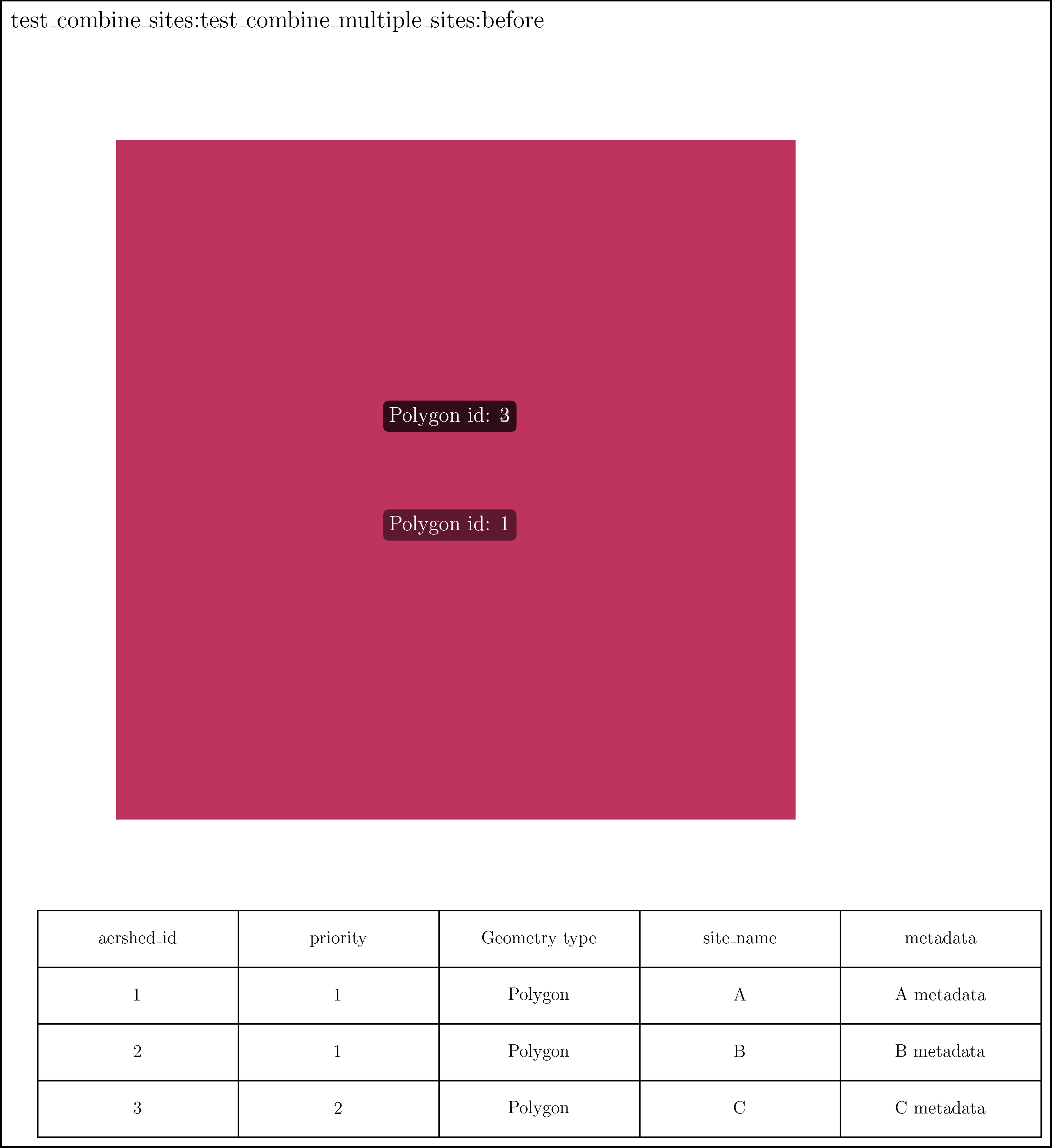 | 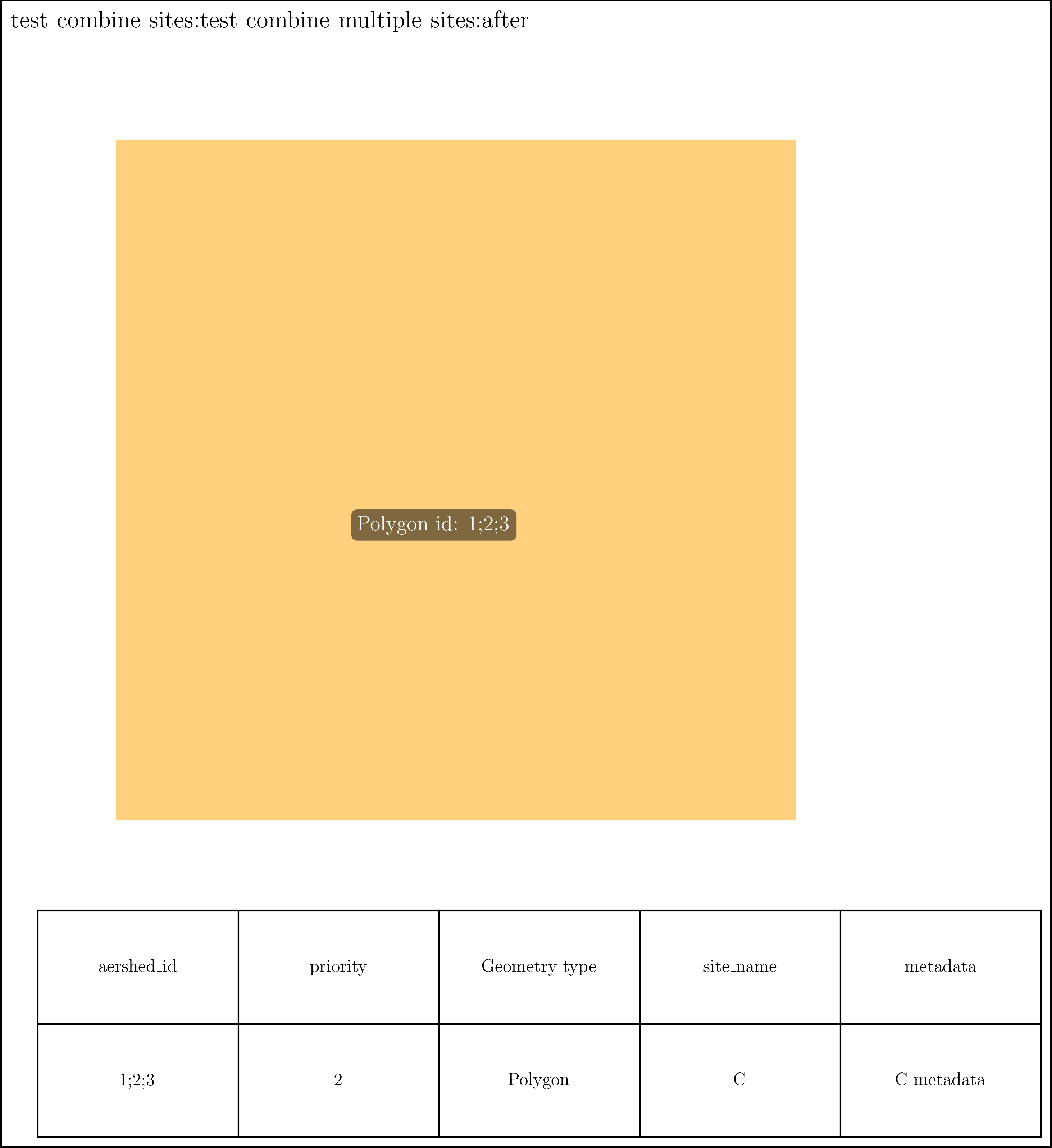 |
Test case: test_combine_sites_priority_for_larger_area
Ensure that the metadata is chosen from the site with the largest area when they are both have the same priority.
| Before | After |
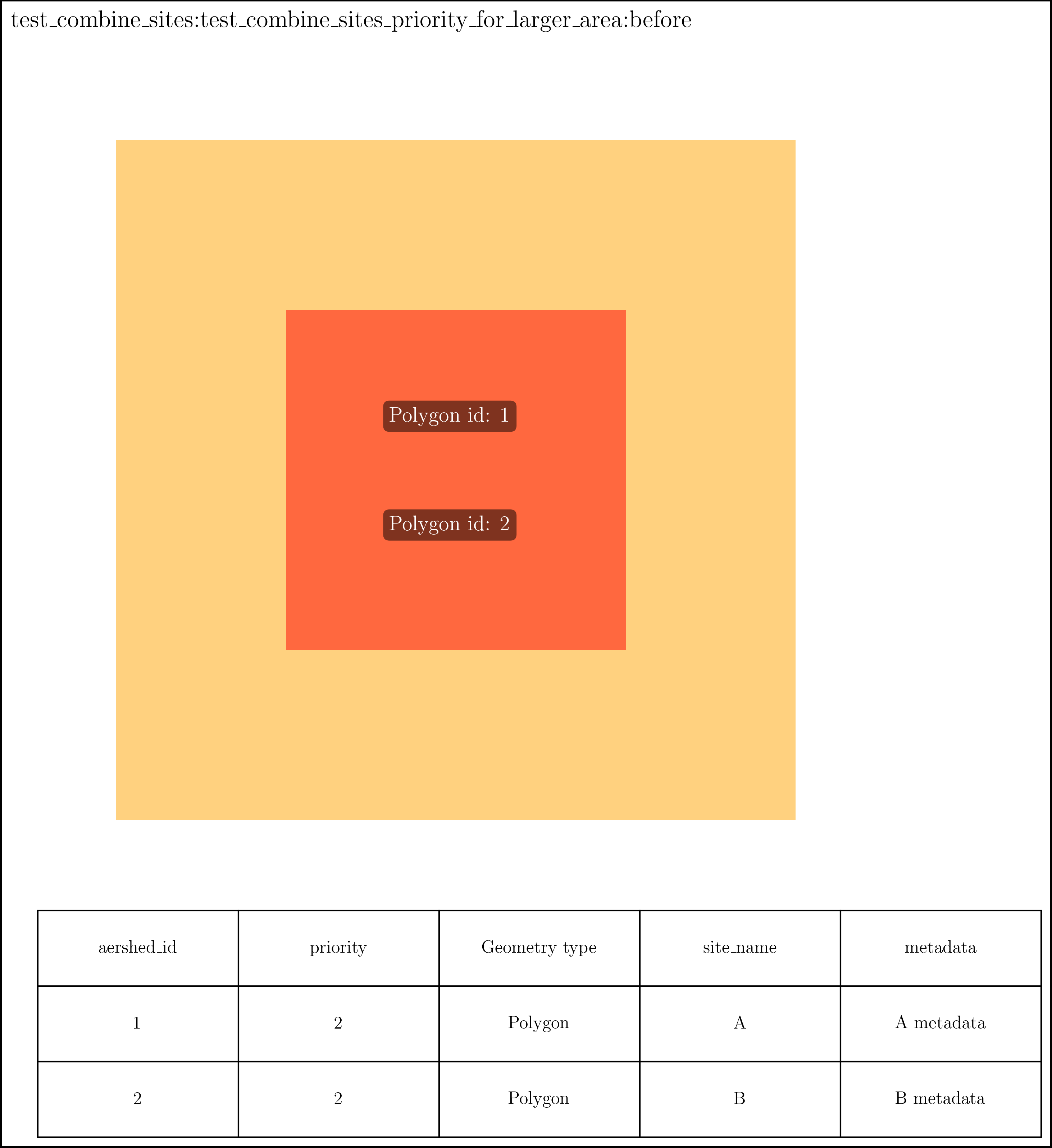 | 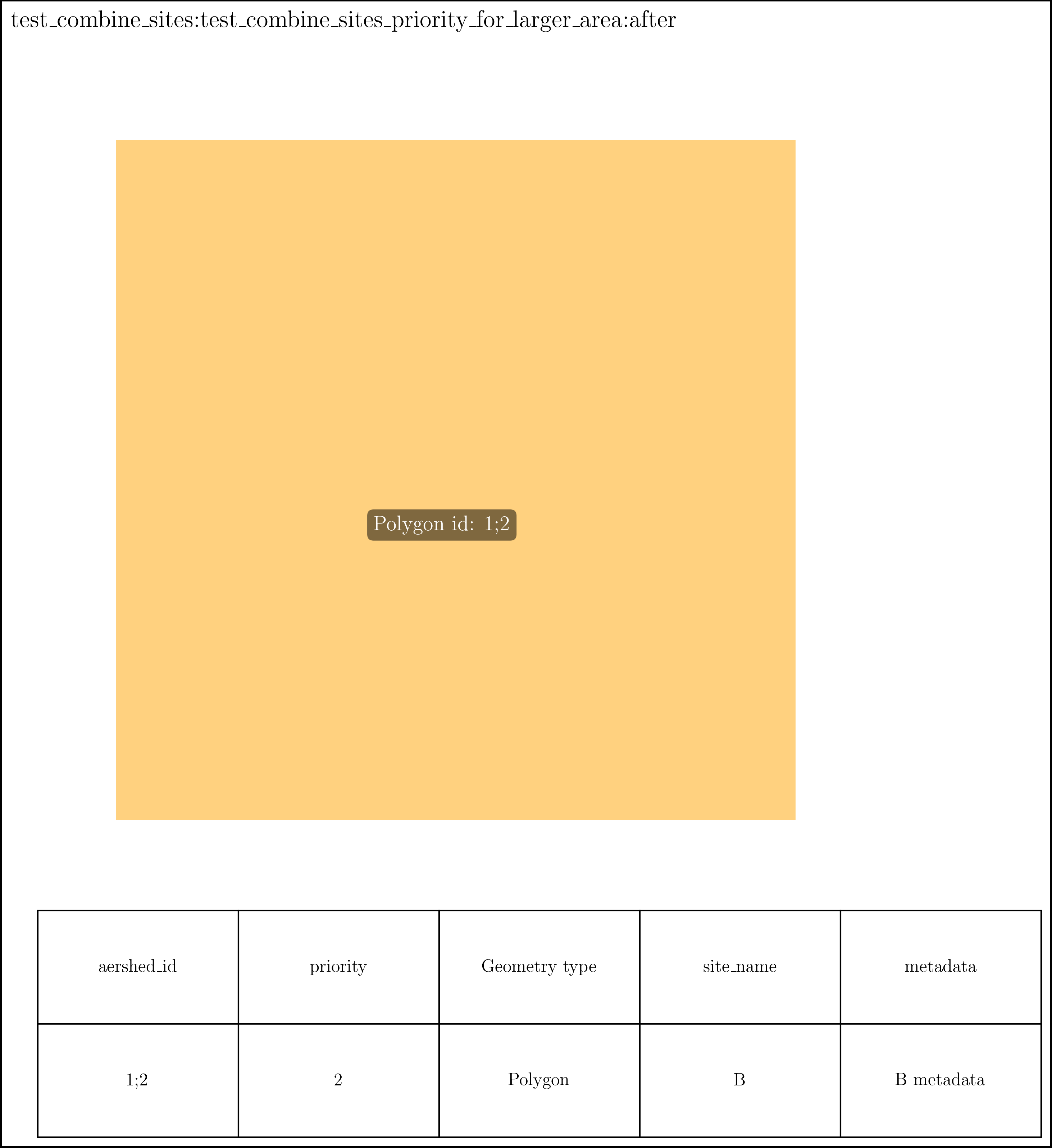 |
Test case: test_combine_sites_take_non_null_metadata
When creating a site union we want to take metadata from the site that has the non-null value when one of them is blank.
| Before | After |
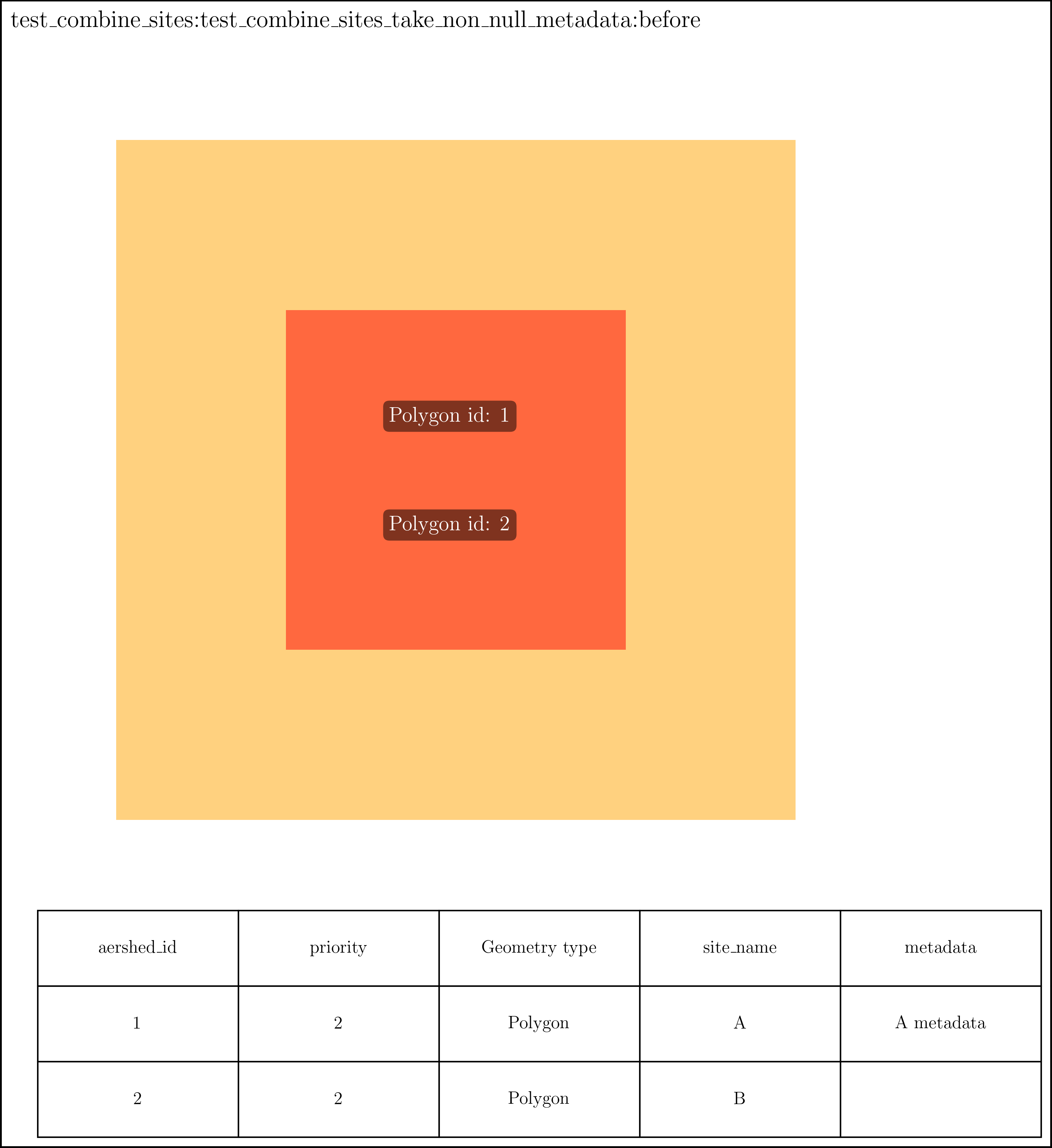 | 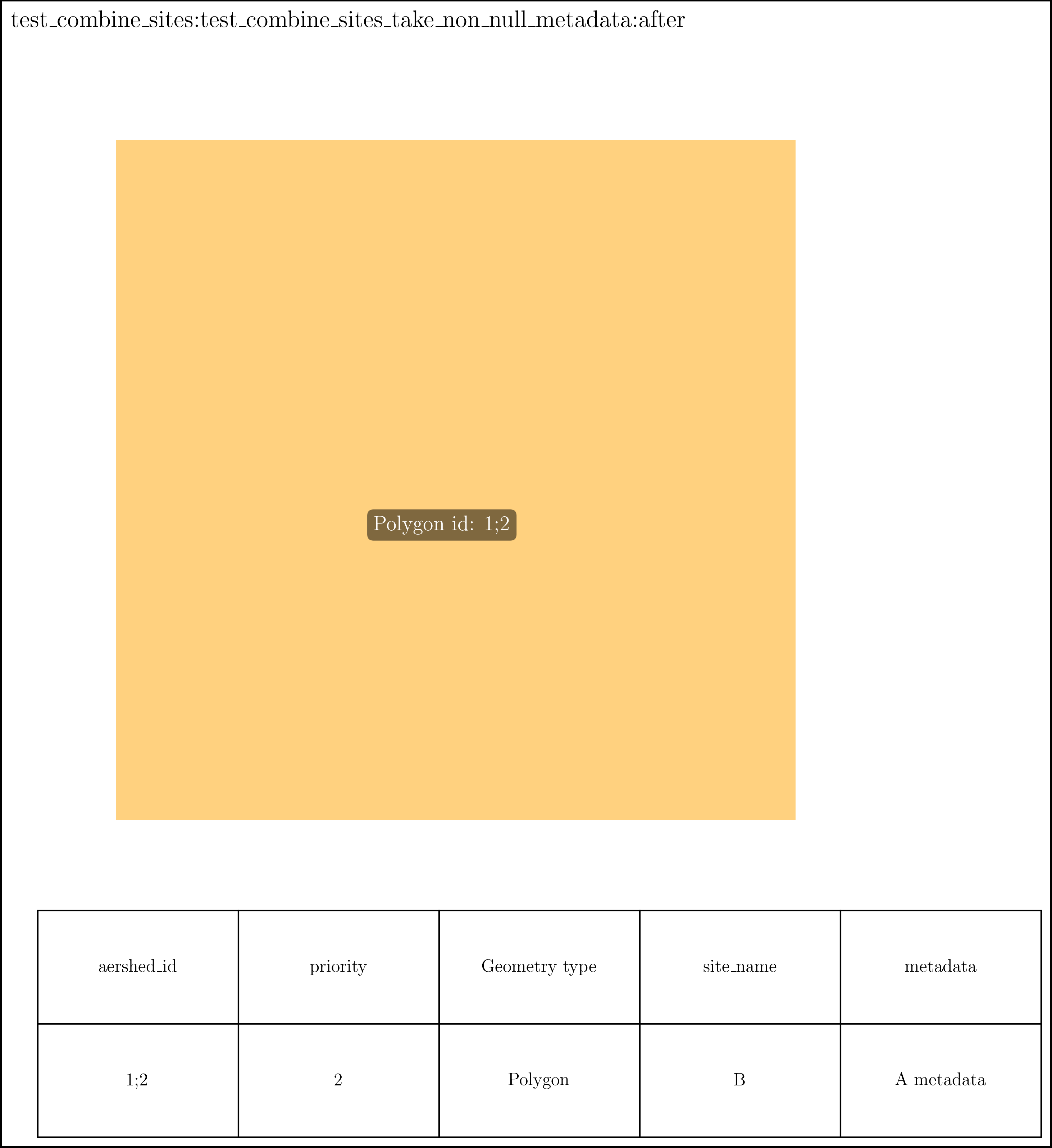 |
Test case: test_combine_sites_take_non_null_metadata_reversed
When creating a site union we want to take metadata from the site that has the non-null when one of them is blank.
This is identical to the other test case but the site with the missing metadata is swapped around.
| Before | After |
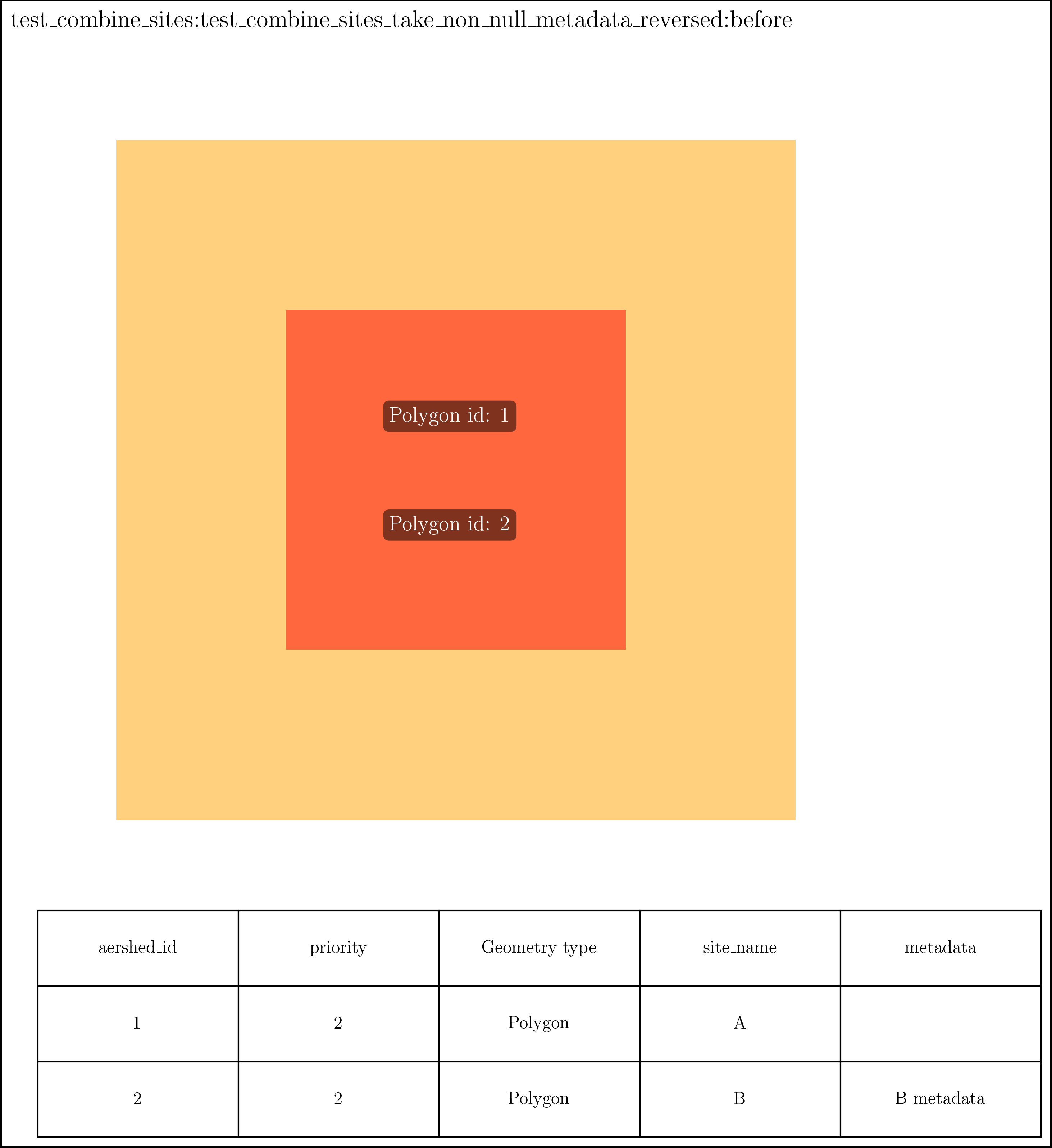 | 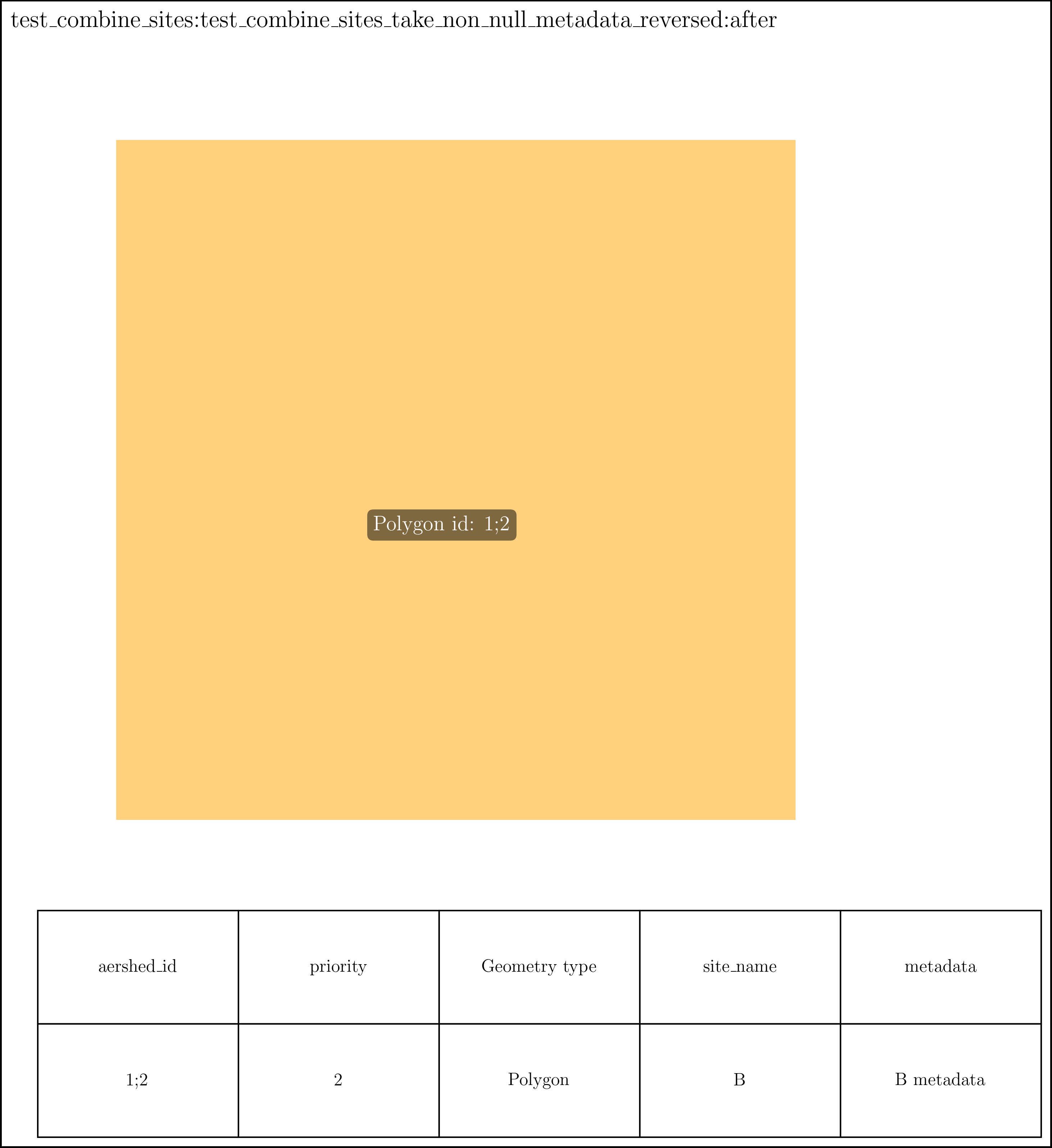 |
Test case: test_combine_two_sites
Combine two sites at the same location but with different polygons. The result should be a single site with the union of the two polygons and metadata from the higher priority site.
| Before | After |
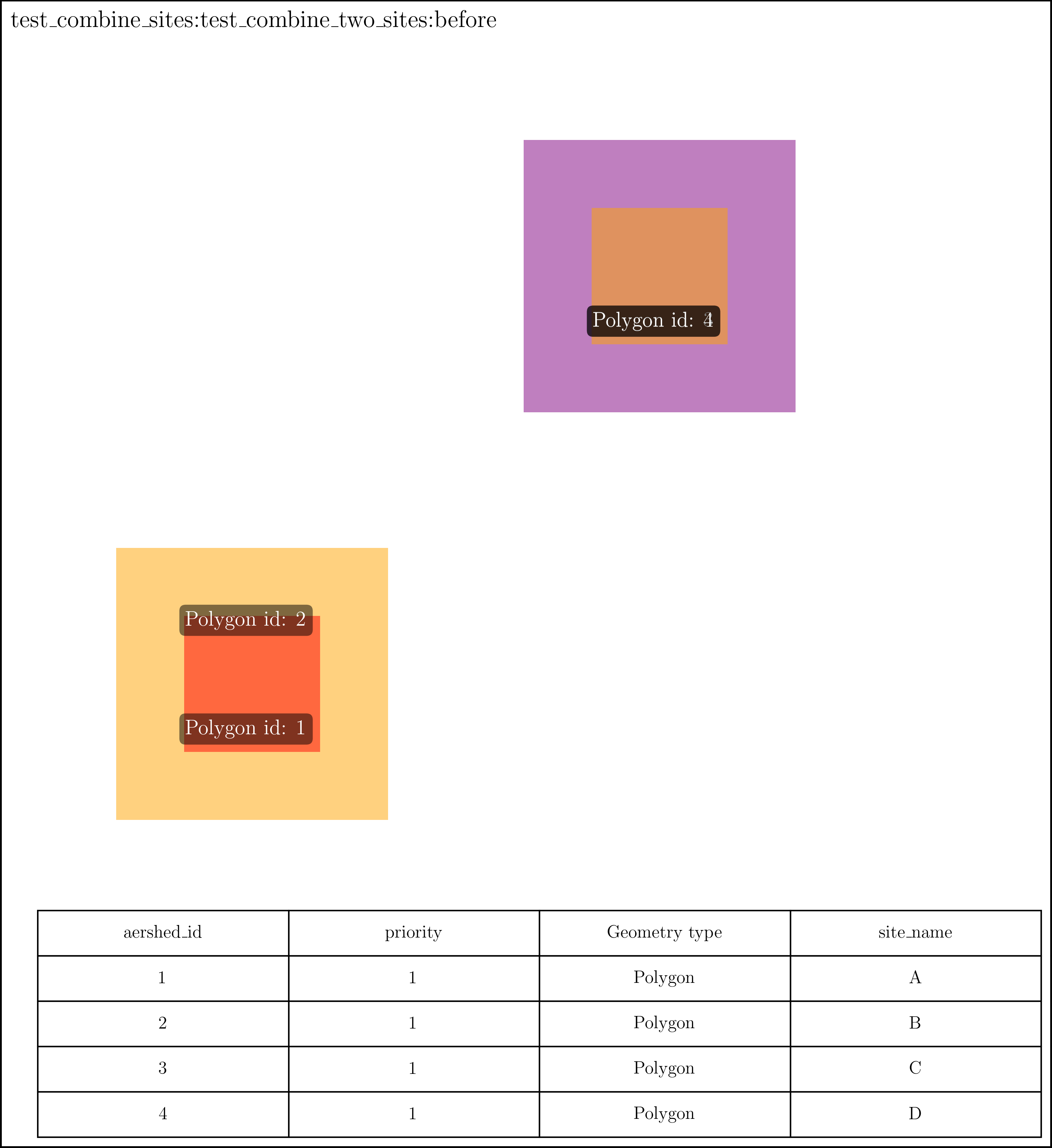 | 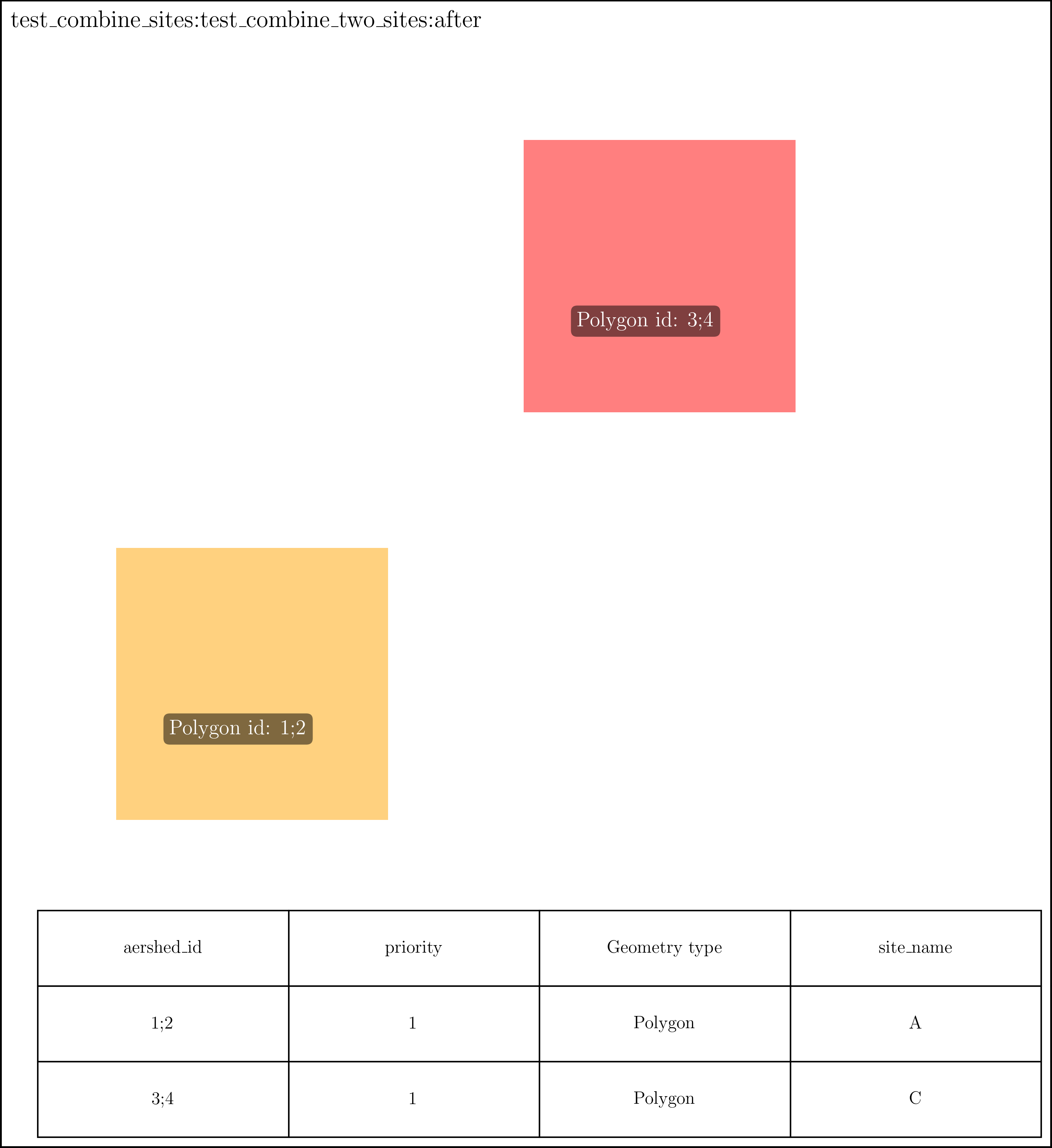 |
Test case: test_combine_two_sites_different_surveys
In this case we have two sites with the same geometry but different priorities. We should combine them into a single site. The metadata and site_name from the higher priority site should be chosen.
| Before | After |
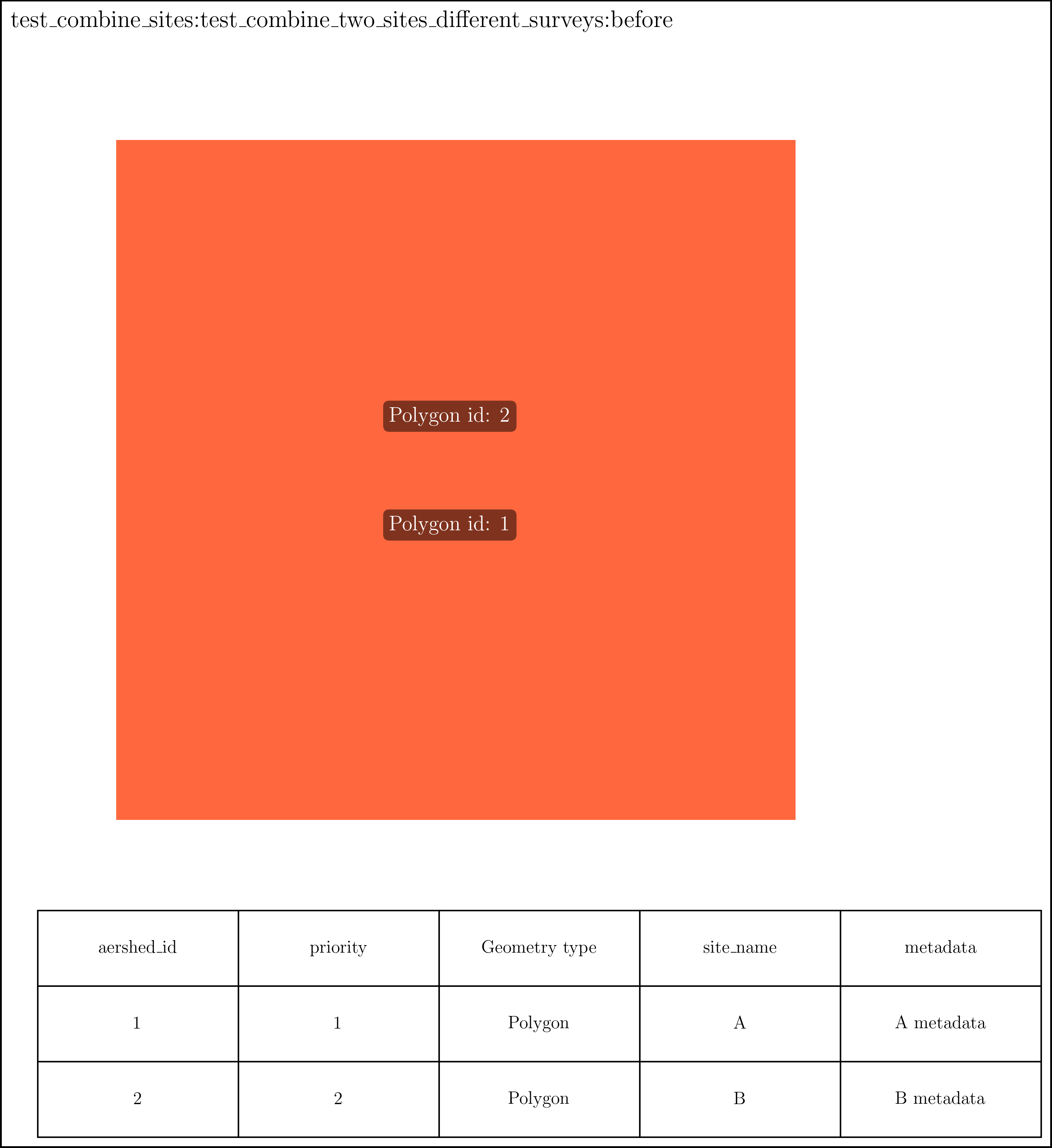 | 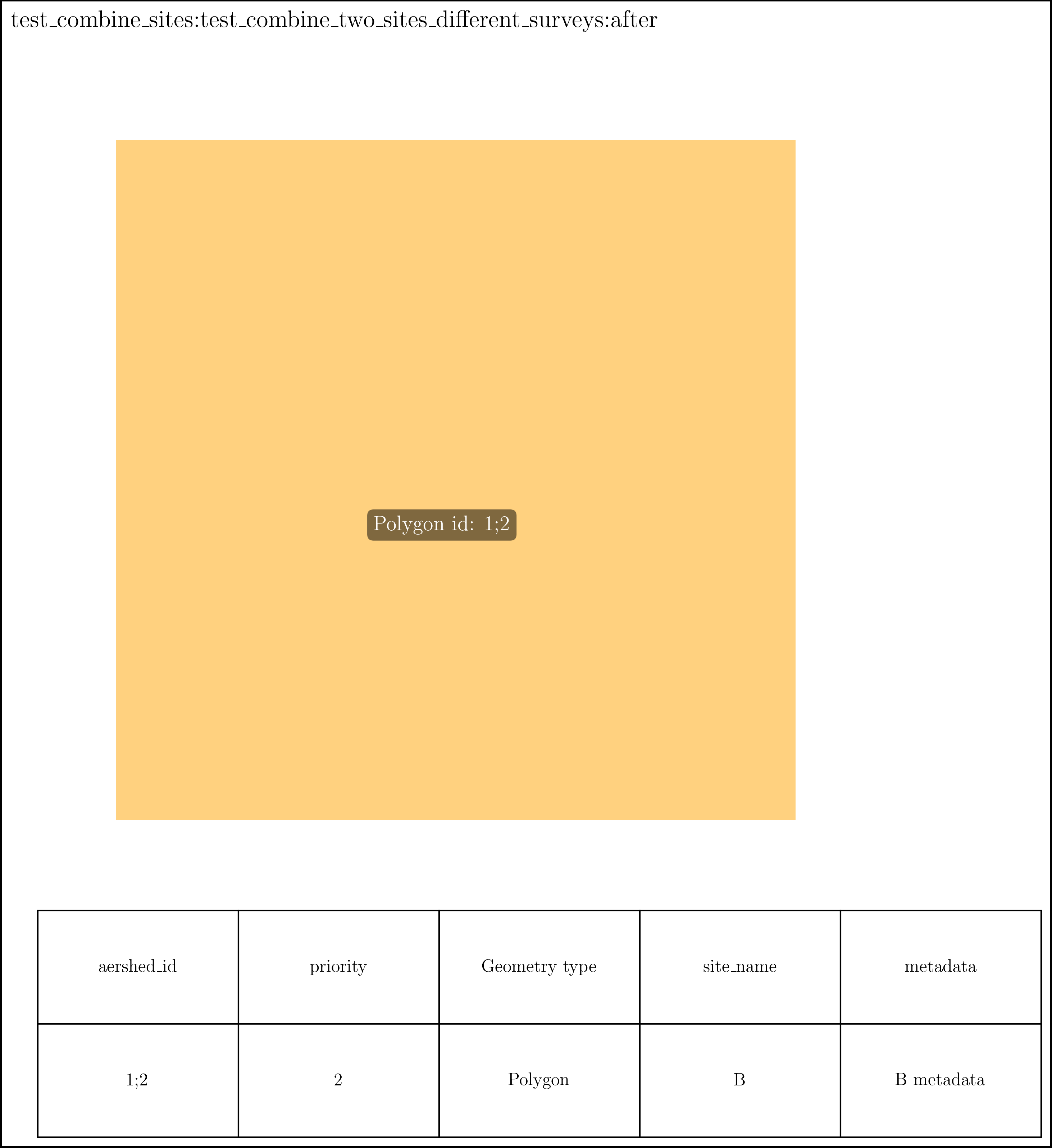 |
Test group: test_duplicate_geometries
Test case: test_identify_changes_1
In this test we check that when there are two identical geometries the metadata from the higher priority data will be used to replace that on the original site.
| Before | After |
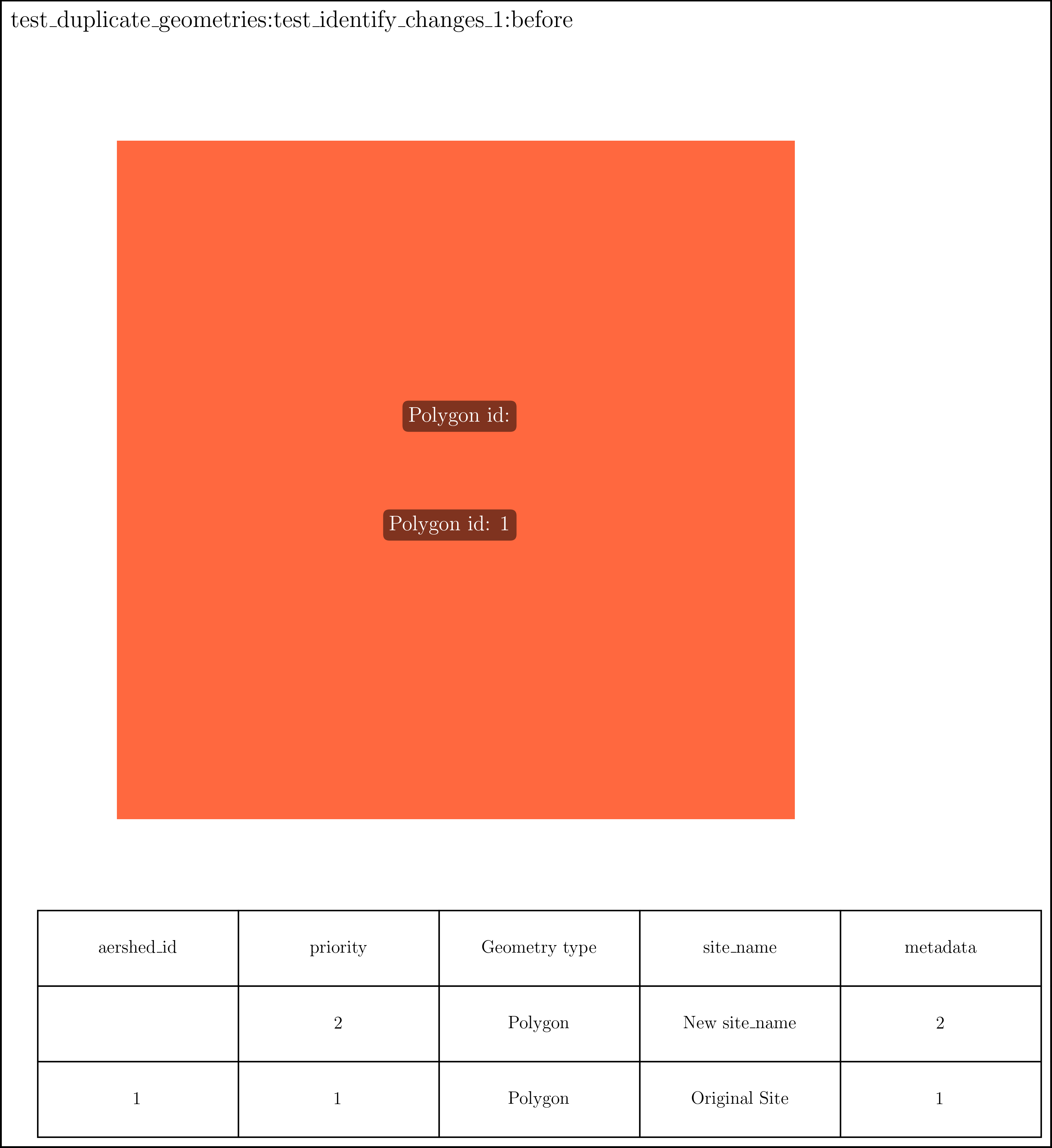 | 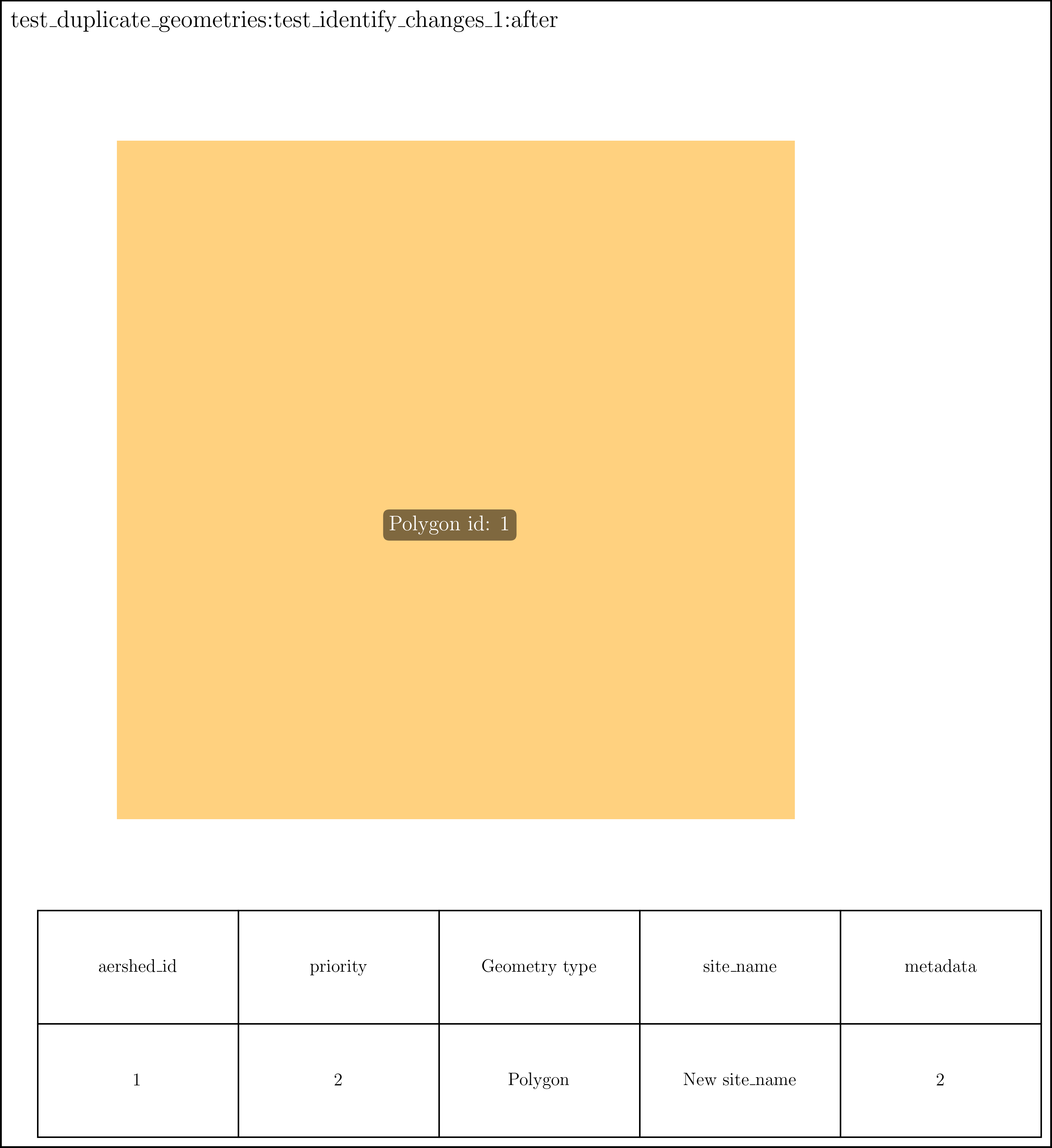 |
Test case: test_identify_changes_2
In this test we check that when there are two identical geometries with no new metadata, that the original data is preserved (including no change to the priority).
| Before | After |
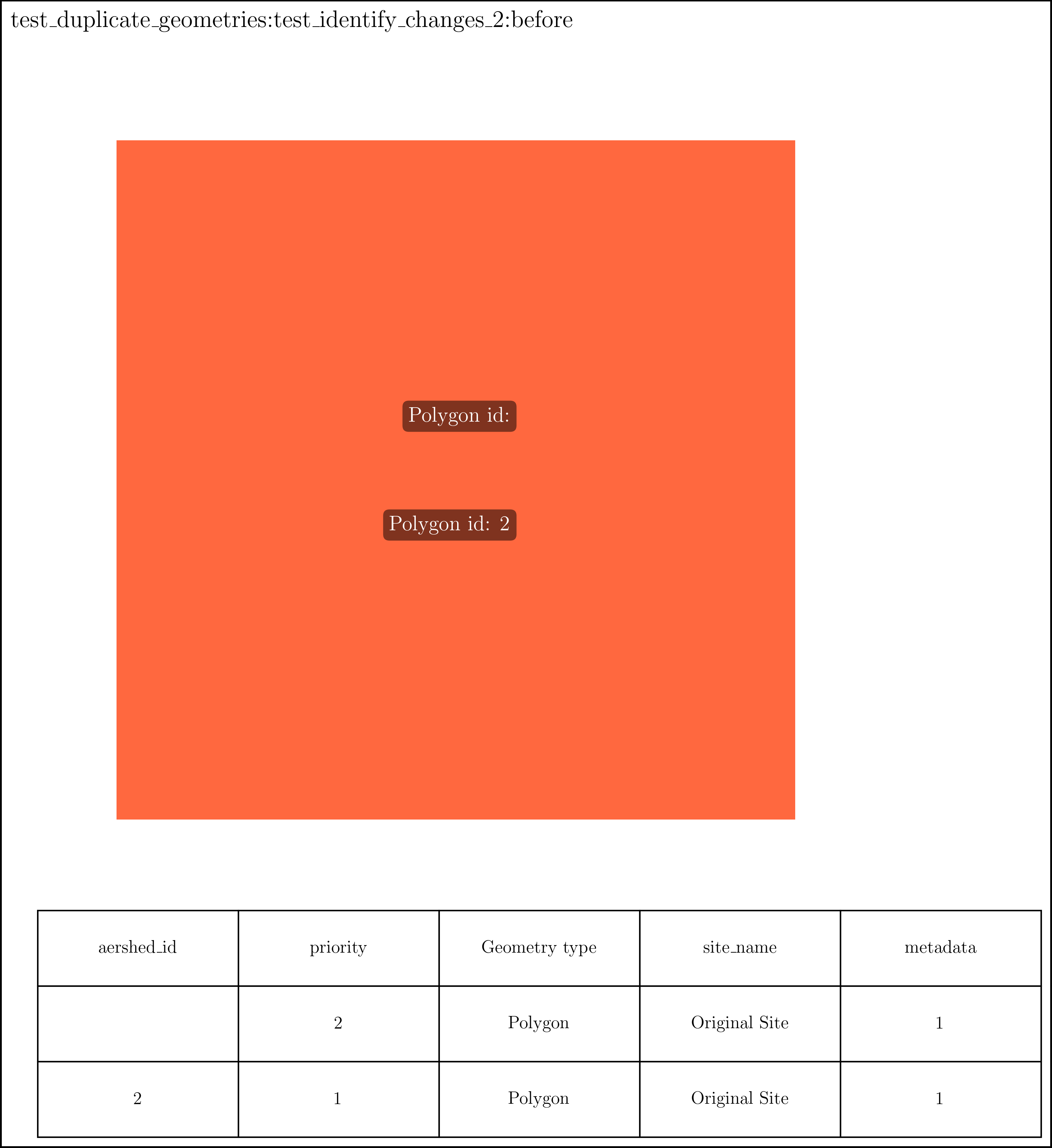 | 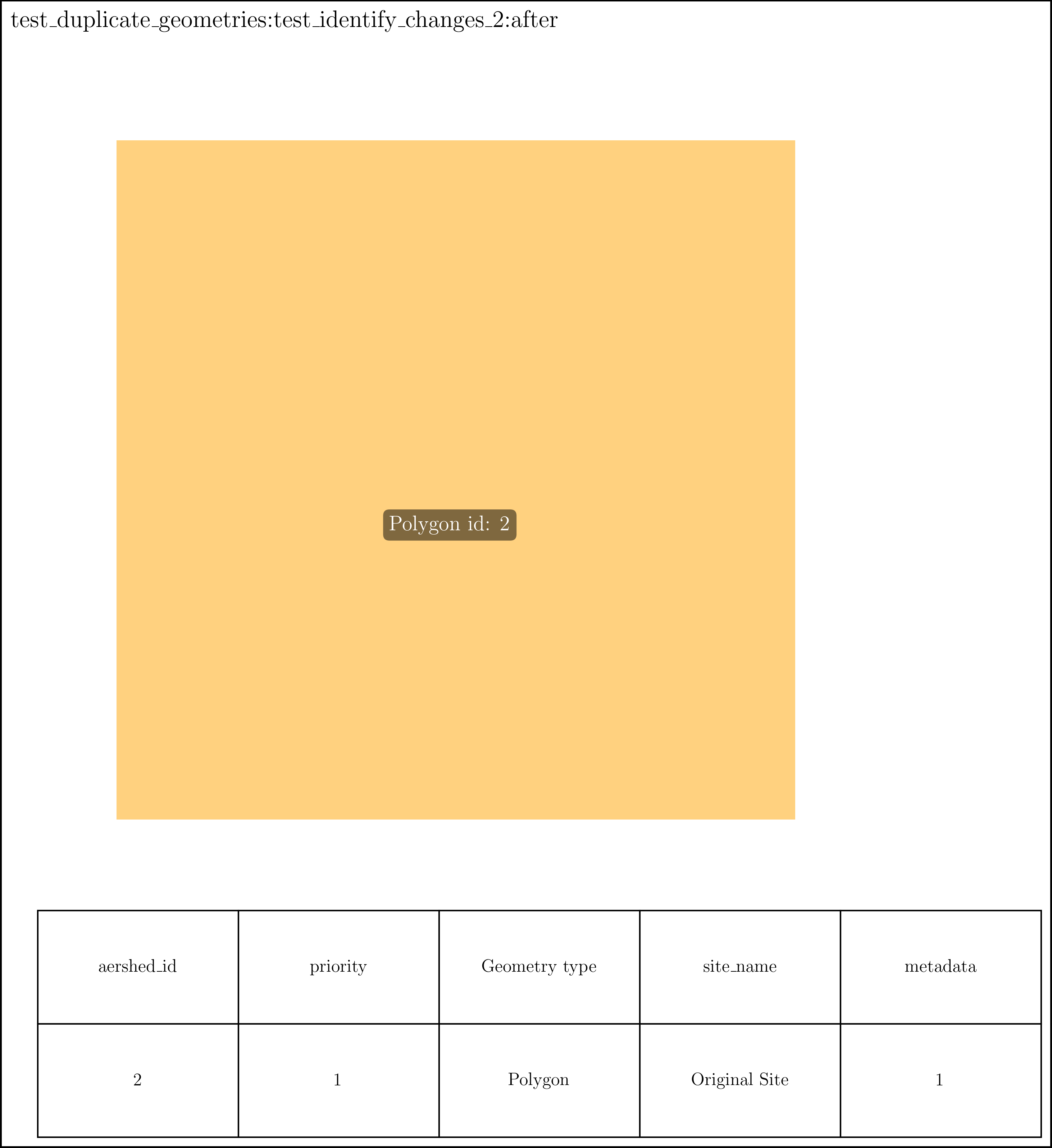 |
Test group: test_remove_duplicate_sites
Test case: test_allow_some_overlapping_sites
In this test we have two lower priority sites that overlap with a higher priority site. We want to allow some overlap so that the lower priority sites are kept. For this case we have set the overlap_threshold to 0.9 (90%).
| Before | After |
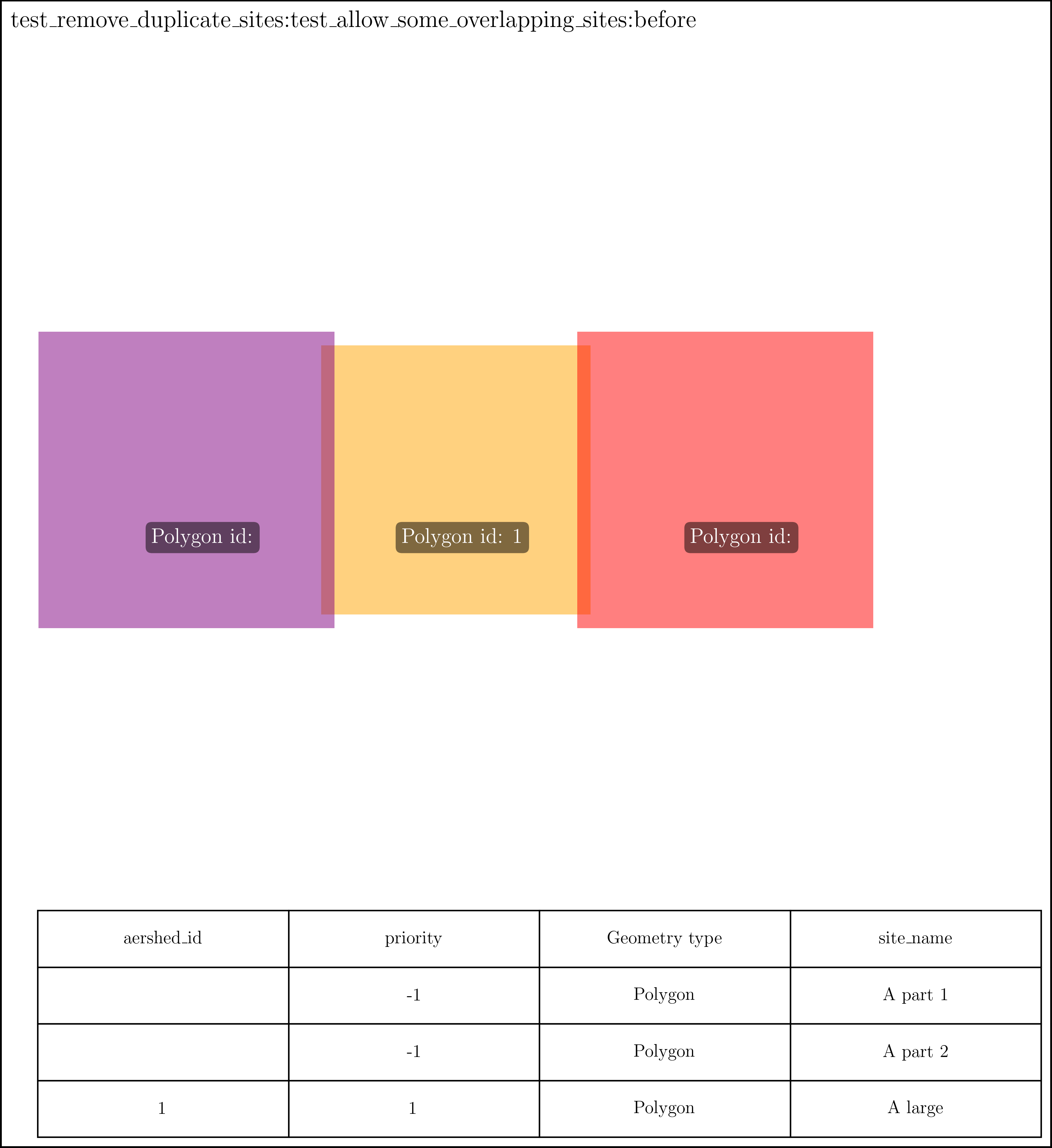 | 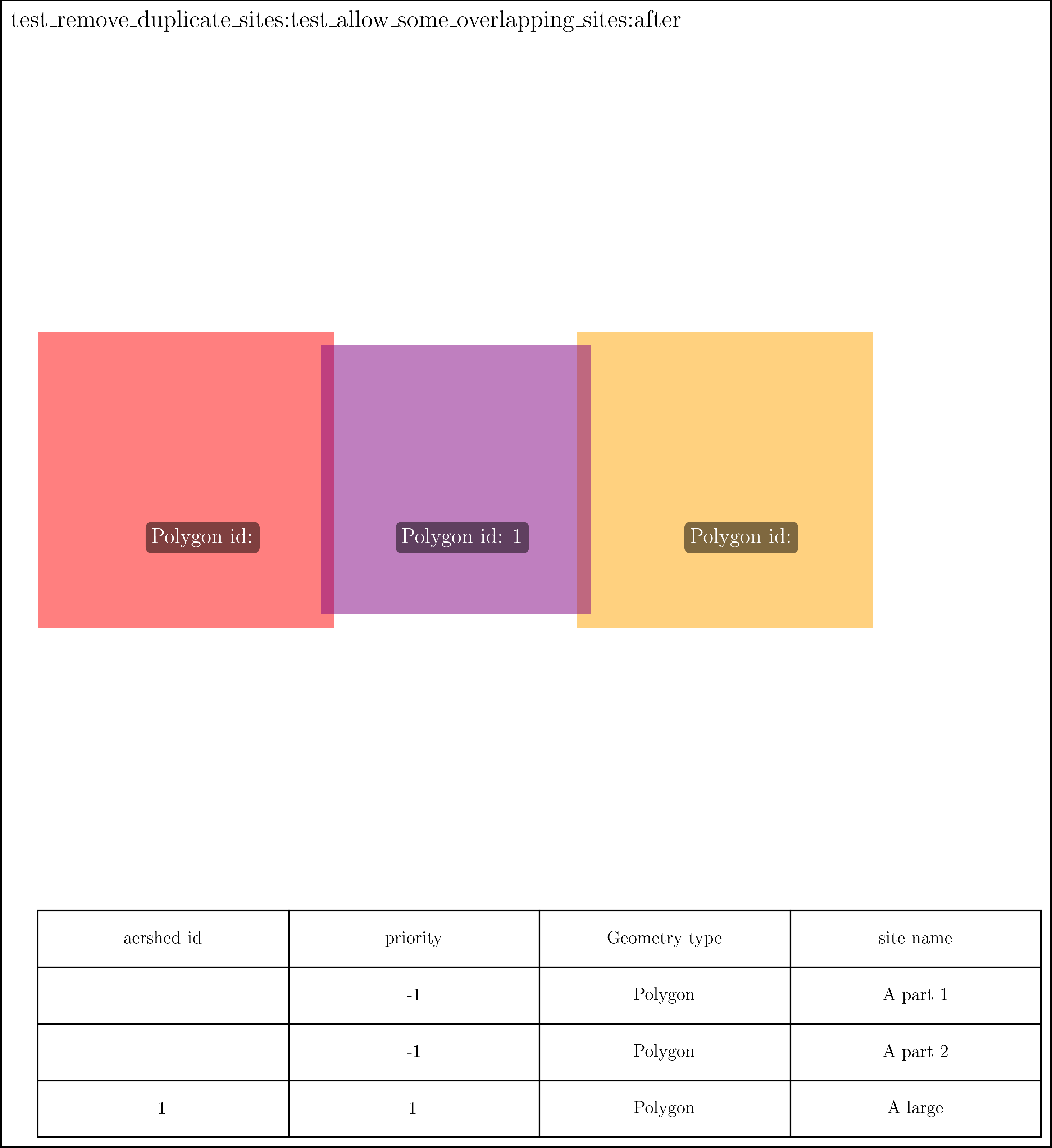 |
Test case: test_existing_overlapping_geometries
In this case there are two polygons in the existing data that are overlapping. We then have two new distinct polygons that intersect both of these sites.
This test uses a real example.
| Before | After |
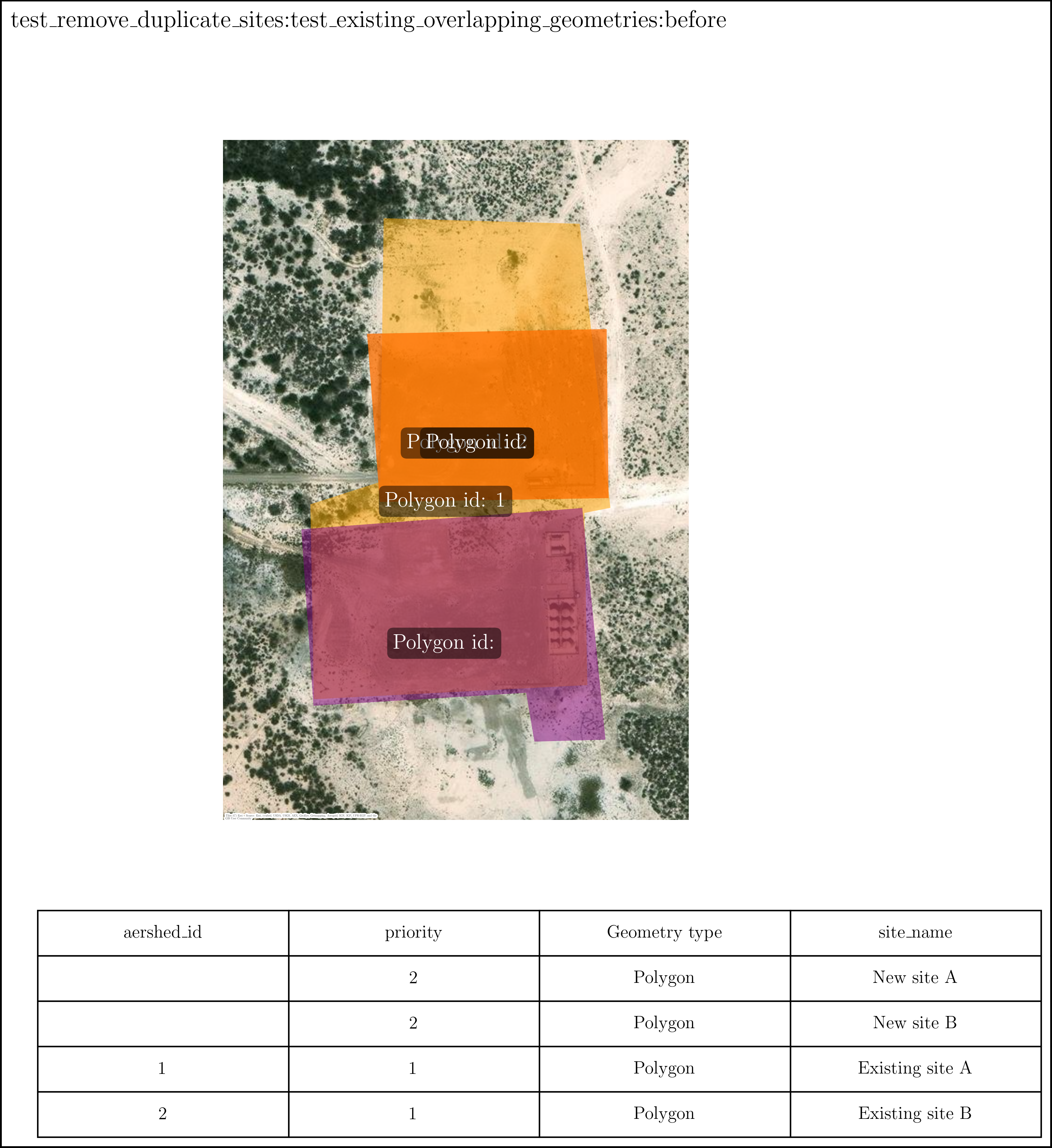 | 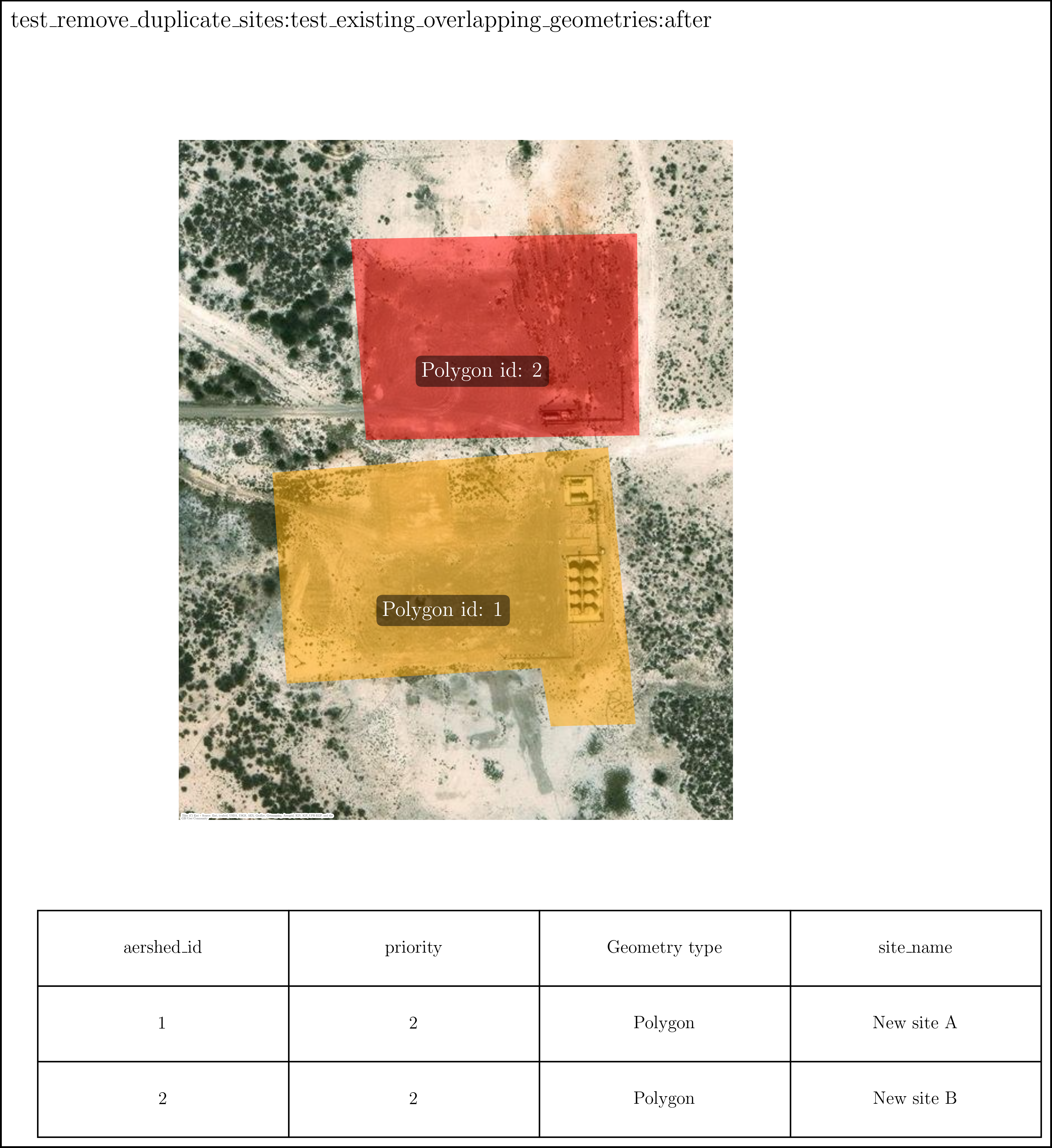 |
Test case: test_existing_overlapping_geometries_reverse_order
In this case there are two polygons in the existing data that are overlapping. We then have two new distinct polygons that intersect both of these sites.
This test uses a real example.
| Before | After |
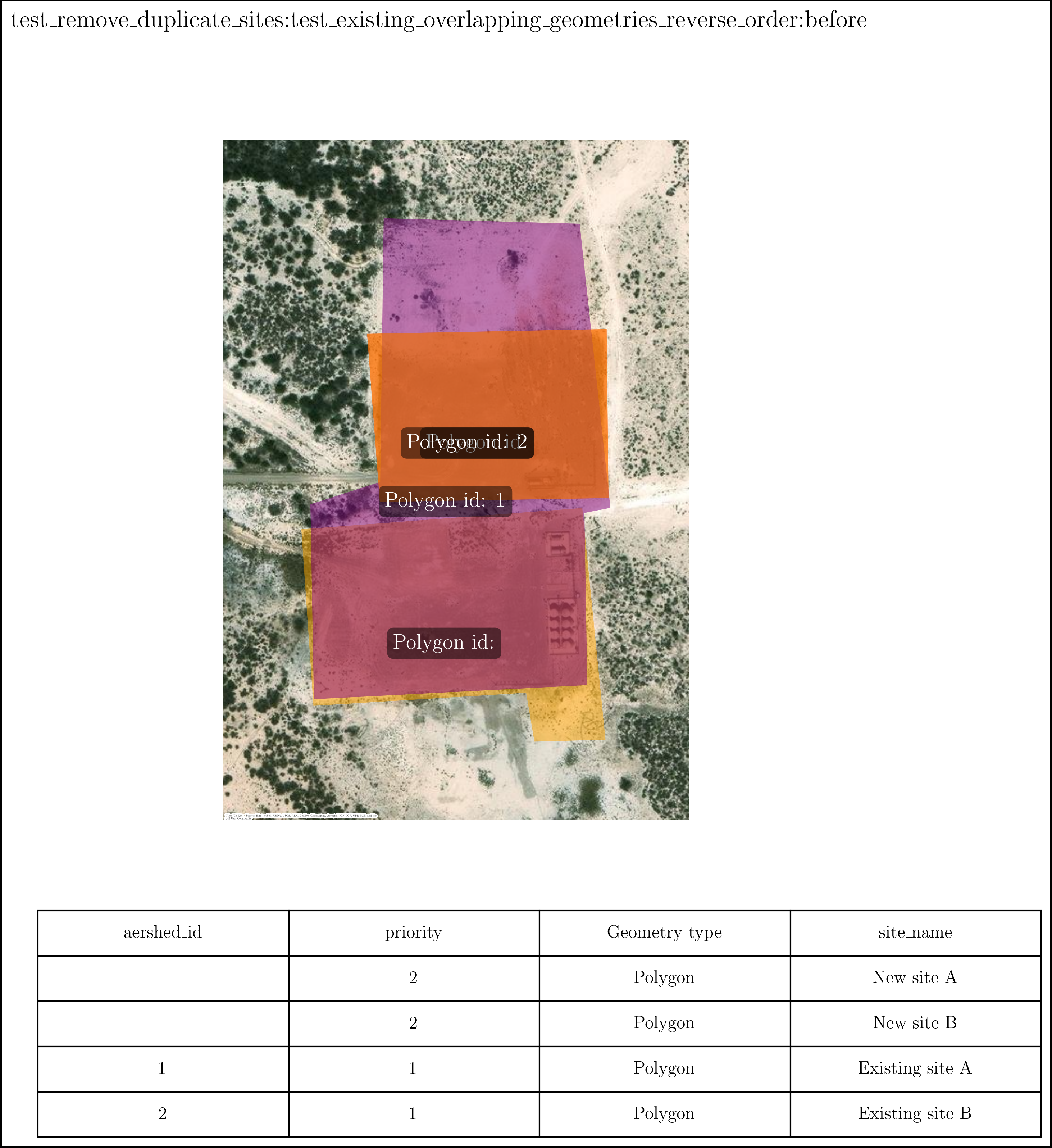 | 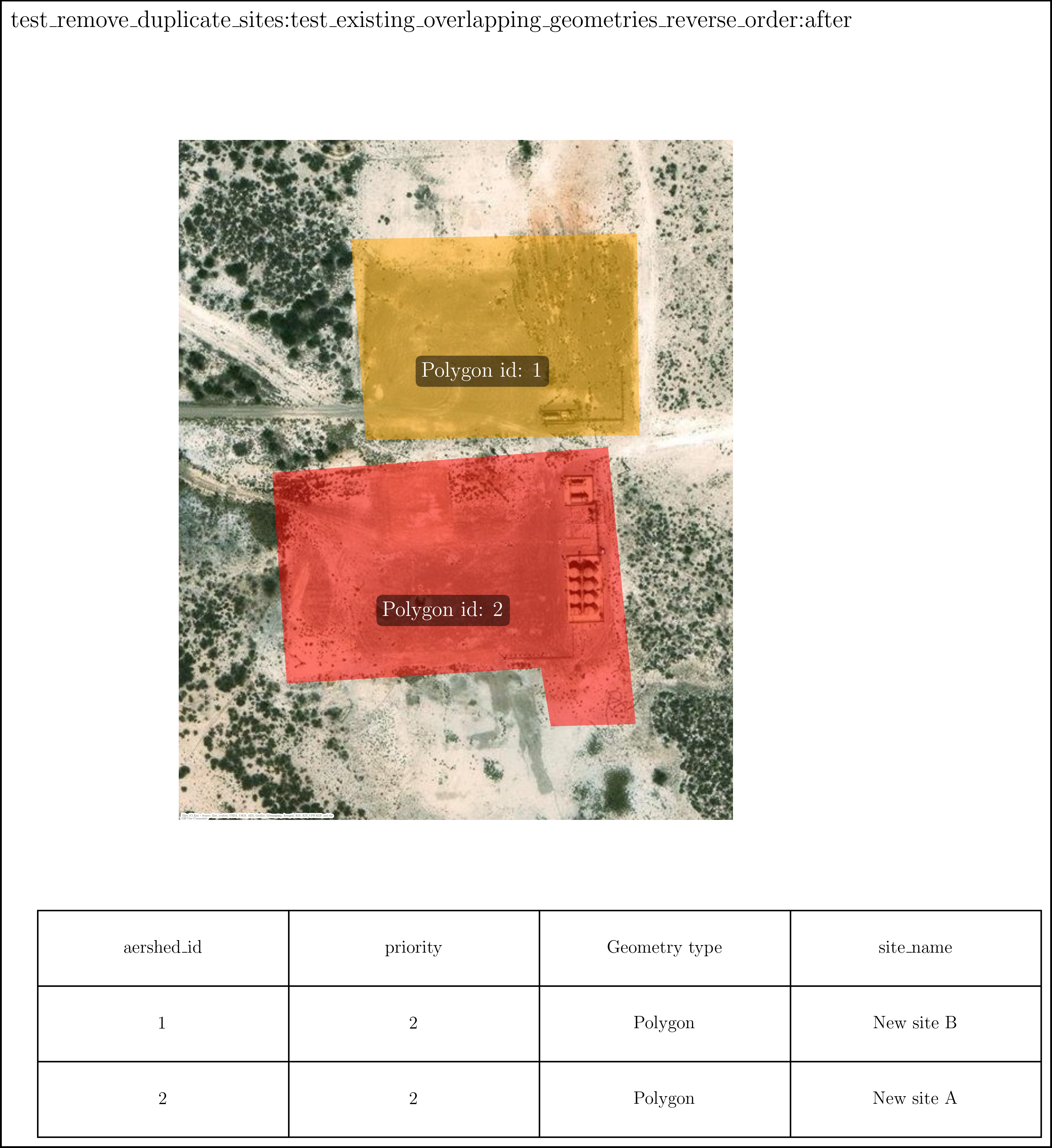 |
Test case: test_metadata_handling
We want to test that metadata is passed on if the new or updated site has empty metadata. For example, if the new geometry is selected but the corresponding record does not have a site_name, we should use the original site_name (if there is not any ambiguity).
| Before | After |
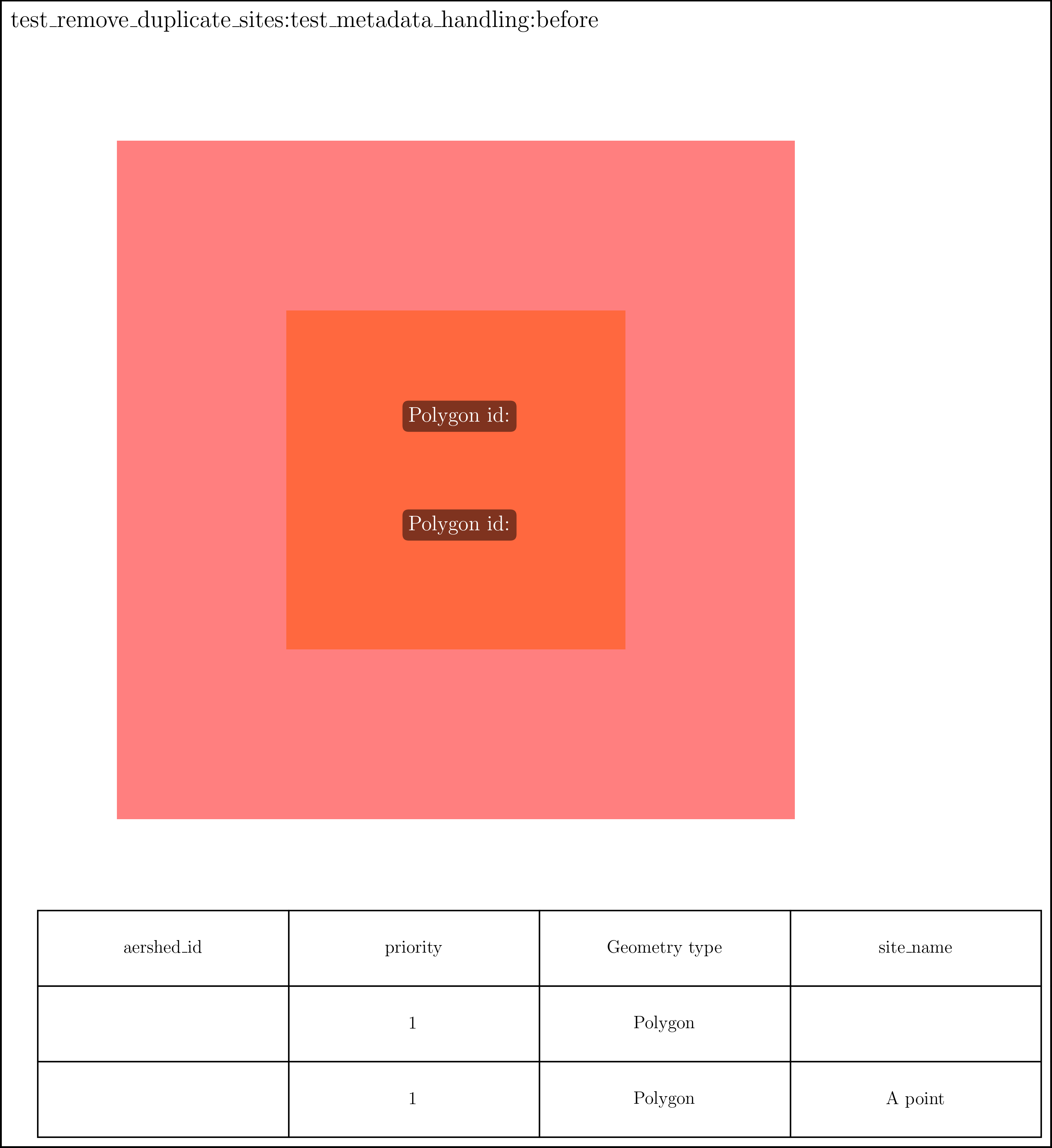 | 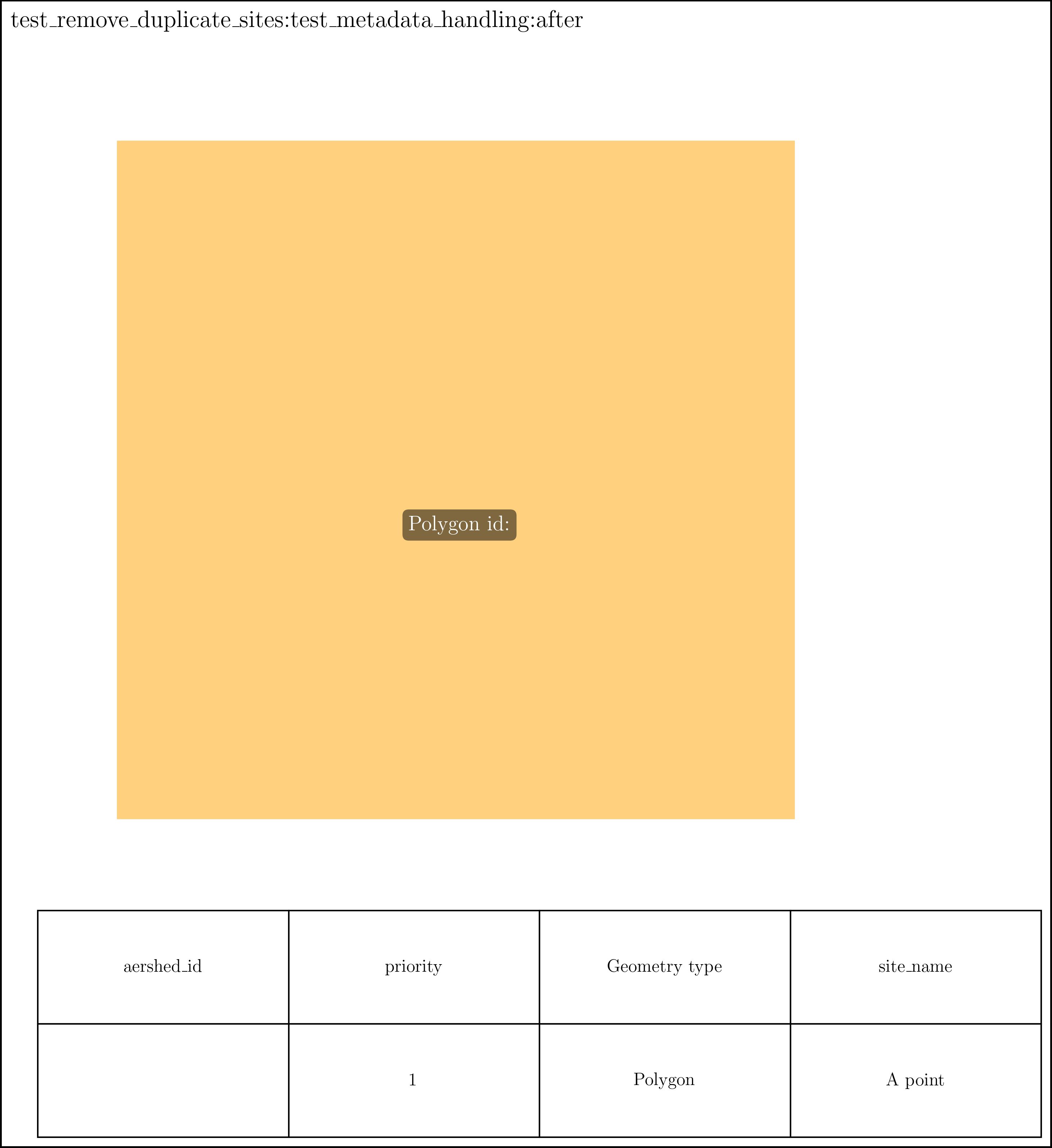 |
Test case: test_multiple_existing_sites_inside_new_site
Test that when there are multiple existing sites inside a new site, that the larger site is kept.
| Before | After |
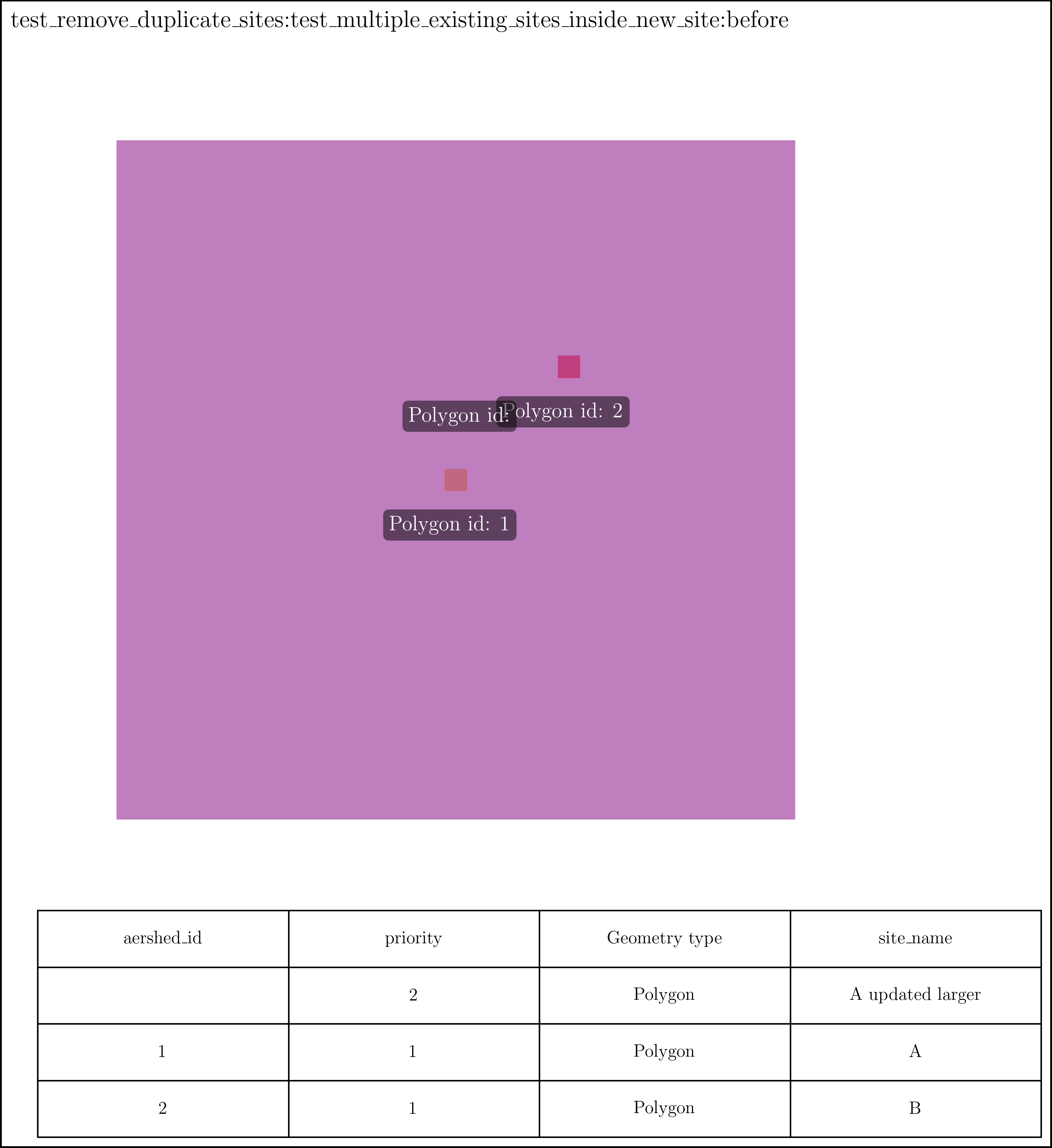 | 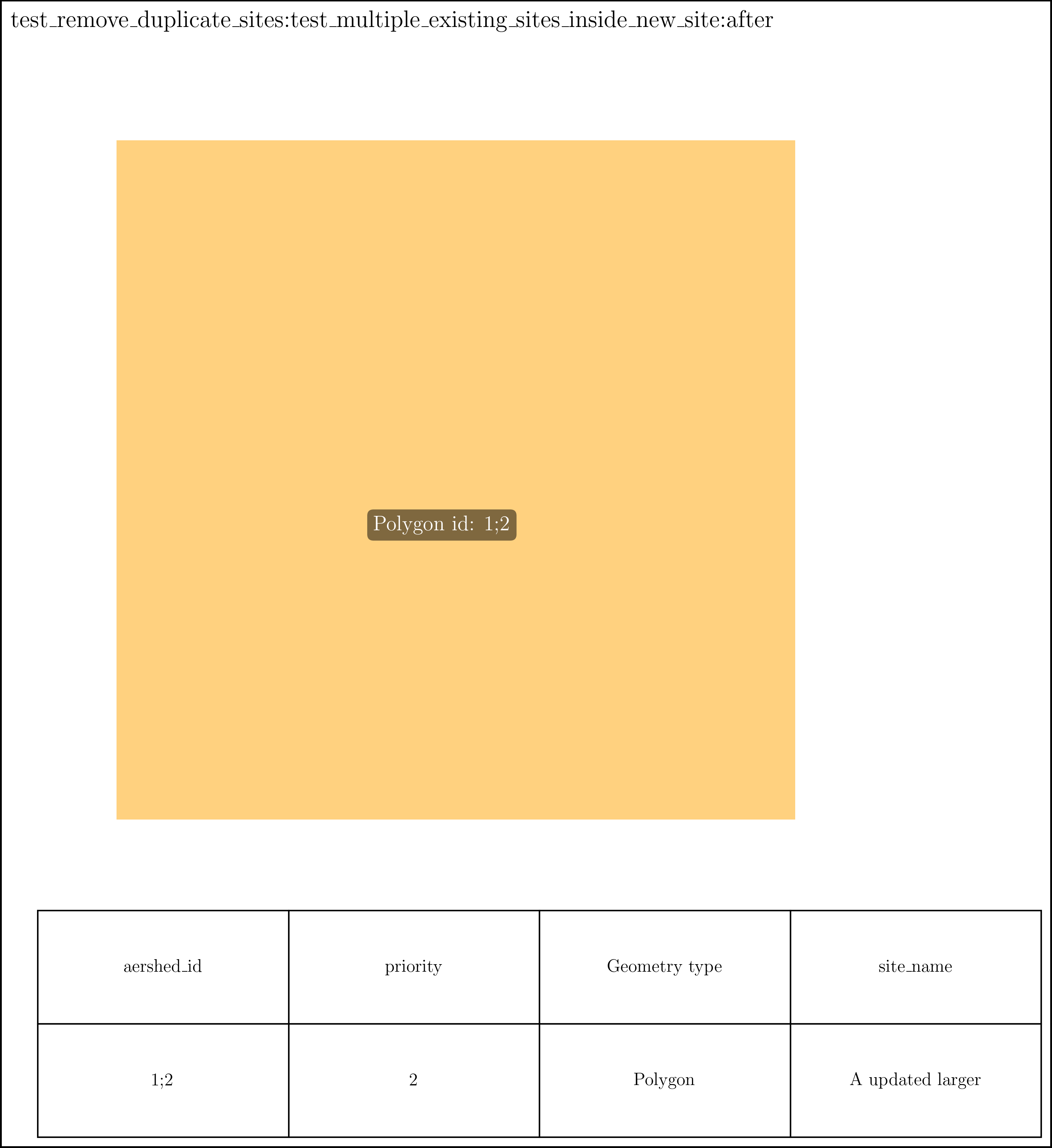 |
Test case: test_multiple_existing_sites_inside_new_site_ambiguous_metadata
Test that when there are multiple existing sites inside a new site, that the larger site is kept. If the metadata is ambiguous, the metadata from the new site is used.
| Before | After |
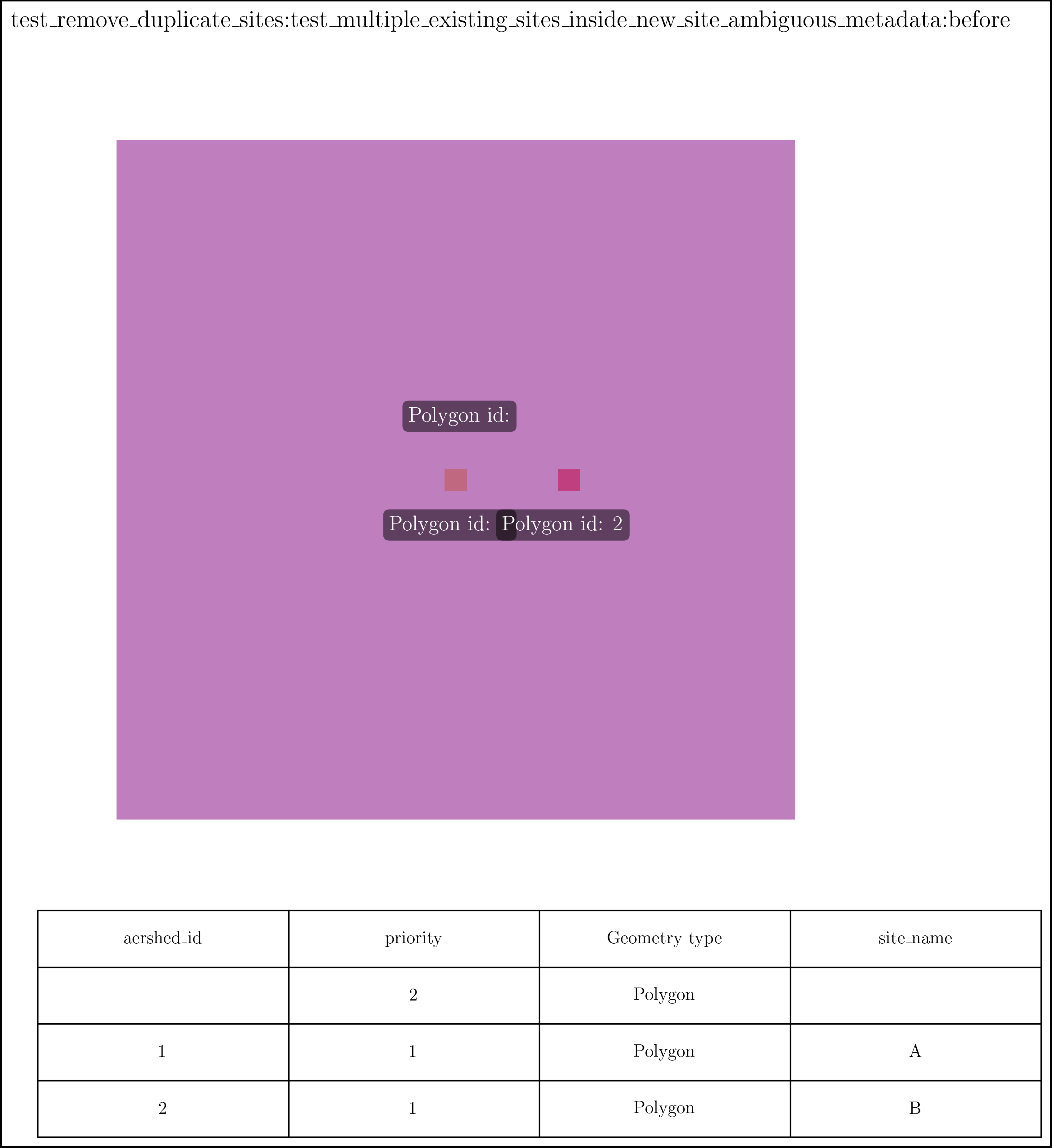 | 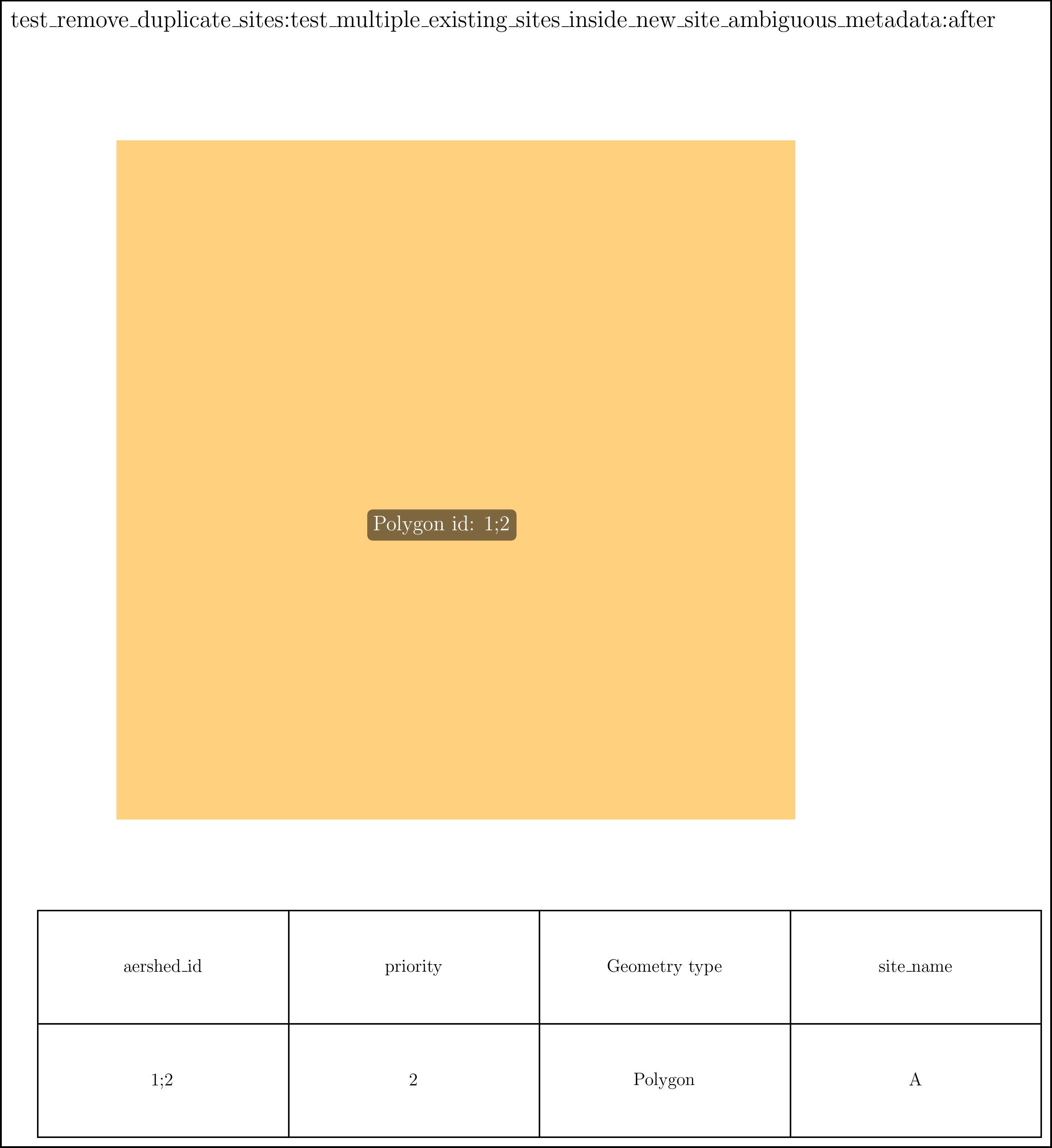 |
Test case: test_remove_any_overlapping_sites
Test remove the smaller sites when they have a lower priority with the overlap_threshold set to zero.
| Before | After |
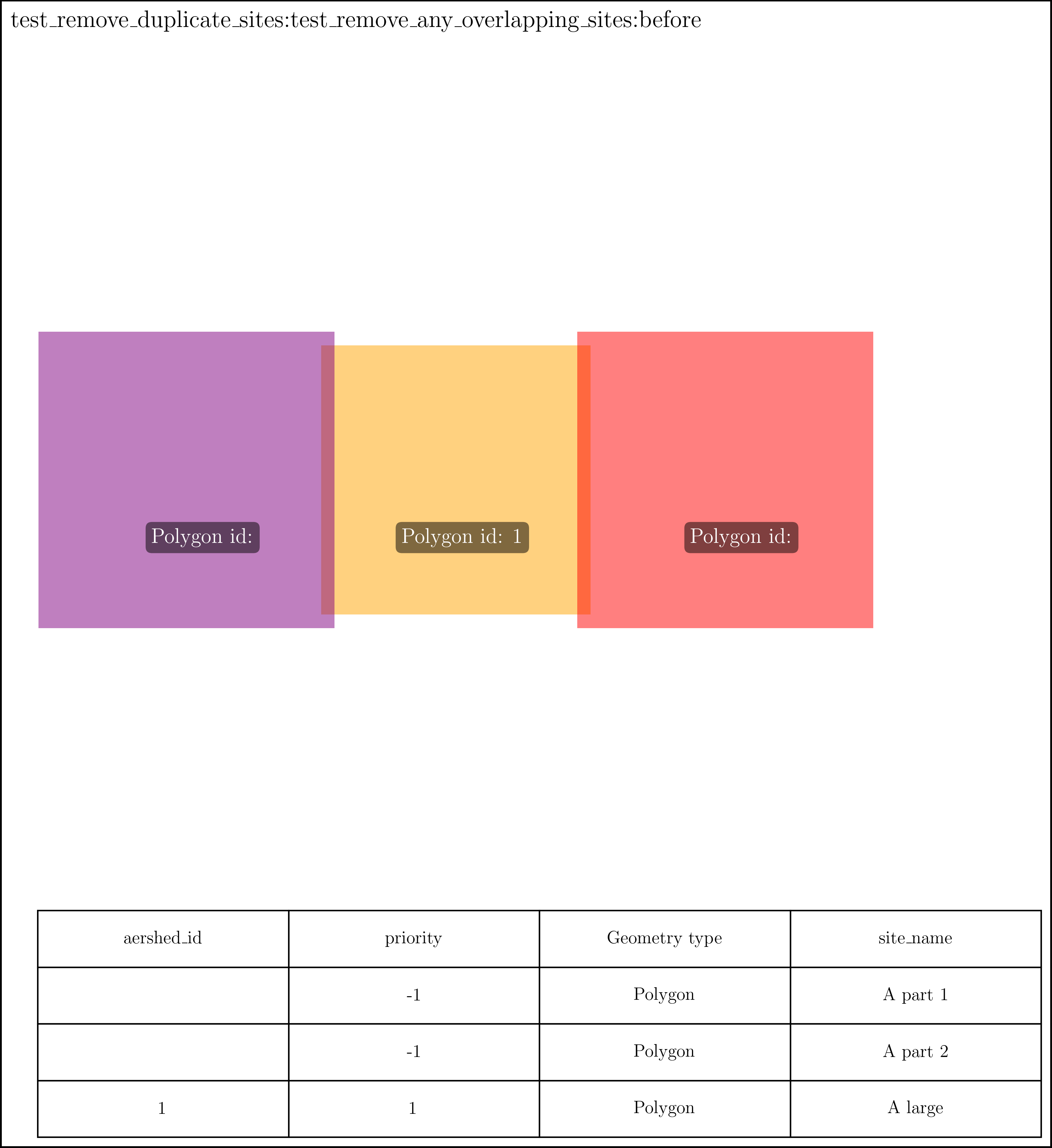 | 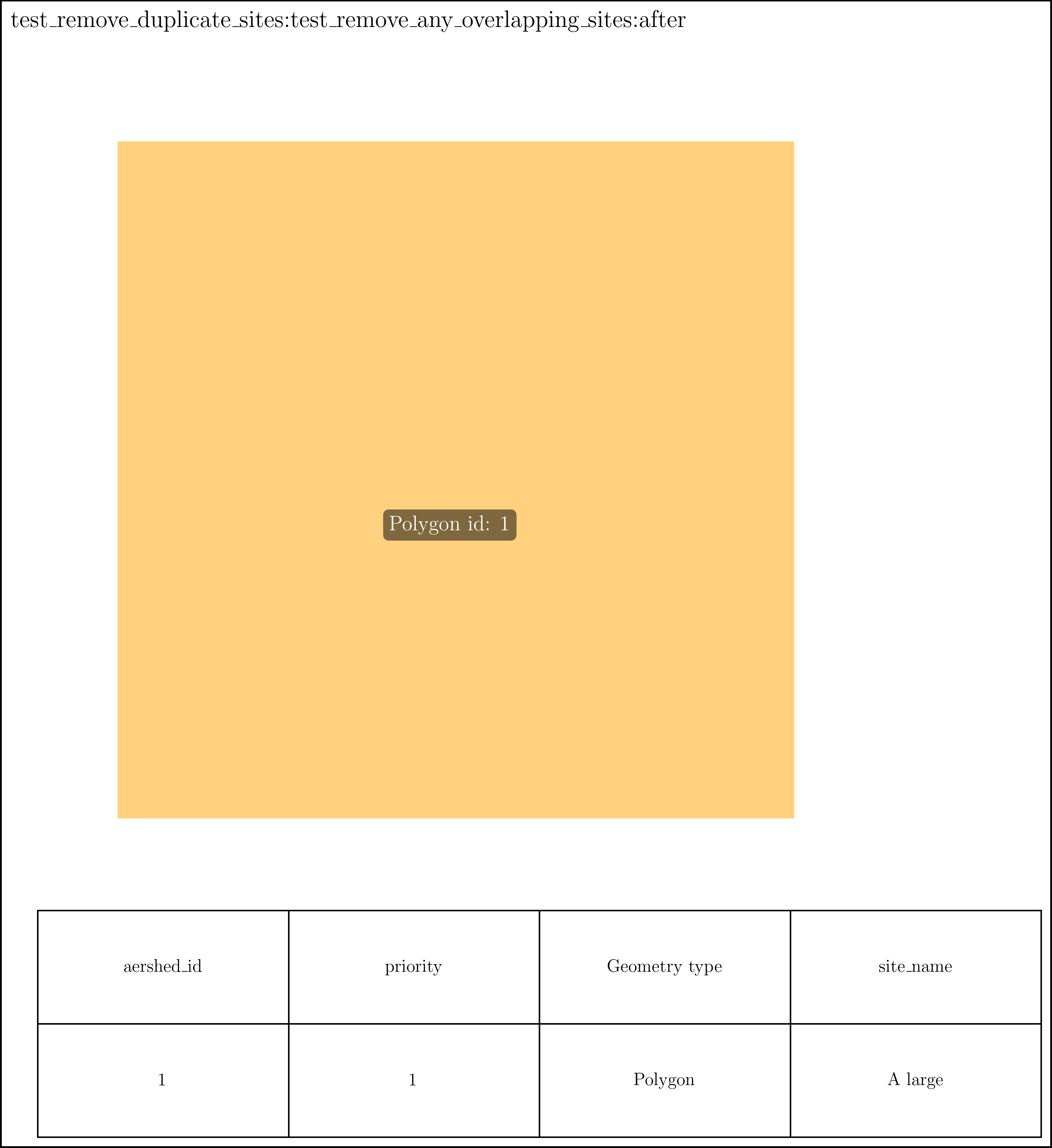 |
Test case: test_remove_duplicate_sites
Test that the overlapping sites are removed and the site with the highest priority is kept.
| Before | After |
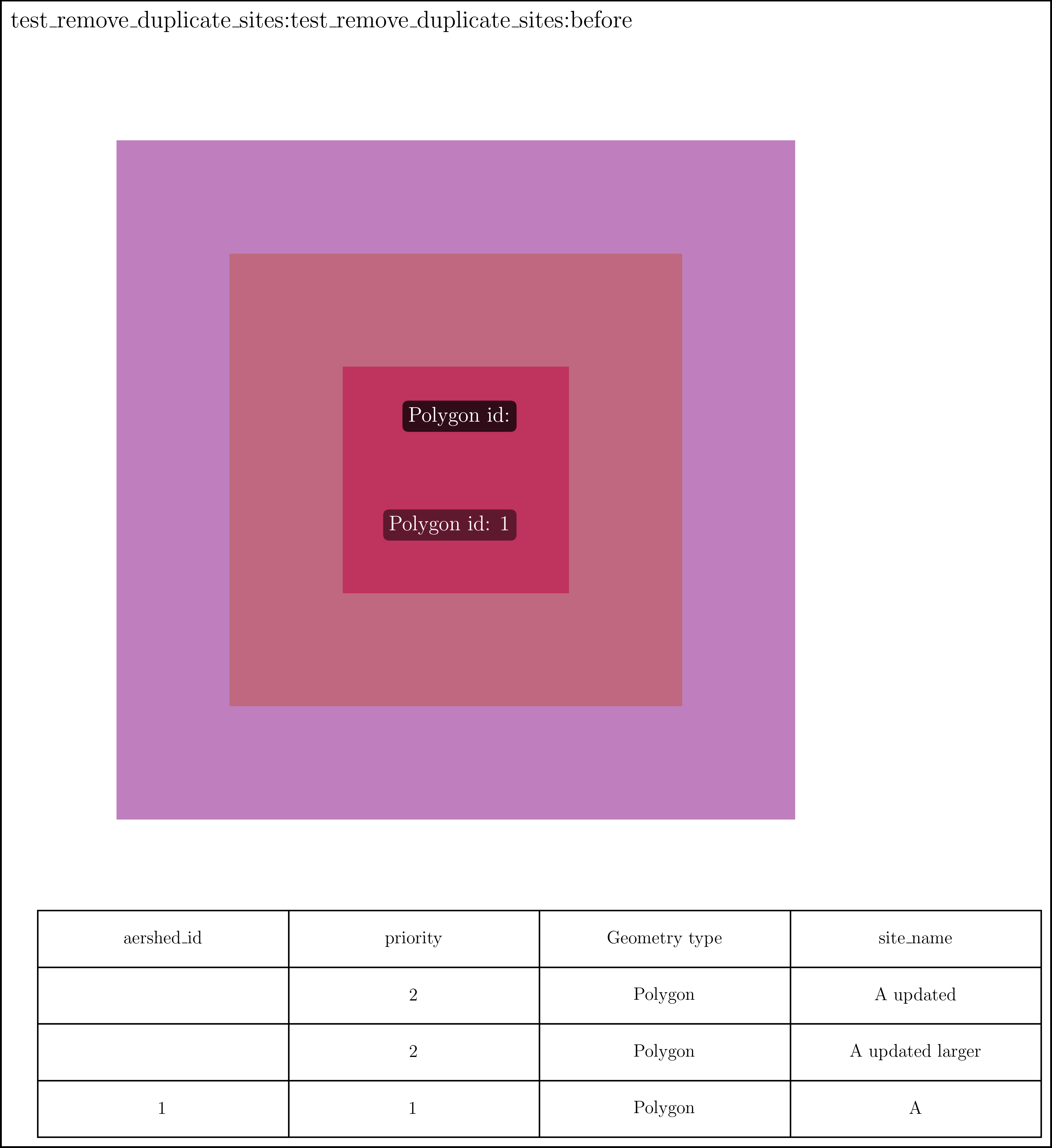 | 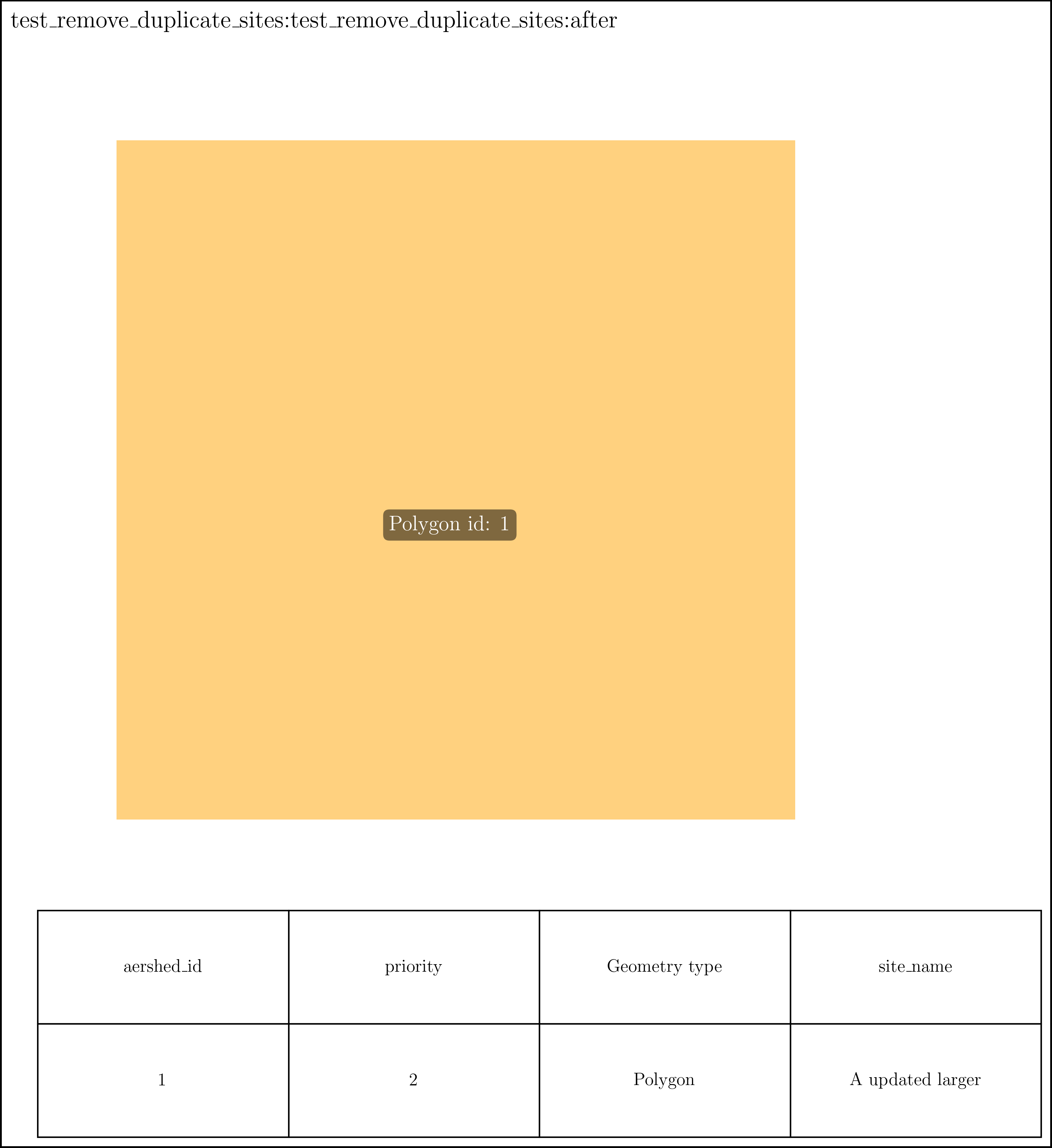 |
Test case: test_remove_duplicate_sites_without_priority
Test remove duplicate sites when there is not a priority column specified.
| Before | After |
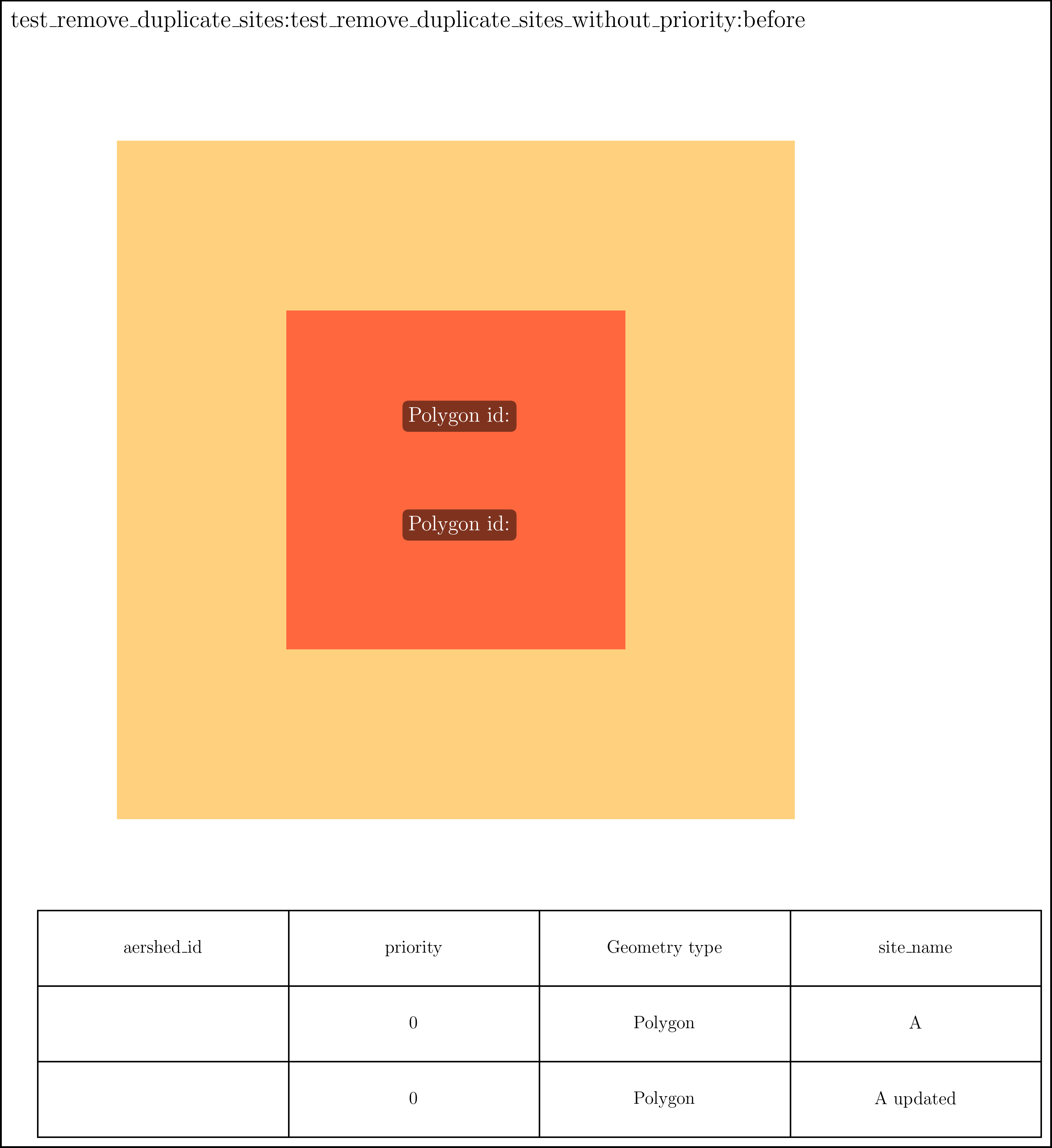 | 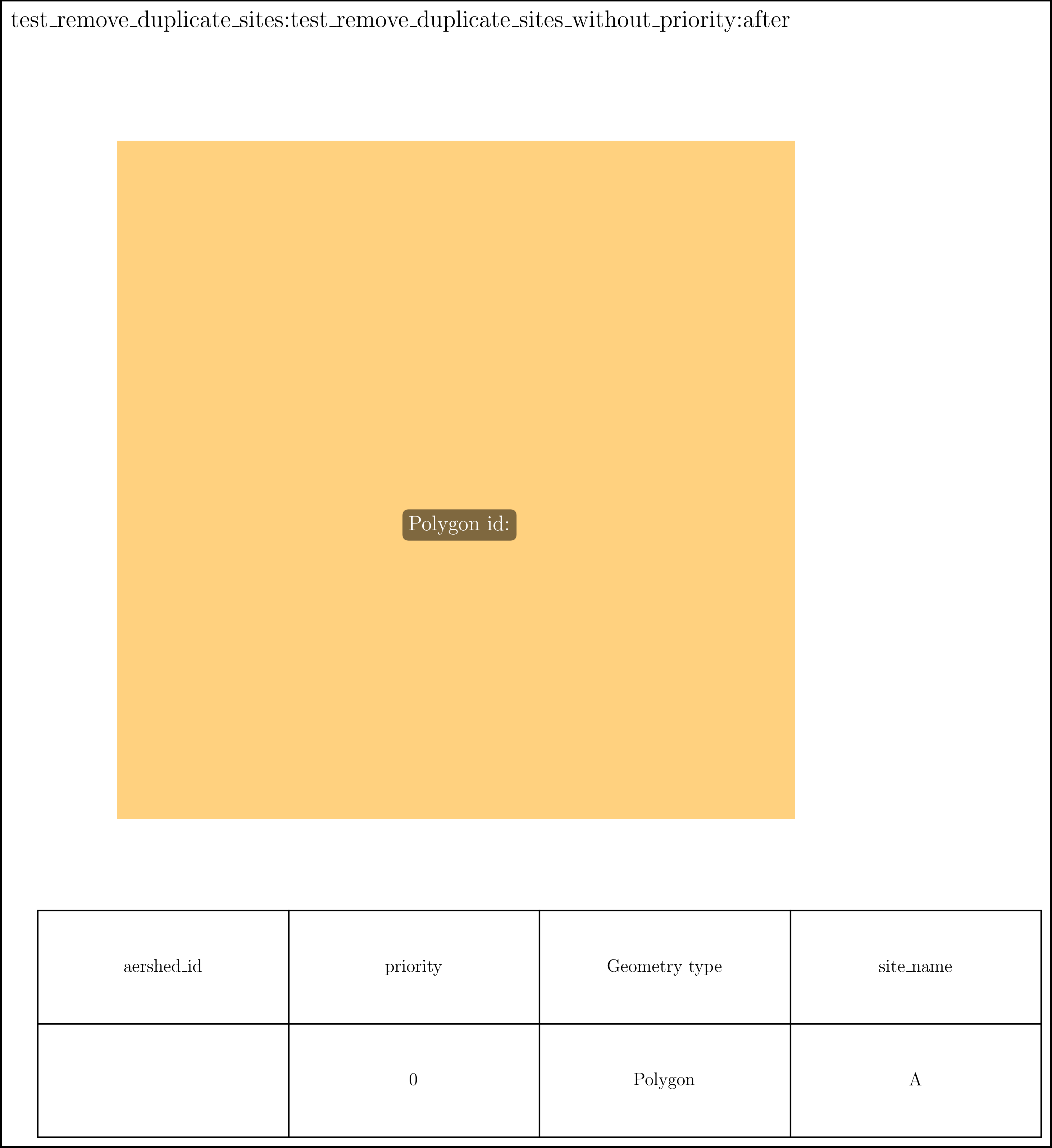 |
Test case: test_small_overlap
TODO: fill this out.
| Before | After |
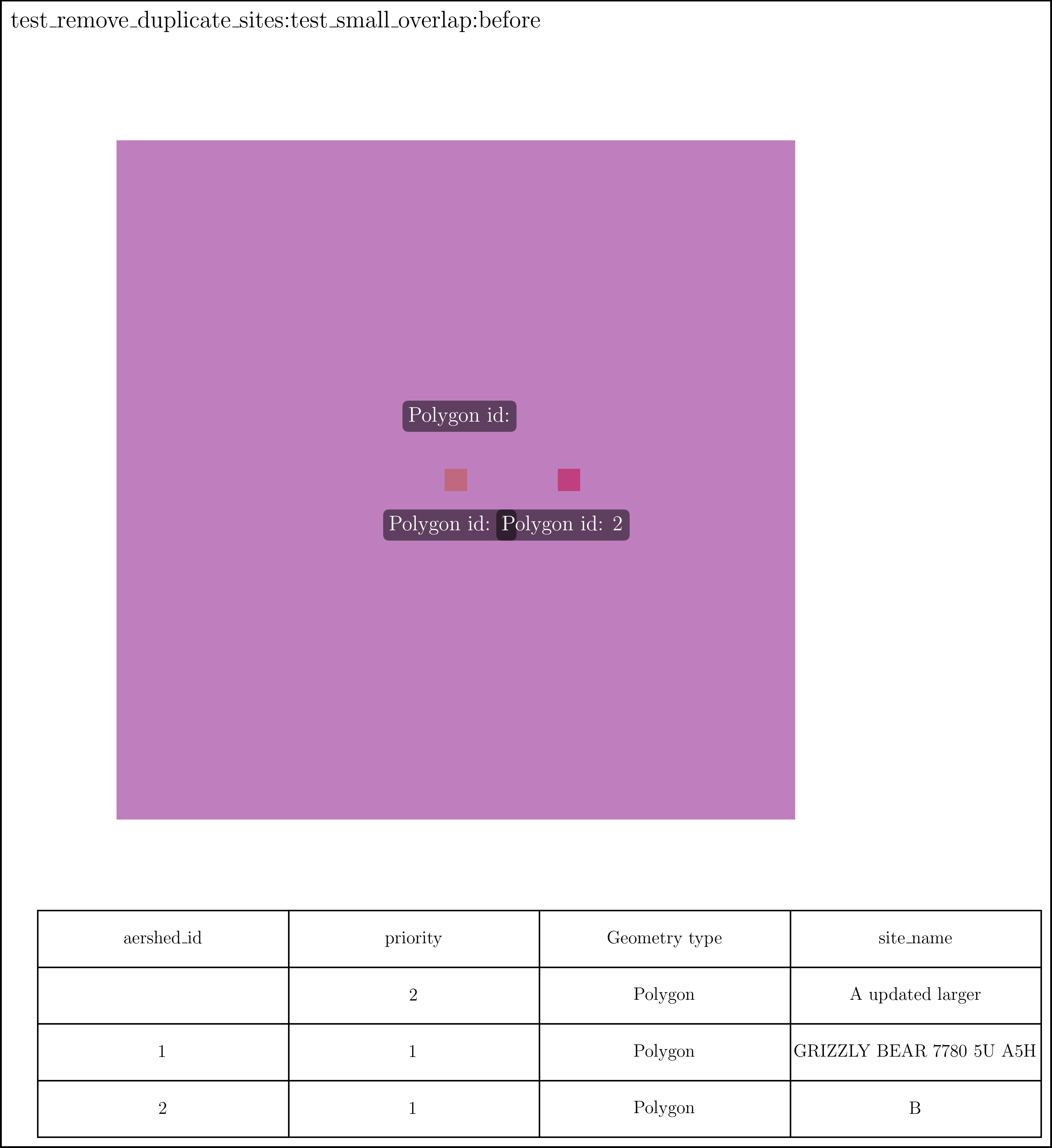 | 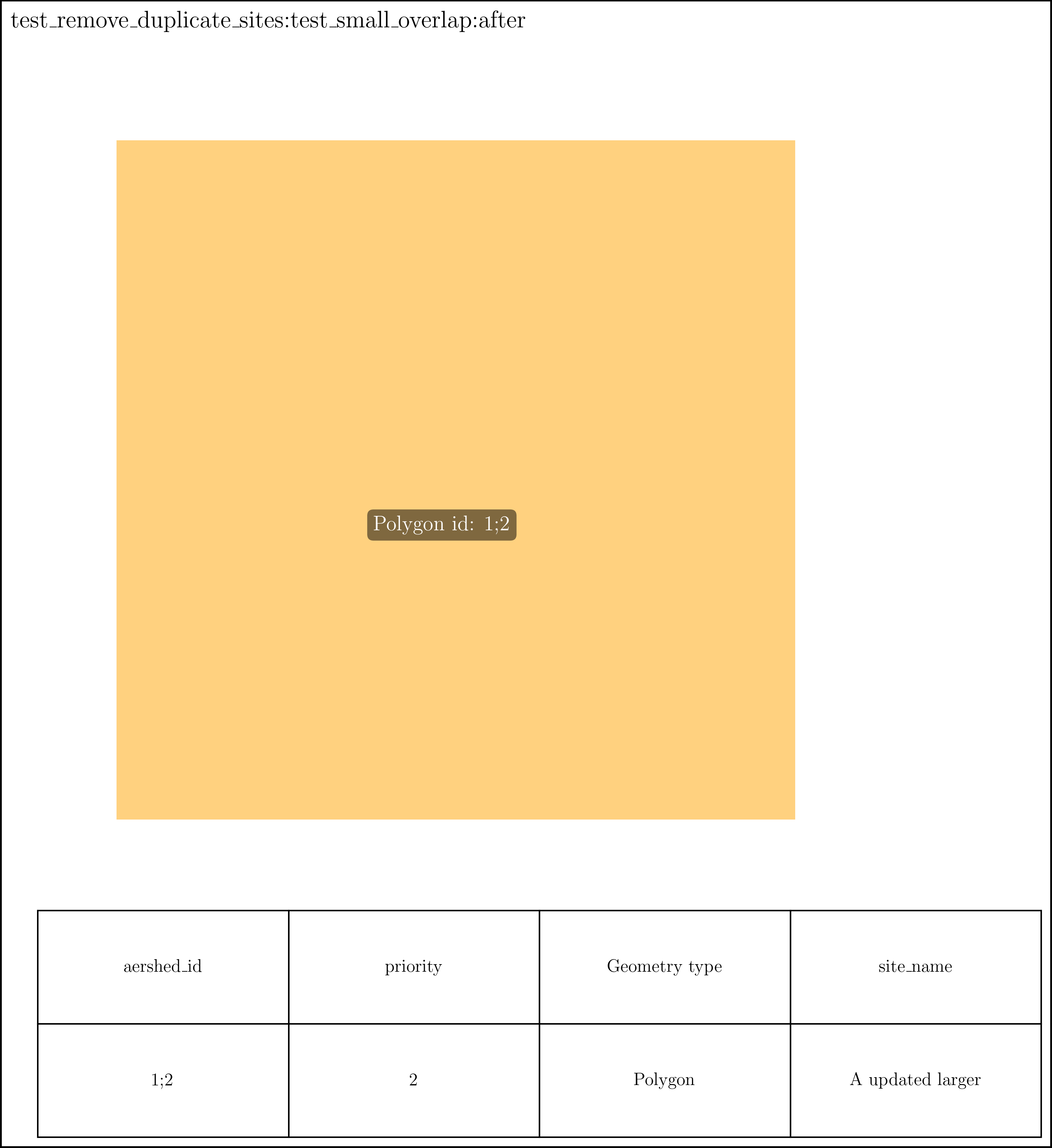 |
Test case: test_split_site_into_smaller_sites
Test that a site is split into smaller sites if it overlaps with a lower priority site.
| Before | After |
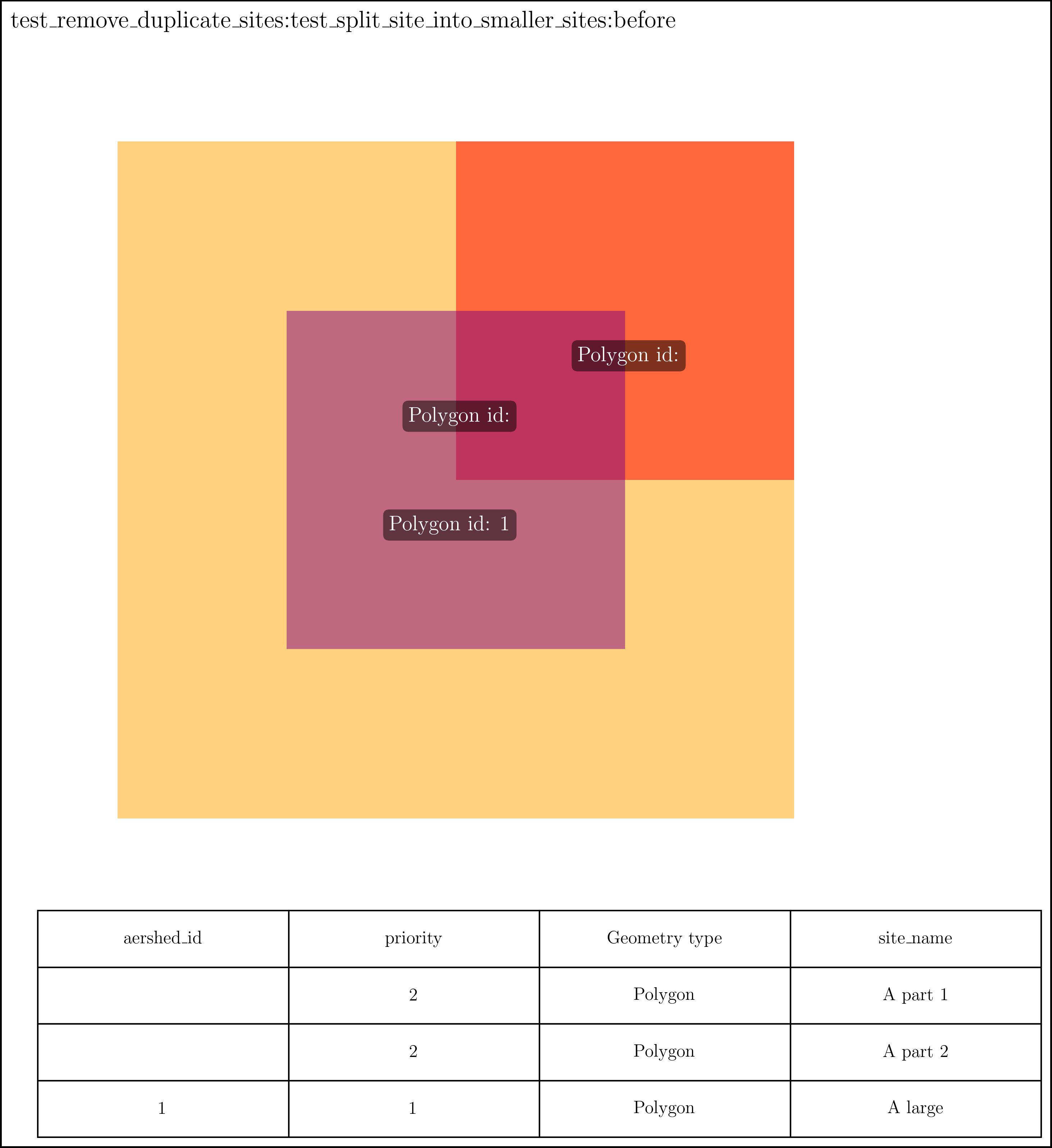 | 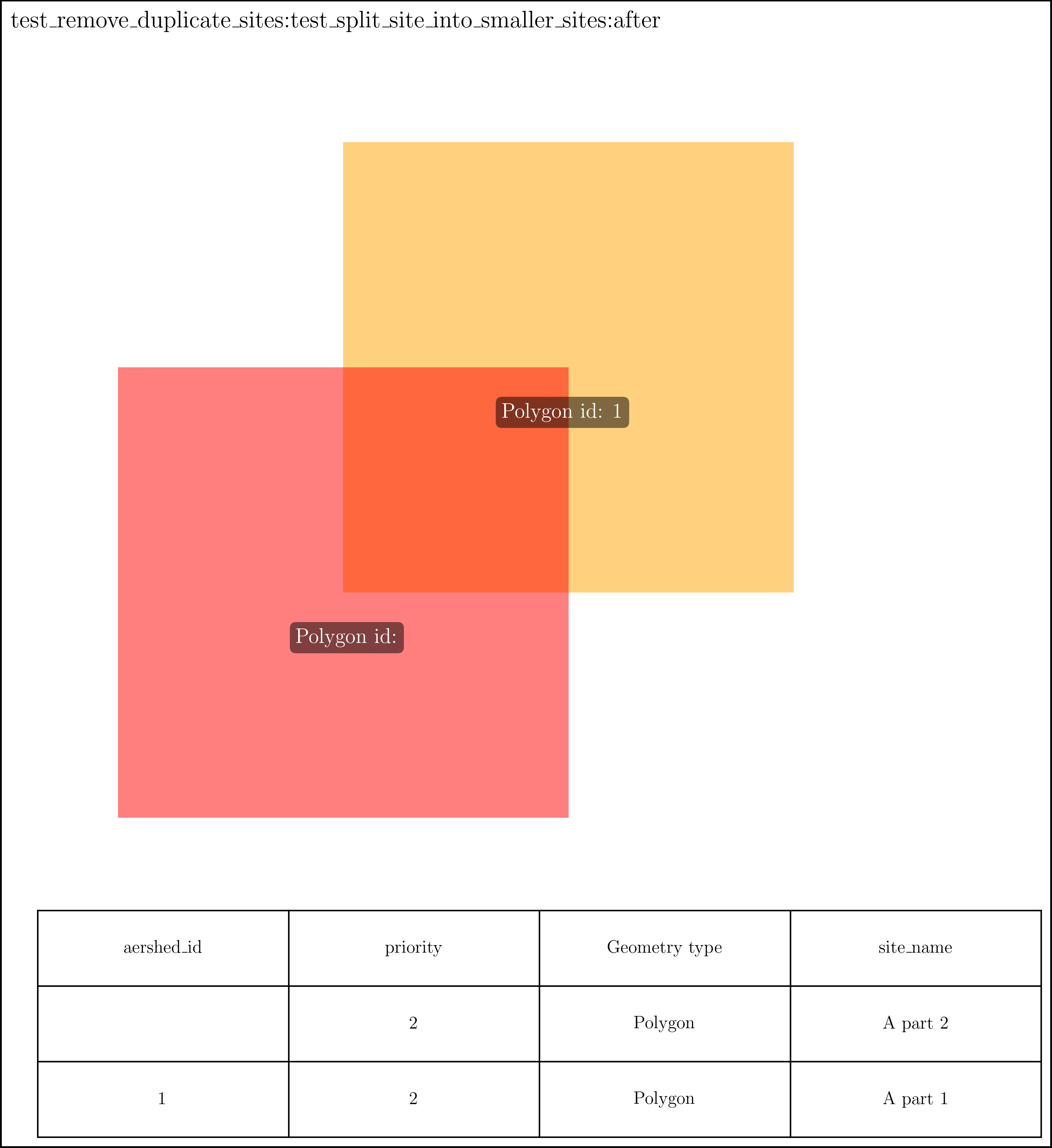 |
Test group: test_remove_overlaps
Test case: test_with_real_data
This real world example shows two polygons that have a very small overlap. This test demonstrates how we can remove the overlapping section by cutting off part of one polygon.
| Before | After |
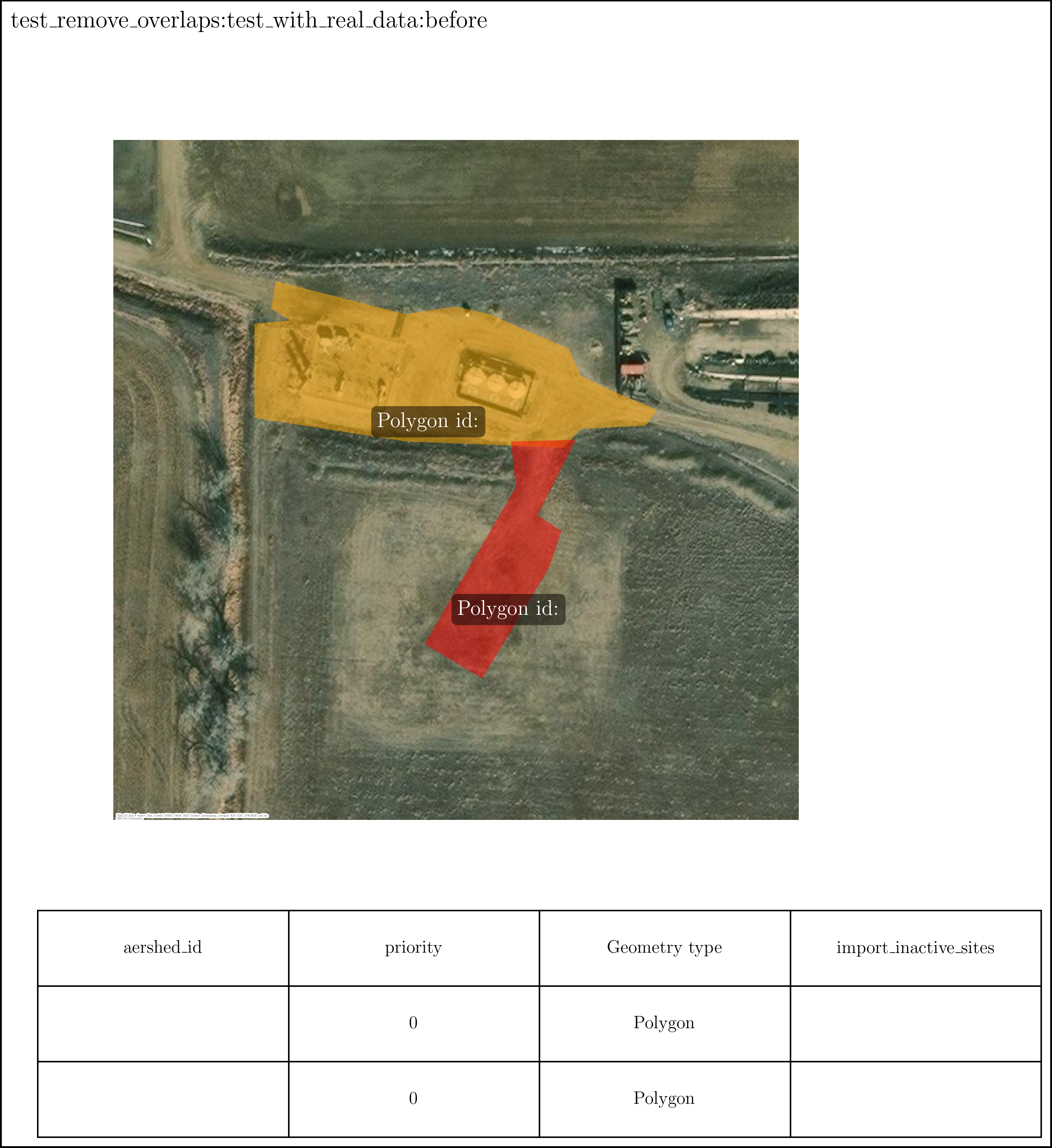 | 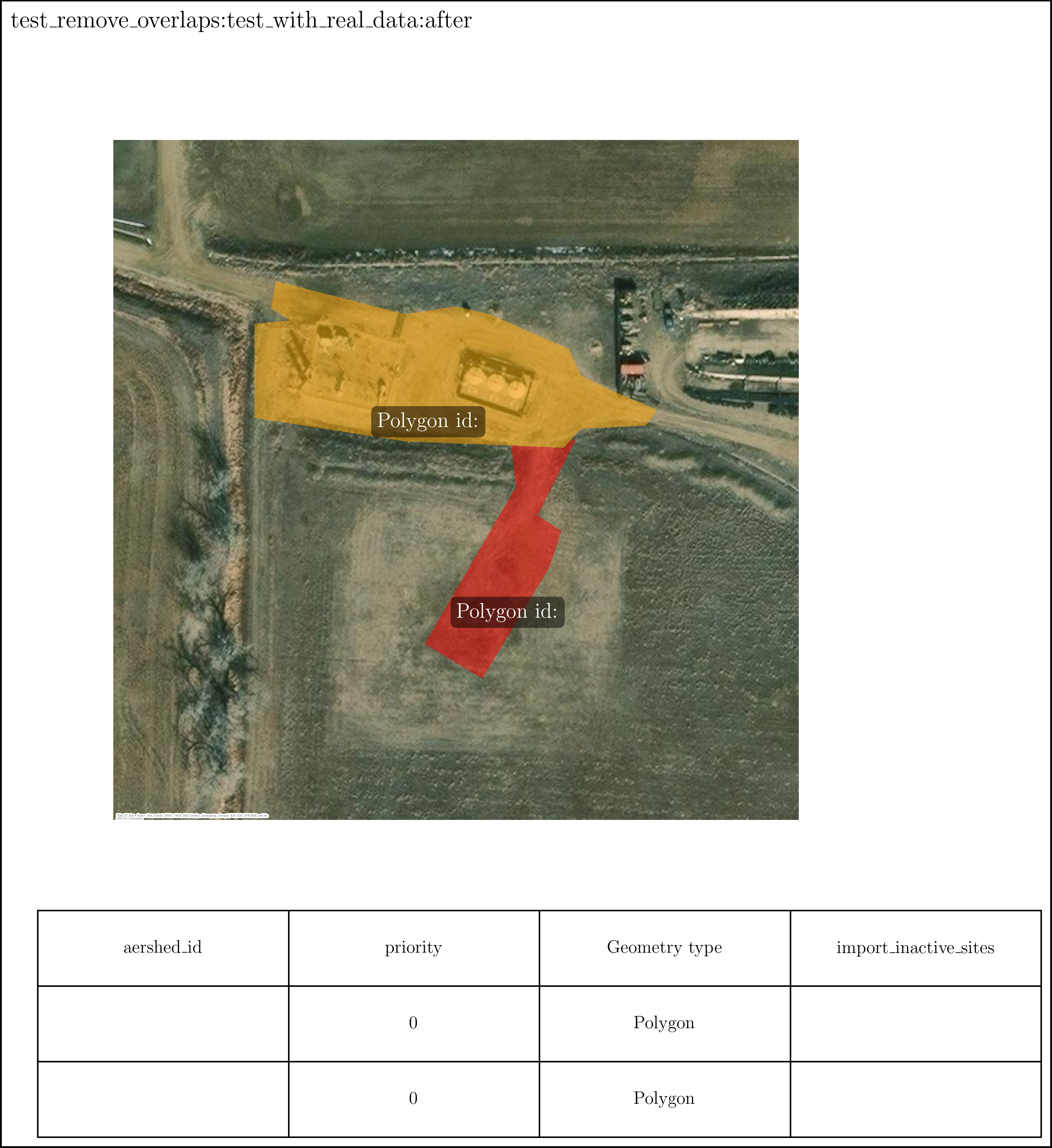 |
Test group: test_remove_point_sites
Test case: test_metadata_handling
Test that if the polygon site is missing metadata (such as site_name) then it is taken from the point site.
| Before | After |
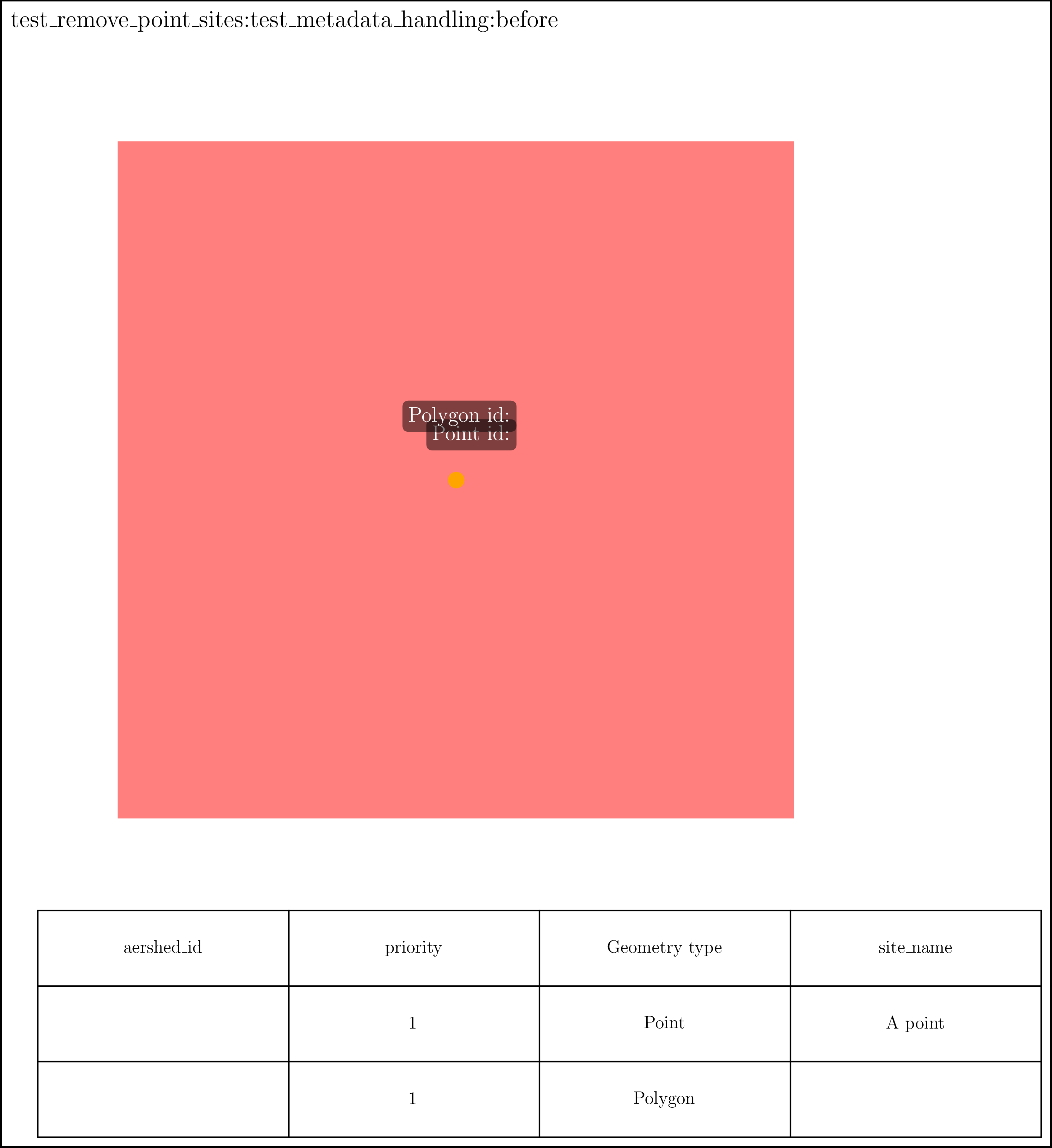 | 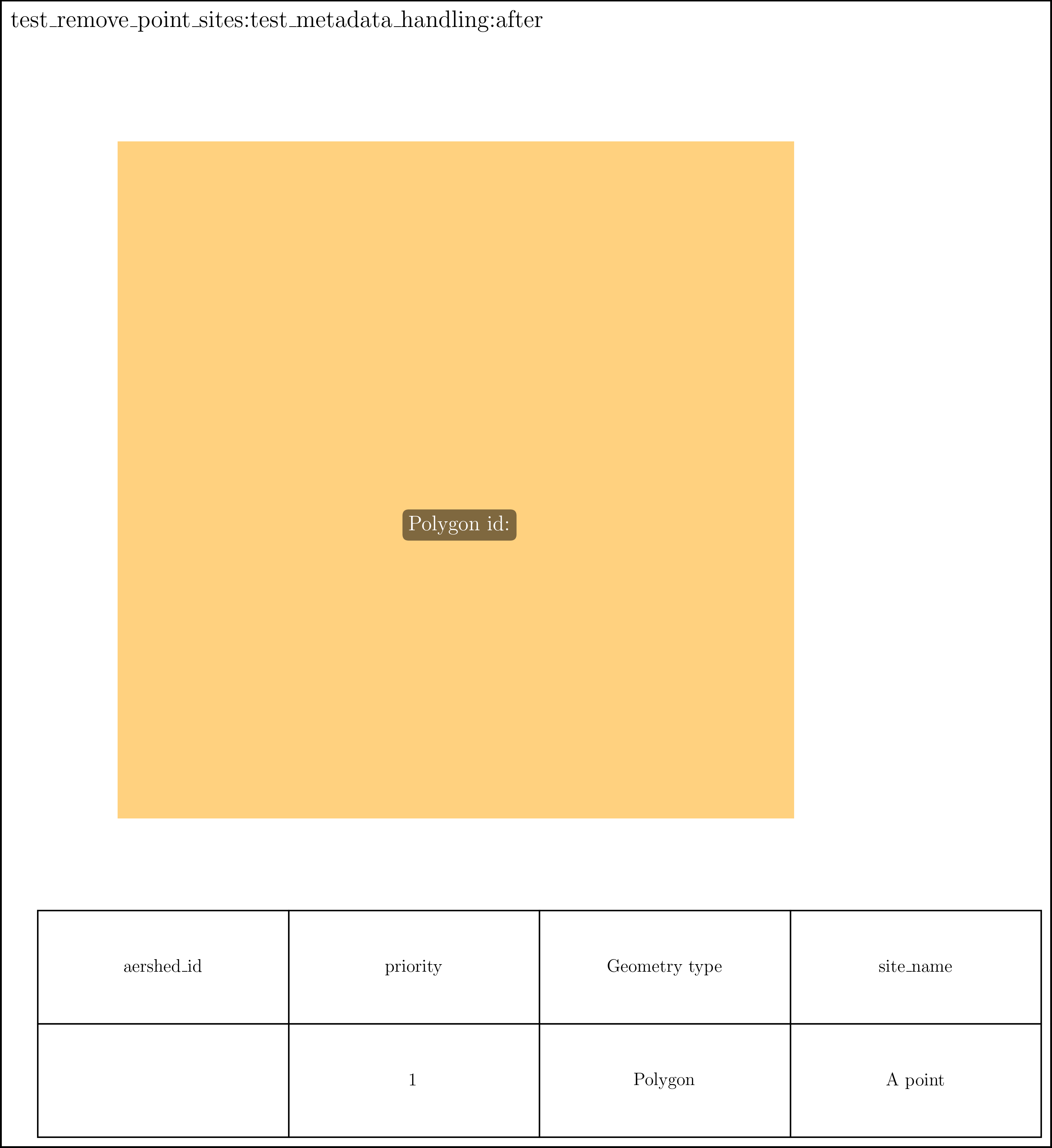 |
Test case: test_metadata_handling_different_surveys
Test that if the polygon site is missing metadata (such as site_name) then it is take from the point site.
| Before | After |
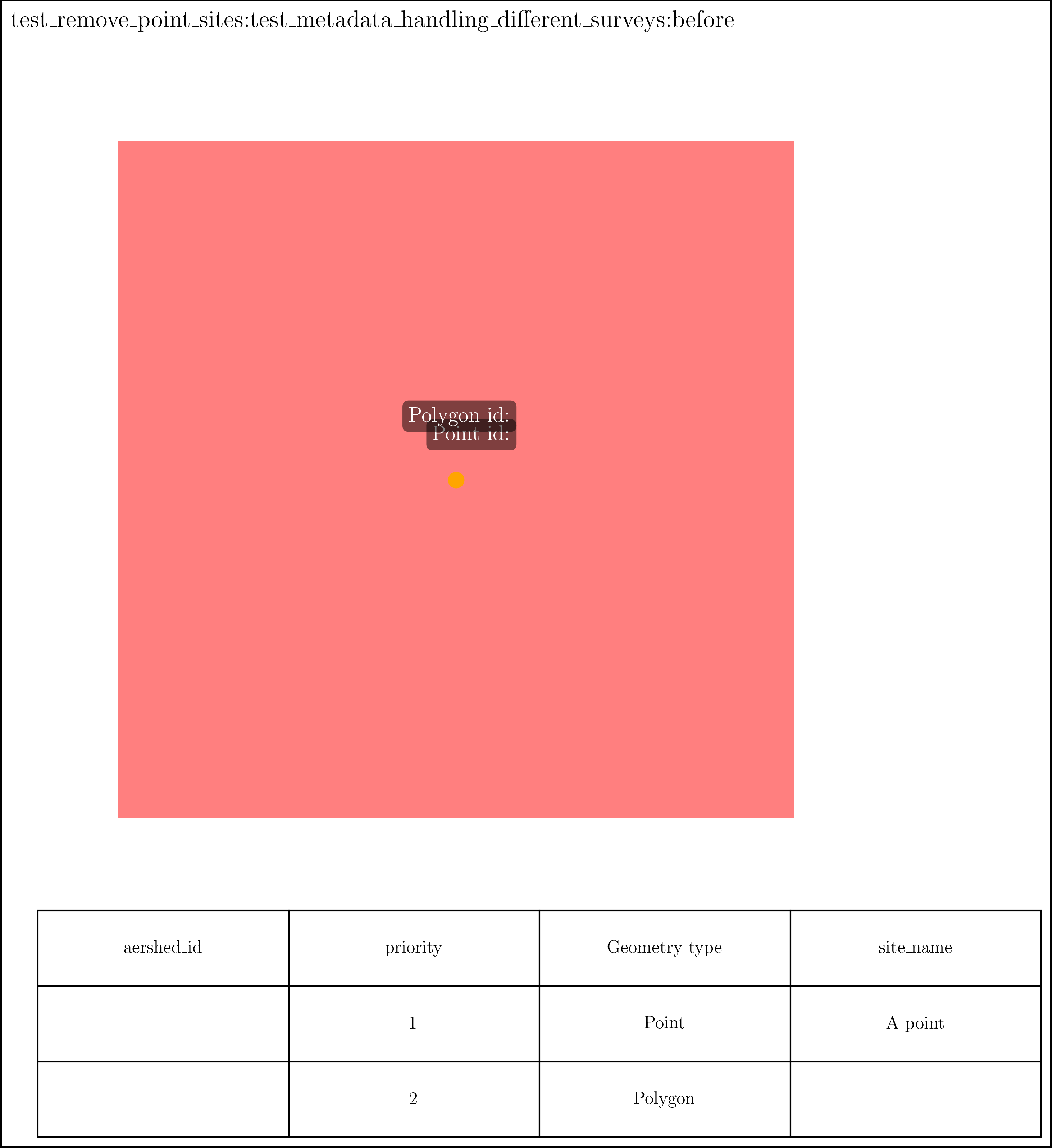 | 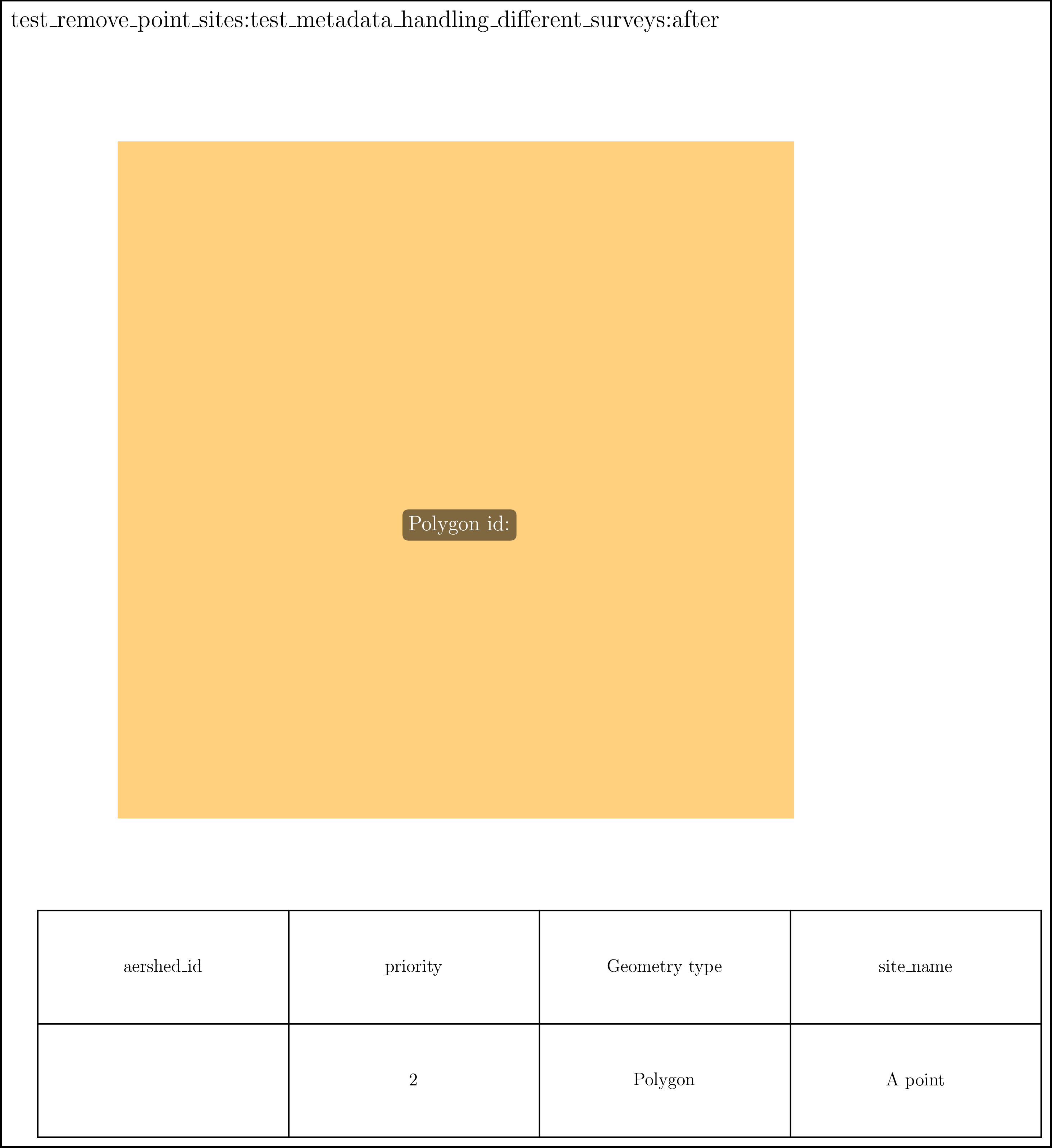 |
Test case: test_metadata_handling_multiple_points
Test that if the polygon site is missing metadata (such as site_name) then it is taken from the point site. This is for the case of multiple points within the single polygon site.
| Before | After |
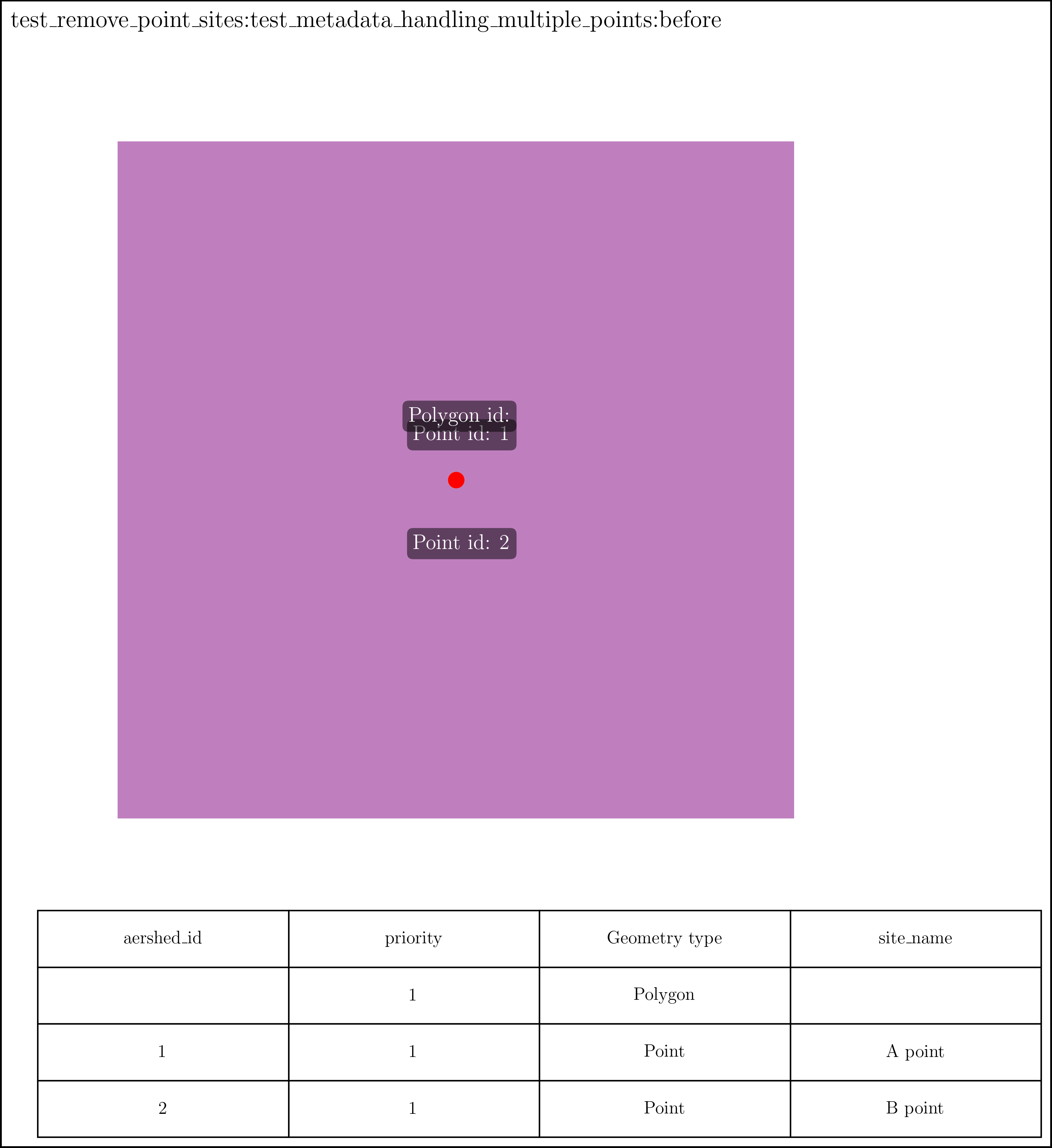 | 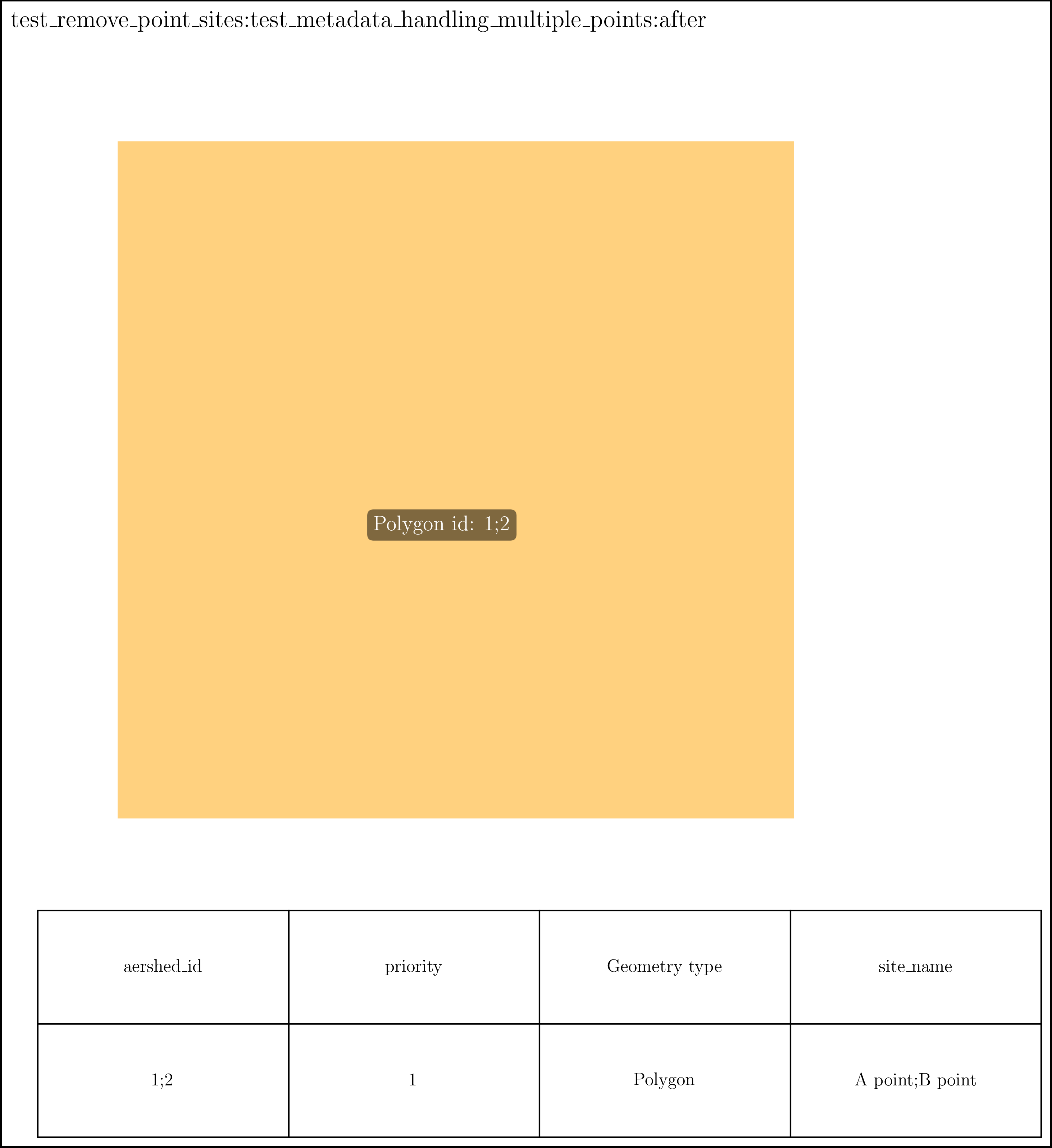 |
Test case: test_remove_point_close_to_polygon_example_1
Sometimes the original point is very close to the polygon site but not actually contained within it.
This test uses a real example.
| Before | After |
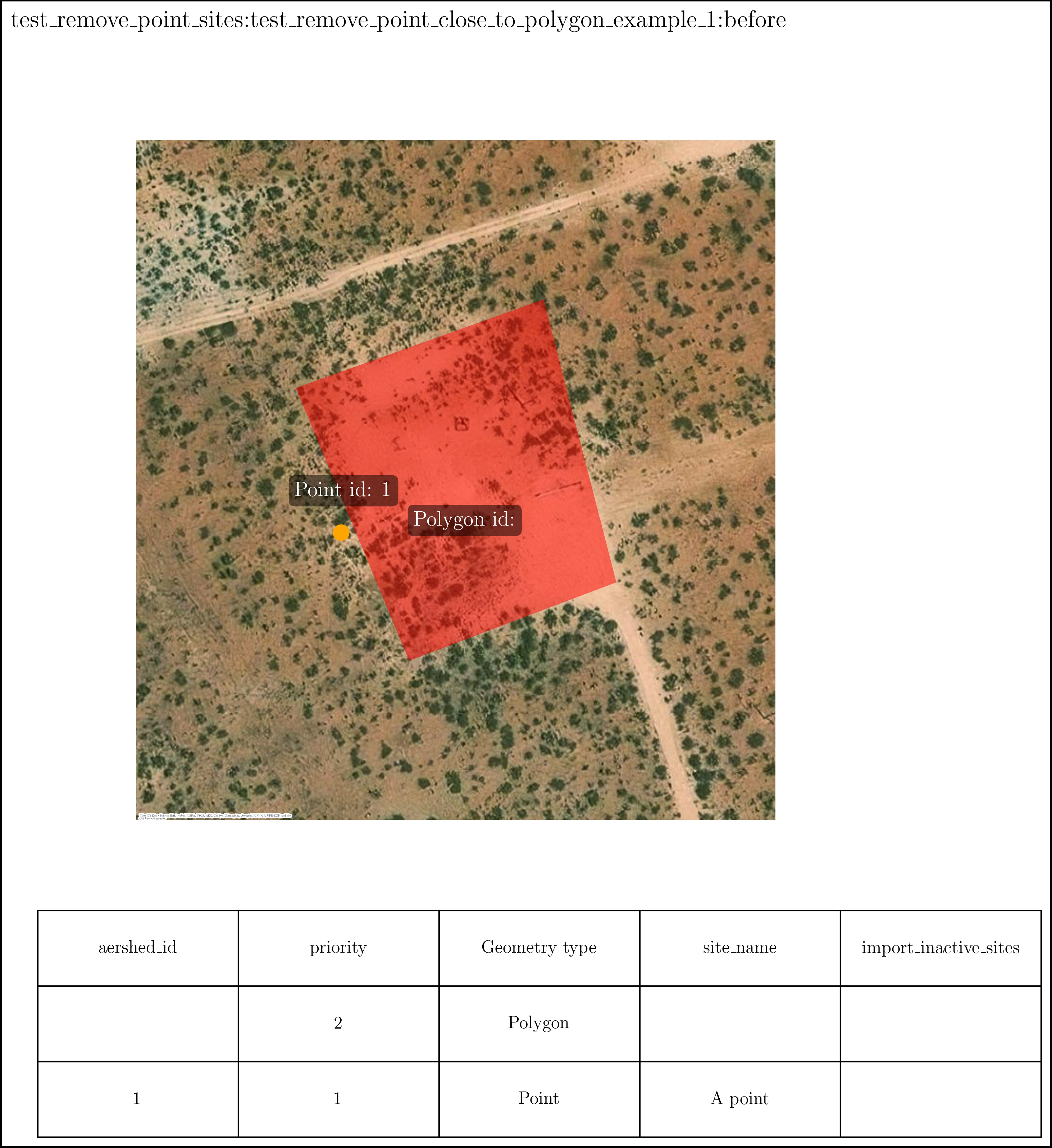 | 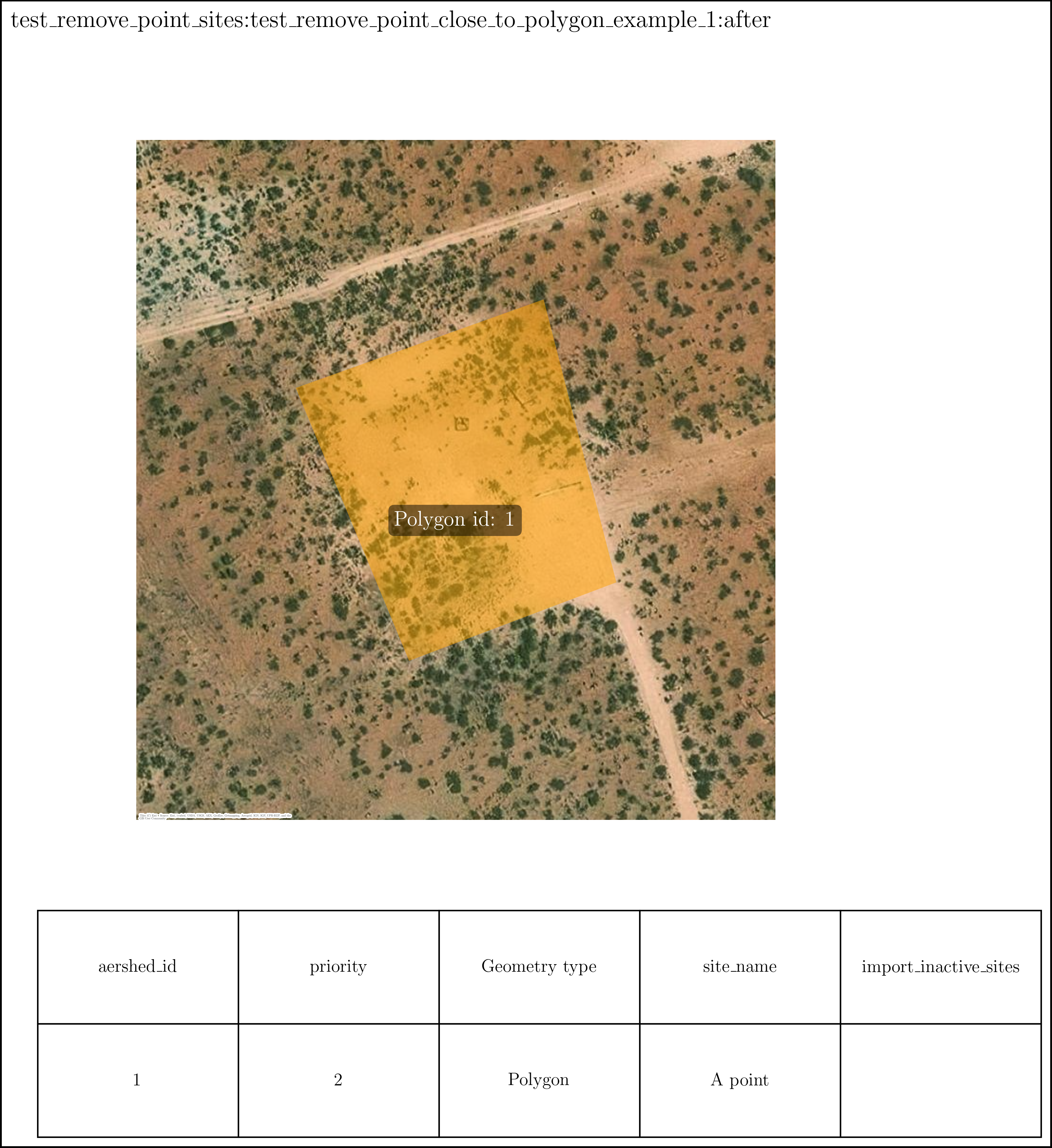 |
Test case: test_remove_point_close_to_polygon_example_2
Sometimes the original point is very close to the polygon site but not actually contained within it.
This test uses a real example.
| Before | After |
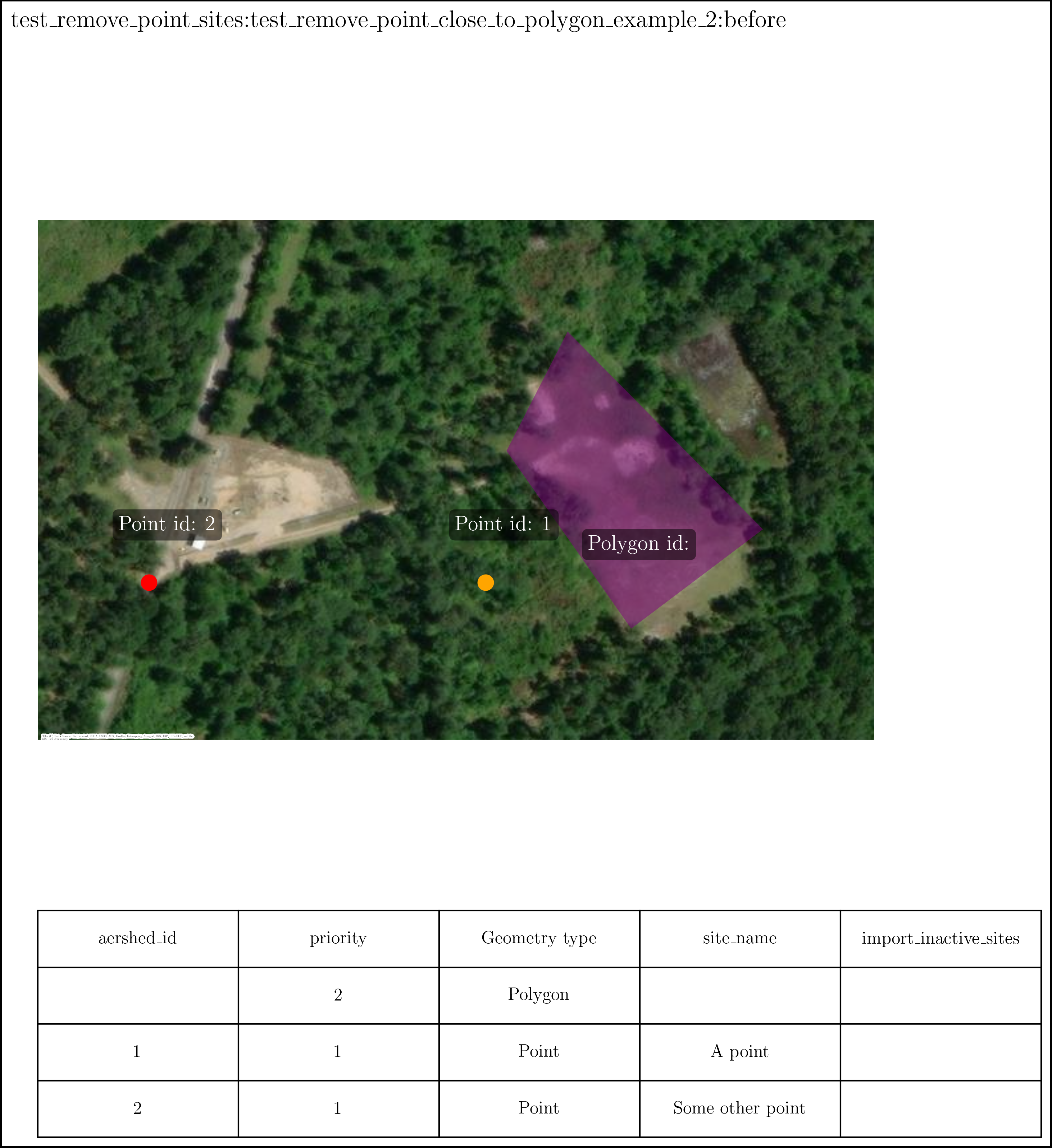 | 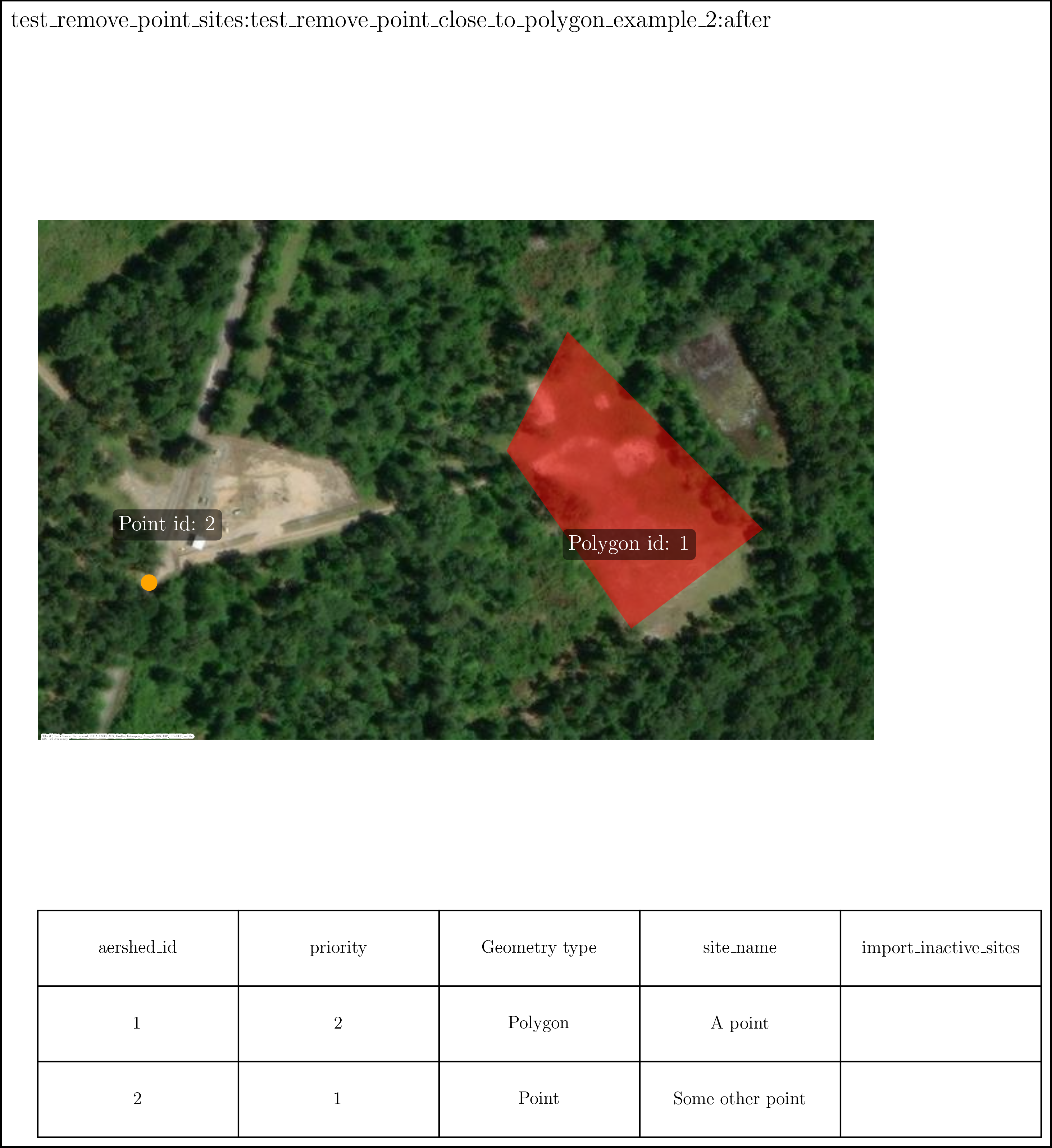 |
Test case: test_remove_point_close_to_polygon_same_name
If the nearby_point matching is turned off we still want to match to points that are close and have the same name.
This has been adjusted from a real example (same geometries but different metadata),
| Before | After |
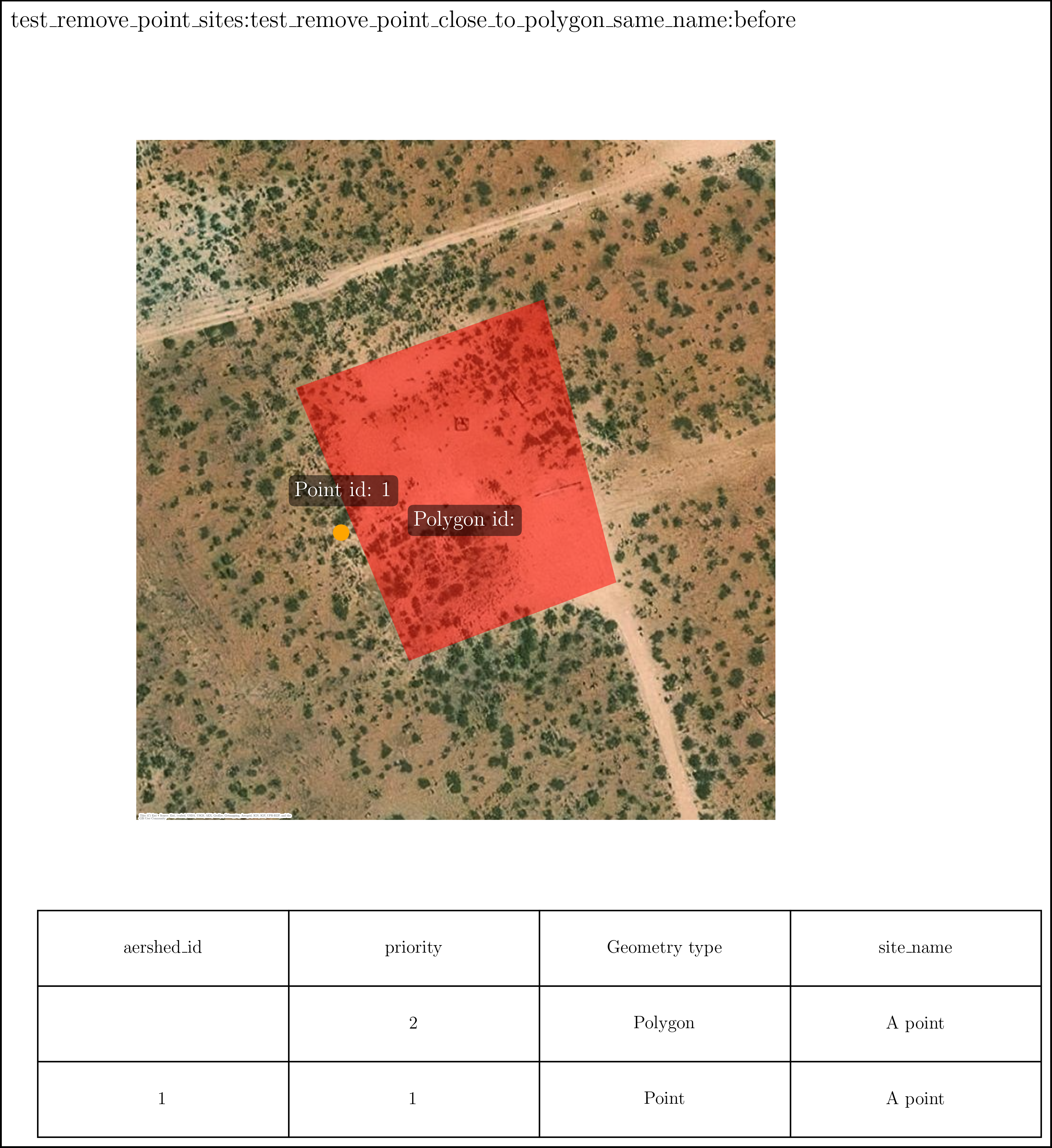 | 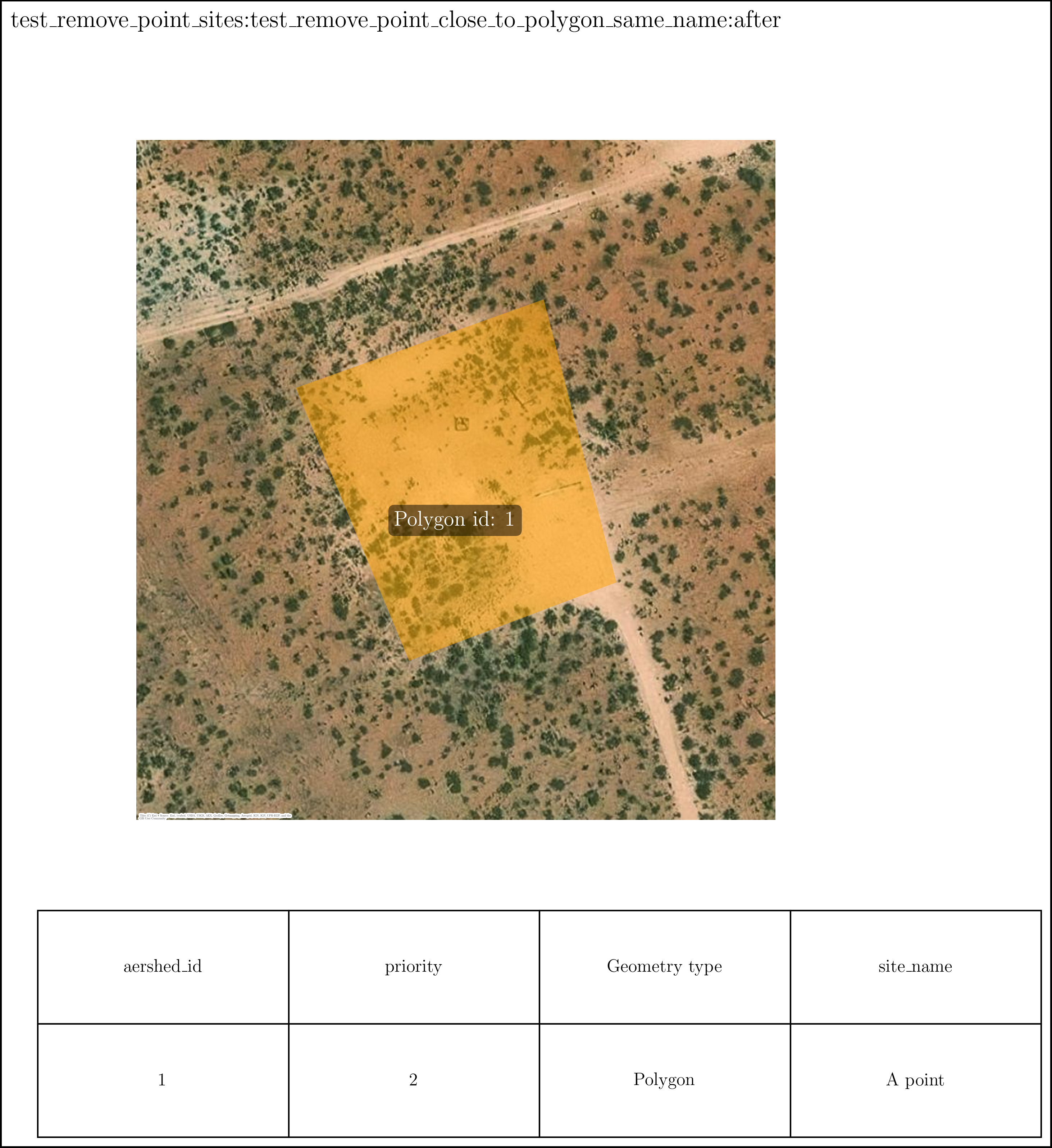 |
Test case: test_remove_point_close_to_polygon_twice
In this case we have a point which is removed due to being close with identical name, but also would be valid for removal due to just being close. So we check that these two methods being in play do not cause any issues in the program.
| Before | After |
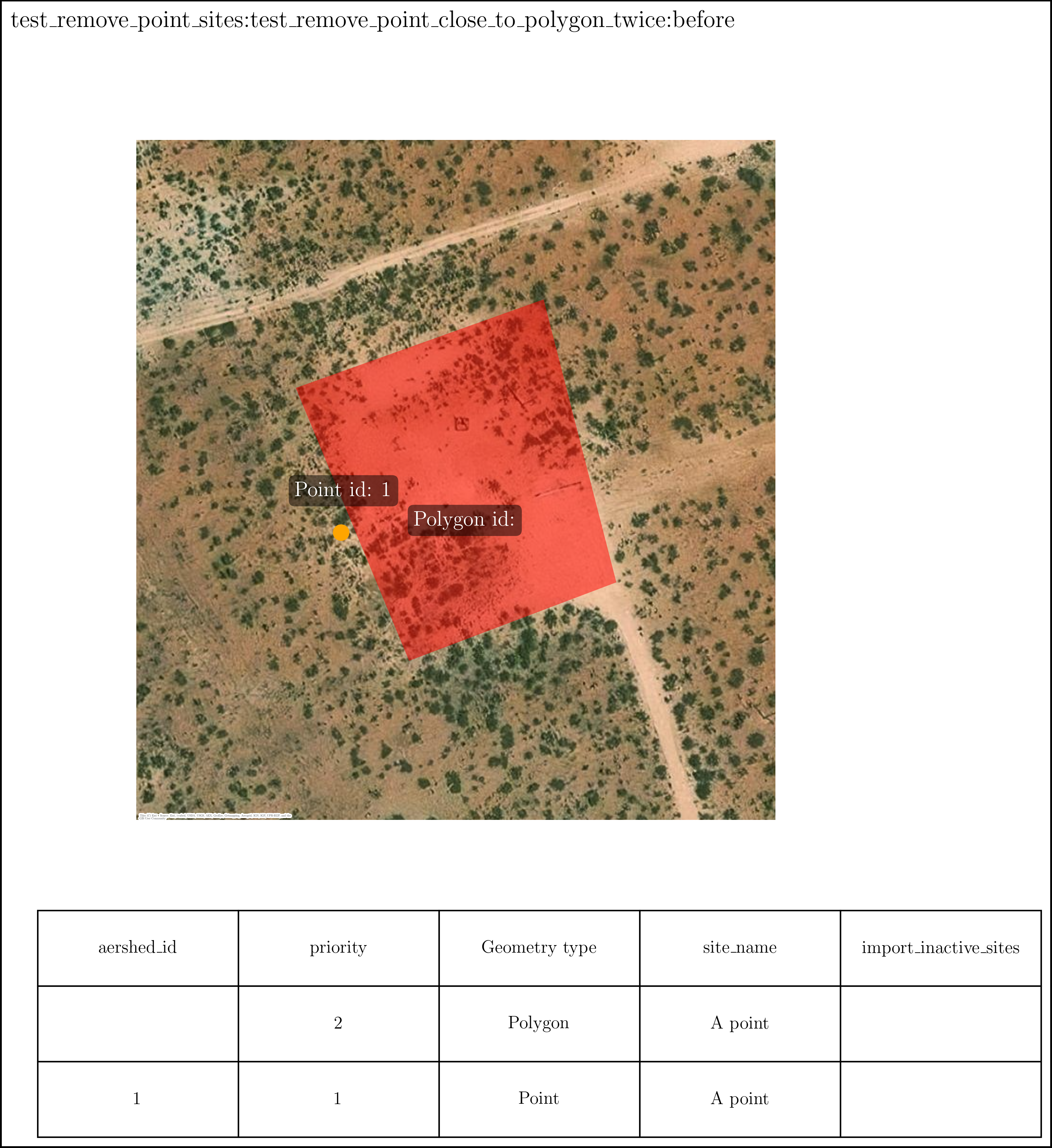 | 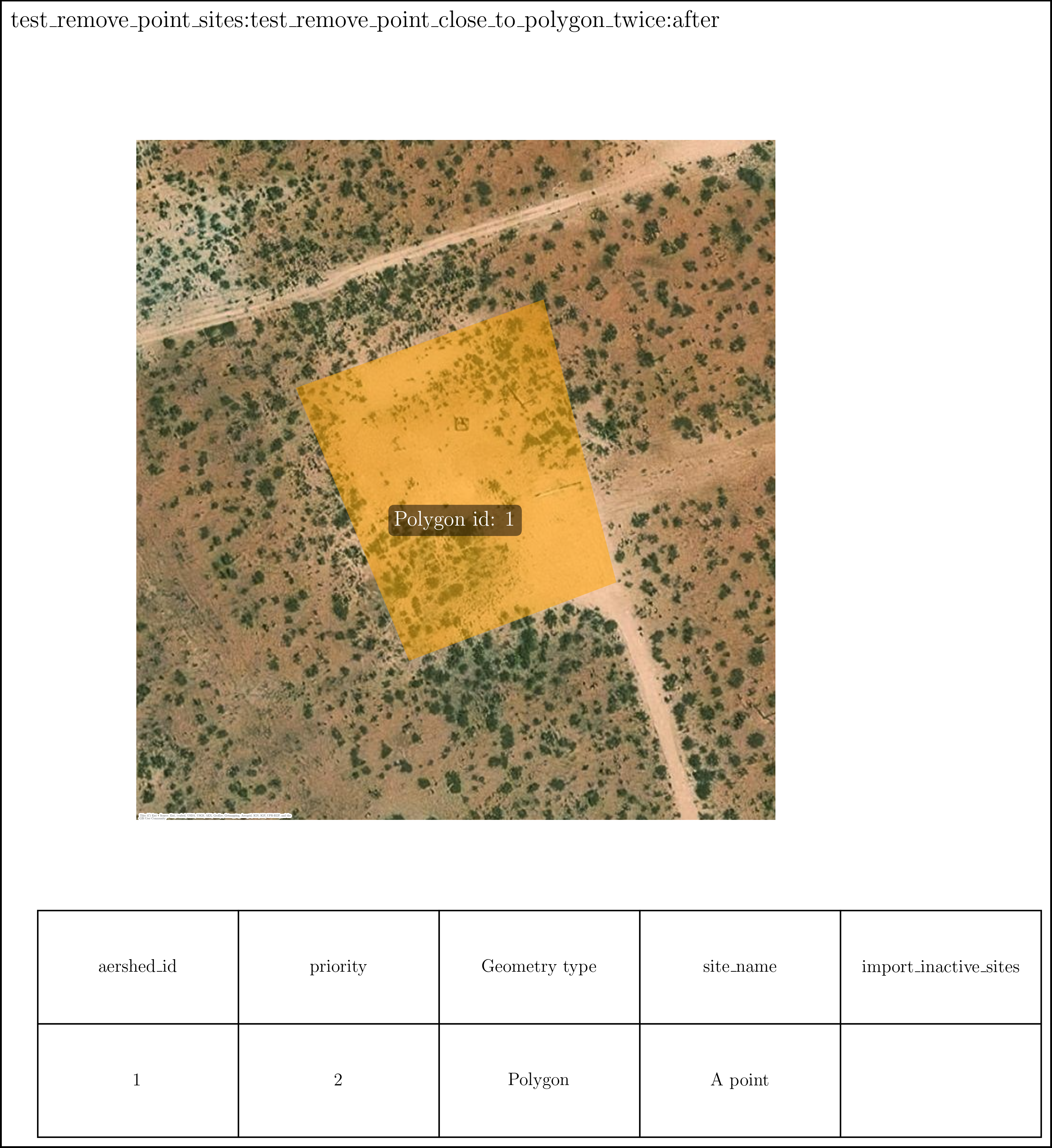 |
Test case: test_remove_point_very_close_to_boundary
In this case we have a point which is removed due to being close with different name.
| Before | After |
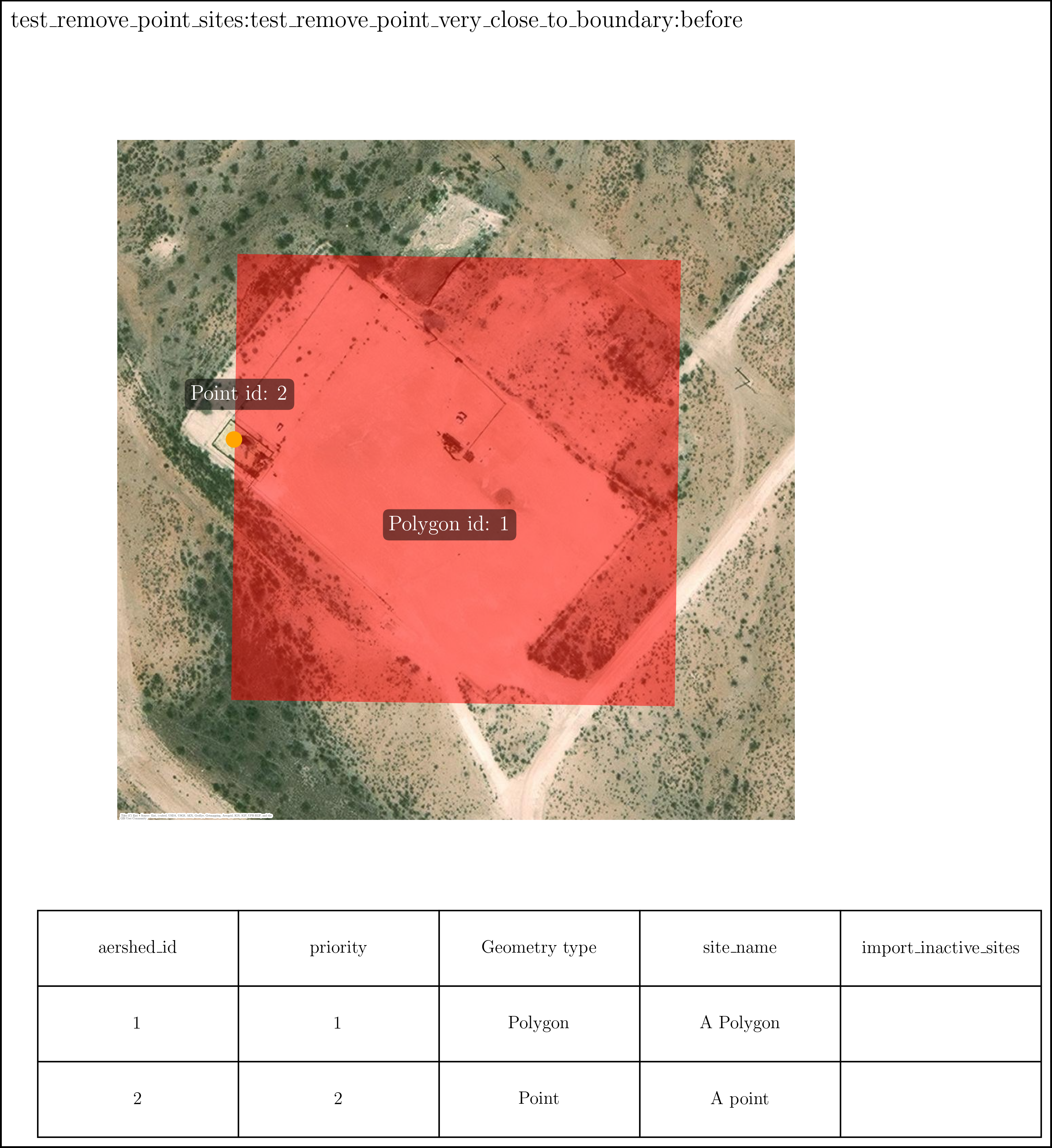 | 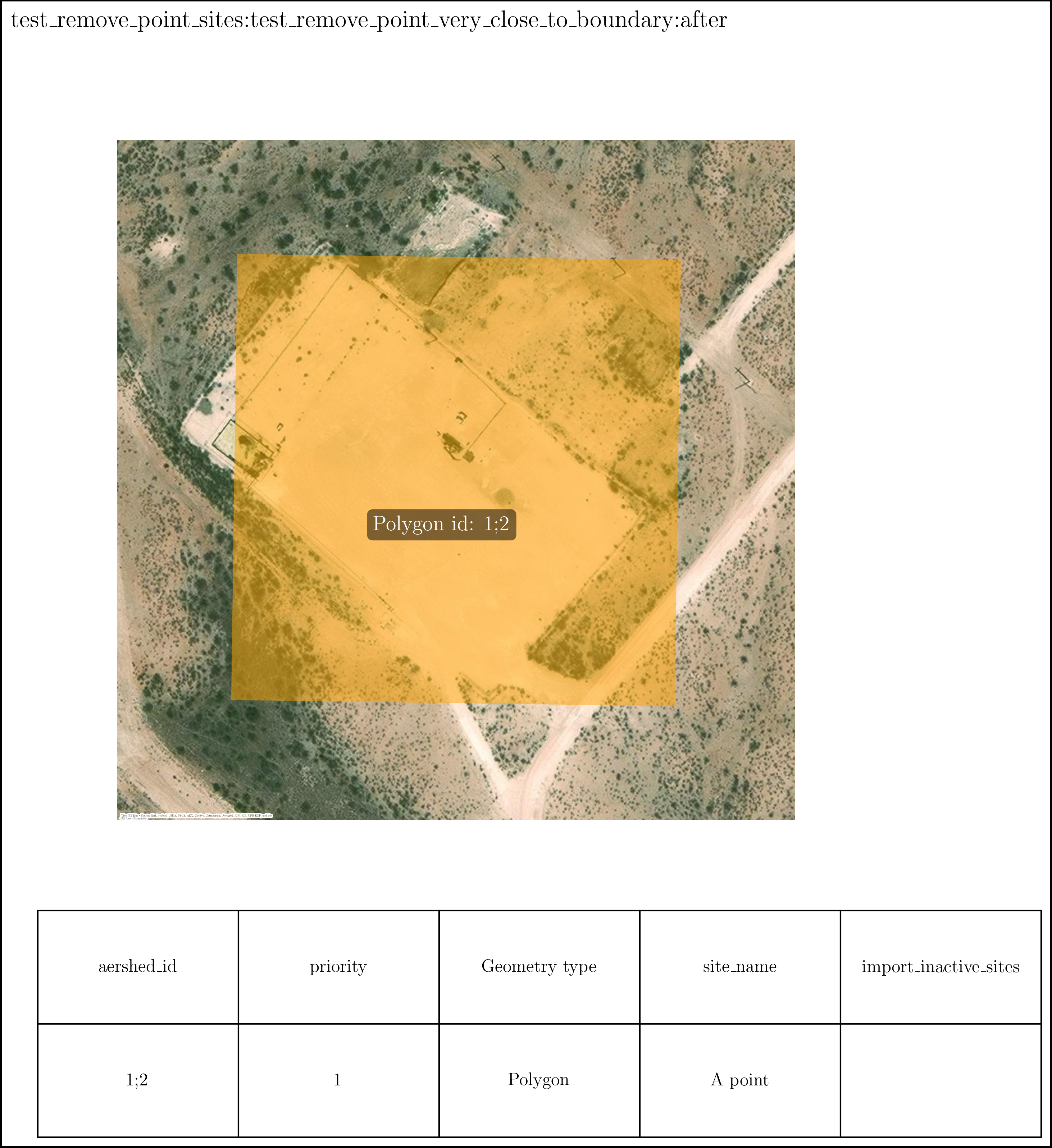 |
Test group: test_status_change
Test case: test_import_inactive_site
If the nearby_point matching is turned off we still want to match to points that are close and have the same name.
This has been adjusted from a real example (same geometries but different metadata),
| Before | After |
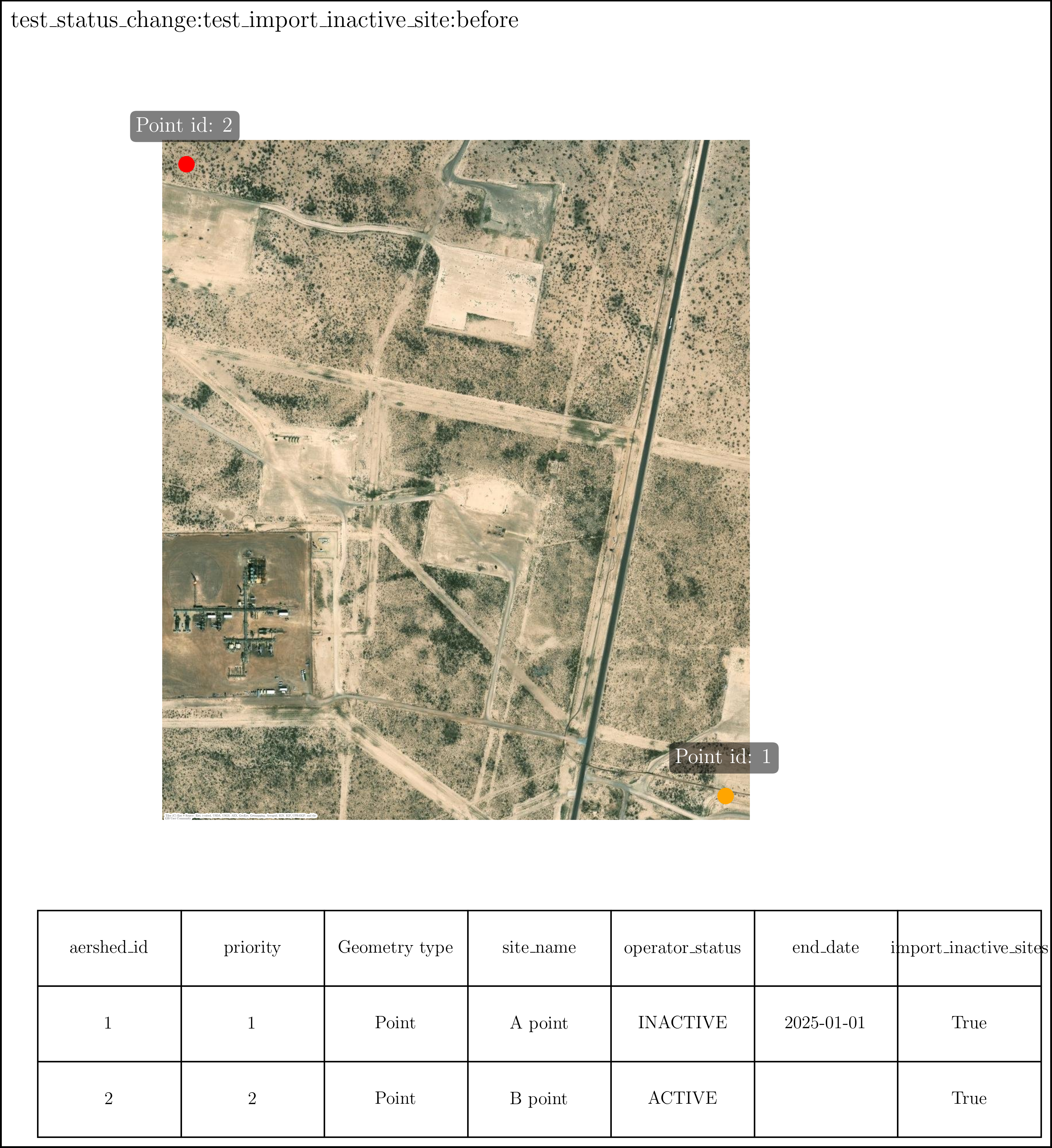 | 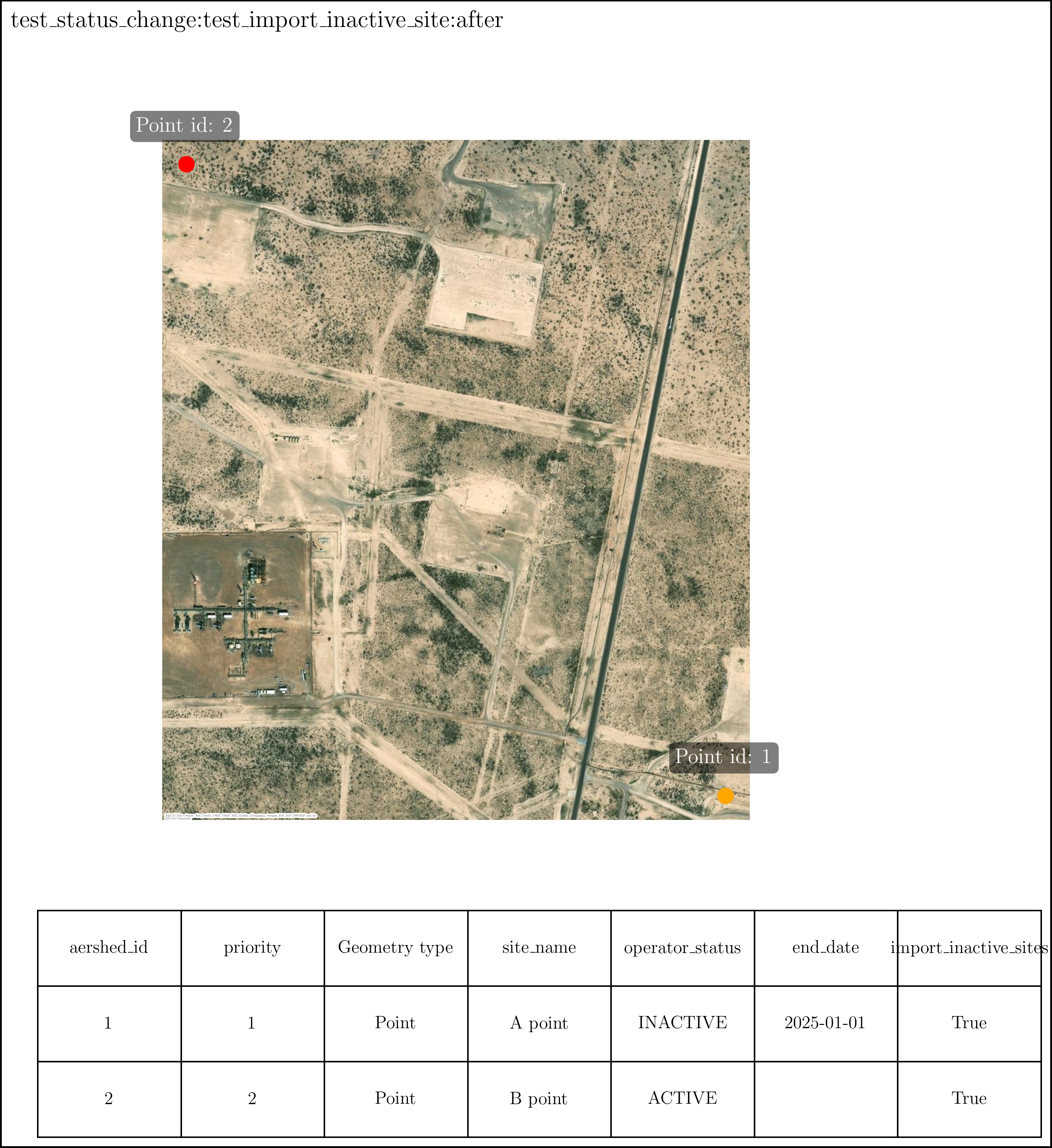 |
Test case: test_import_remove_inactive_sites
Test that sites with an inactive status are removed when import_inactive_sites is set to None.
| Before | After |
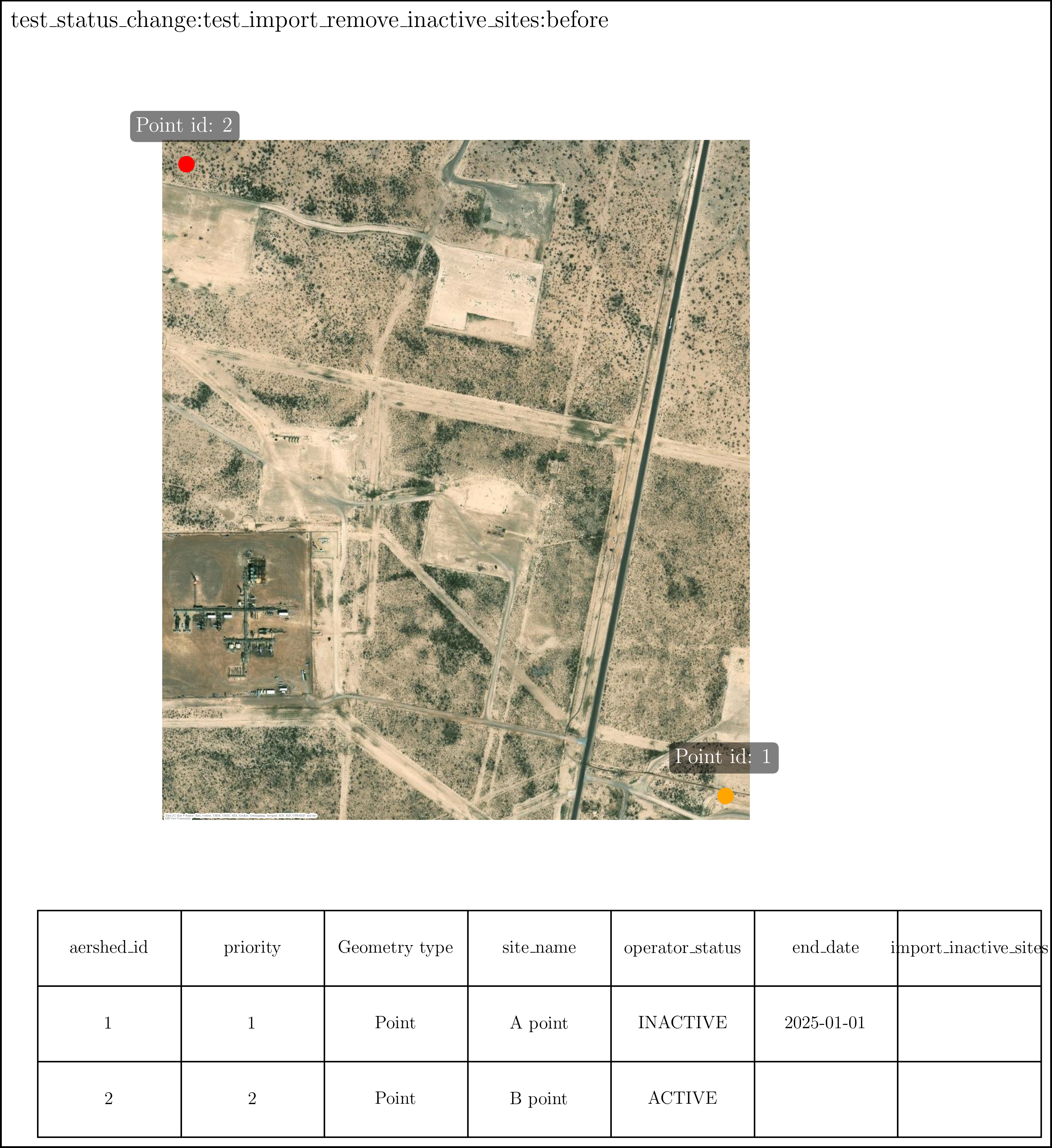 | 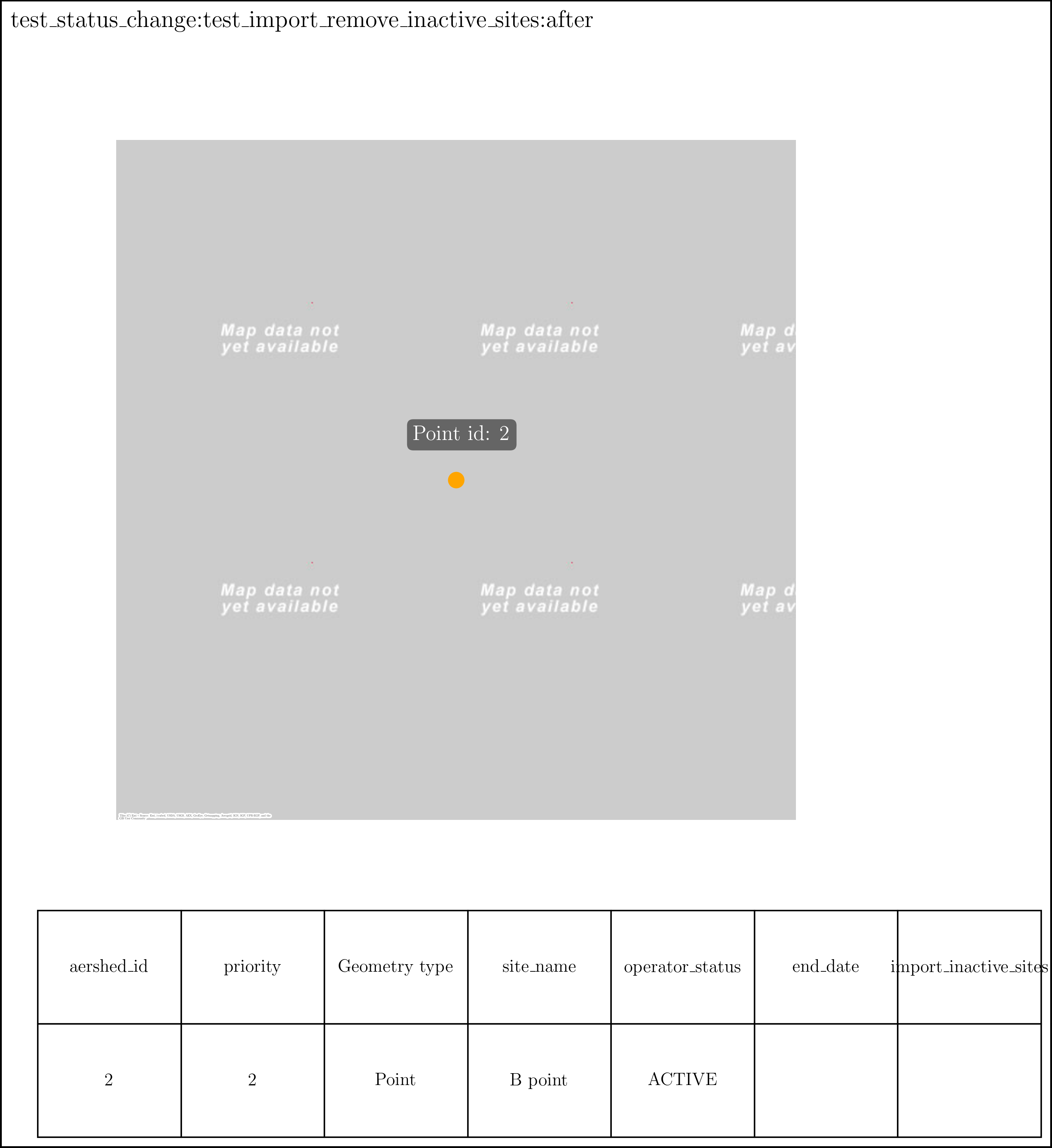 |